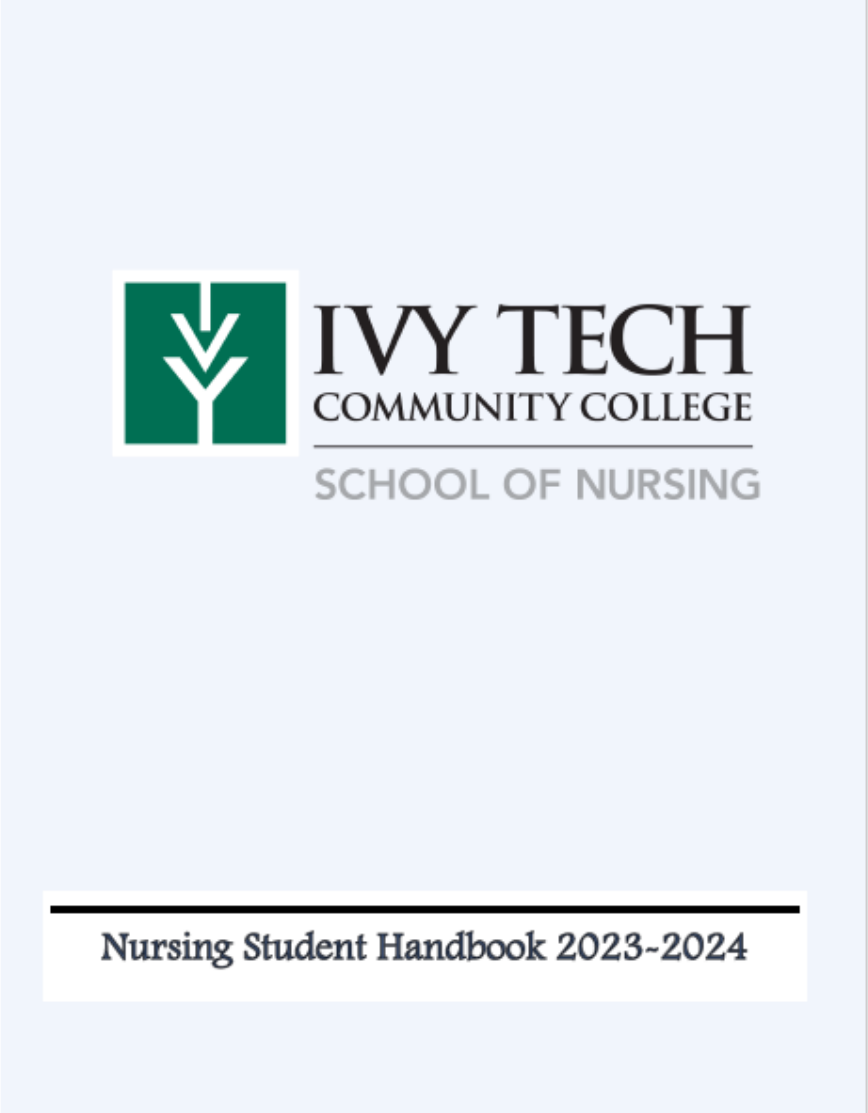
2023-2024
1

2023-2024
2
IVY TECH COMMUNITY COLLEGE
SCHOOL OF NURSING
STUDENT HANDBOOK
2023-2024
Non-Discrimination and Equal Opportunity Policy
Ivy Tech Community College of Indiana (Ivy Tech) provides open admission, degree credit programs,
courses and community service offerings, and student support services for all protected classes – race,
religion, color, sex, ethnicity, national origin, physical and mental disability, age, marital status, sexual
orientation, gender identity, gender expression, veteran or military status. The College also provides
opportunities to students on the same non-discriminatory opportunity basis. Persons who believe they
may have been discriminated against should contact the campus affirmative action officer, Human
Resources Administrator, or Vice Chancellor for Student Affairs. Ivy Tech is an accredited, equal
opportunity/affirmative action institution. For more information review the Student Equal Opportunity,
Harassment, and Non-discrimination Policy and Procedures at
https://docs.google.com/document/d/1_tEgc3NcKFTkromsQBpvOHFzzWZiJgRHhrU1nwsAR4g/previe
w.
Booklet Disclaimer
This handbook is intended to supply accurate information to the reader. The College reserves the right to
change the Program and course requirements; however, every effort will be made to inform students of
any program changes. This handbook and its provisions are not in any way a contract between an
applicant and the College.
Last Revised: June 9, 2023
2023-2024
3
Table of Contents
Non-Discrimination and Equal Opportunity Policy 2
Booklet Disclaimer 2
History 5
Accreditation 5
School of Nursing Mission and Vision Statements 5
School of Nursing Metaparadigm Concepts, Curricular Threads, Active Components & Competencies 6
School of Nursing Conceptual Model 11
General Education Outcomes 11
ASN Student Learning Outcomes 11
PN Student Learning Outcomes 12
Alignment of Student Services and Resources with Program Outcomes 12
Clinical Experiences 19
Student Health Insurance 21
Liability Statement 22
Financial Information 22
Nursing Program Admission, Progression and Graduation Policies 23
General Program Admission Requirements 24
High School Transcript or High School Equivalency Exam (GED or TASC) 24
General Education Prerequisite Courses 24
Deadlines for completion of Prerequisite Courses 23
Transfer Credit for Prerequisite Courses 24
Mandatory Nursing Information Session 25
TEAS Entrance Test 25
Completing the Online Nursing Application 26
LPN to ASN Transition Track Applicants 26
Medical Assistant to ASN Transition Track Applicants 28
Military Medic/Hospital Corpsman Transition Track Applicants 29
Paramedic to ASN Transition Track Applicants 30
Program Admission Selection Point System 31
General Education Points 32
TEAS Points 32
CNA Certification Points 32
2023-2024
4
Selection for Admission 37
Reapplication Process 38
College Progression and Readmission Policy 38
Maximum Time Frame for Nursing Program Completion 38
Re-Enrollment in Nursing Courses Following a Period of Non-Enrollment 39
Movement within the Ivy Tech System: Crossover between Nursing Programs 39
Eligibility to Take the Nurse Aide Competency Evaluation (CNA) or Medication Aide (QMA) Final
Examination 41
Global Studies Certificate 41
Graduation 42
Attendance Policies
Dress Code for Clinical Courses 44
Student Rights and Responsibilities 45
Guidelines for Professional Conduct 46
Health Team Code of Conduct 52
Academic Honesty Statement 54
Grading Practices 54
Evaluation of Student Learning 54
Nursing ATI Testing Policy 54
Dosage Calculation Policy 59
U.S. Immigration and Nationality Act 60
U.S Social Security Number Requirements by ISBN 61
Indiana State Board of Nursing Licensure Eligibility 62
Student Requirements Associated with Clinical Affiliation Agreements 62
Criminal Background Checks and Drug Screening 63
Reasonable Suspicion Drug and Alcohol Policy and Testing Guidelines 63
Bloodborne and Airborne Pathogens Exposure Protocol 63
Universal Precautions 66
Essential Functions of Nursing Students 66
Social Networking, Cell Phone and Class Recording Guidelines 71
Program Curricula 73
Nursing Course Contact Hours 73
General Education Courses 75
Nursing Course Descriptions 75
Academic Year 2023-2024 Estimated Program Costs 76

2023-2024
5
CAMPUS/SERVICE AREA DETERMINED POLICIES
History
The Associate of Science in Nursing (ASN) program was first offered in Lafayette, Indiana, in 1985.
The Practical Nursing (PN) program was first established in the early 1970s at the Bloomington, Indiana
campus. Currently, the Traditional and LPN to ASN Transitional programs are offered at most campuses
across the Ivy Tech statewide system. The PN program is offered across the statewide system as well.
The Paramedic to ASN Transition Program is offered at the Terre Haute and Indianapolis campuses.
Accreditation
The College is accredited by the Higher Learning Commission of the North Central Association of
Colleges and Schools. The School of Nursing programs are approved by the Indiana State Board of
Nursing (ISBN) and are accredited by the National League for Nursing Commission for Nursing
Education Accreditation (NLN CNEA).
Higher Learning Commission of the North Central Association of Colleges and Schools
230 S. LaSalle St., Suite 7-500
Chicago, IL 60604-1411
Phone: 312-263-0456
https://www.hlcommission.org/
Indiana State Board of Nursing (ISBN)
Indiana Professional Licensing Agency
402 W. Washington Street, Room W072
Indianapolis, IN 46204
Phone: 317-234-2043
www.in.gov/pla/
National League for Nursing Commission for Nursing Education Accreditation (NLN CNEA)
2600 Virginia Avenue, NW
Washington, DC, 20037
Phone: 1-800-669-1656
https://cnea.nln.org/
School of Nursing Mission and Vision Statements
School of Nursing Vision Statement
2023-2024
6
The vision of the School of Nursing is to be the premier cornerstone of Associate of Science and
Practical Nursing program education in Indiana and to prepare nurses to meet the unique health care
needs of culturally diverse individuals, communities, and populations through excellence in education
and evidenced-based practice.
School of Nursing Mission Statement
The School of Nursing, in accordance with the mission of Ivy Tech Community College, provides
quality education and opportunities to acquire culturally and contextually relevant knowledge, skills, and
attitudes necessary for intellectual, professional, and personal growth.
To achieve this mission the School of Nursing encourages lifelong learning and prepares graduates who
will competently practice evidence-based nursing within complex community, state, national, and global
environments, understand the significance of evolving healthcare technology, and apply both
professional and ethical principles with sensitivity to the diverse needs of individuals, groups, and
communities.
School of Nursing Metaparadigm Concepts, Curricular Threads, Active Components and
Competencies
The School of Nursing at Ivy Tech utilizes the metaparadigm concepts of individual, environment,
health, and nursing to provide a framework which guides the organization of the curricula. Relative
threads are infused throughout the curricula and include: professionalism; leadership; interprofessional
communication and collaboration; patient-centered care; cultural competence; scholarship and evidence-
based practice, and critical thinking. Further, the active components of student, faculty, and nursing
education are defined by our beliefs about the interrelationships between these overarching themes.
Metaparadigm Concepts
● Individual – the recipient of nursing care or service. Individuals are often referred to as patients
or clients. “The term patient has ancient roots in suffering, for millennia the term has also
connoted one who undergoes medical treatment. Yet, not all who are recipients of nursing care
are either suffering or receiving medical treatment. The root of client implies one who listens,
leans upon or follows another. It connotes a more advisory relationship, often associated with
consultation or business. Thus, nursing serves both clients and patients. Additionally, patients
and clients can be individuals, families, groups, communities, or populations” (ANA, 2015, p.
xi). Patients may function in independent, or dependent roles, and may seek or receive nursing
interventions related to disease prevention, health promotion or maintenance, illness, and end-of-
life care.
● Environment – “The surrounding context, milieu, conditions, or atmosphere…” (ANA, 2010, p.
64) in which both a registered nurse and practical nurse practices.
● Health – “Health is a state of complete physical, mental and social well-being and not merely
the absence of disease or infirmity. The enjoyment of the highest attainable standard of health is

2023-2024
7
one of the fundamental rights of every human being without distinction of race, religion, political
belief, economic or social condition” (WHO, 2014, p. 1).
● Nursing – “the protection, promotion, and optimization of health and abilities, prevention of
illness and injury, alleviation of suffering through the diagnosis and treatment of human
response, and advocacy in the care of individuals, families, groups, communities, and
populations” (ANA, 2015, p. 44).
Curricular Threads
● Professionalism – Professionalism is the accountable and responsible behavior of a nurse
through internalization of self-evident core values and ethical codes of conduct learned through
experience, reflection and growth while working to improve patient outcomes and promote the
ideals of the nursing profession (NLN, 2014).
● Leadership – is a complex, multifaceted phenomenon in which the vision of goals are
communicated through value affirmation, motivation, stewardship, management, and
development of followers (NLN, 2013b).
● Inter/Intraprofessional Communication & Collaboration - Nurses “communicate with
patients, families, communities, and other health professionals in a responsive and responsible
manner that supports a team approach to the maintenance of health and the treatment of disease”
(Interprofessional Education Collaborative Expert Panel, 2011, p. 23). Interprofessional
collaboration includes components of “knowledge of professional roles and responsibilities,
effective communication, conflict resolution, and shared decision making” (IOM, 2011, p. 203).
Intraprofessional communication and collaboration - occurs between individuals from the
same professional education and background.
● Patient Centered Care – recognizes the patient or designee as the source of control or full
partner in providing compassionate and coordinated care based on respect for patient
preferences, values, and needs. Patient centered care incorporates current evidence-based
practices and critical thinking techniques to develop plans of care; communication practices to
foster effective interdisciplinary collaboration that includes patients and family members in
planning and delivering quality care; and, promotion of a culture of caring and advocacy that
demonstrates respect for individual patient preferences, values, needs, and the diversity of the
human experience (QSEN, 2014).
● Cultural Competence - is understanding of the perspectives, traditions, values, practices, and
family systems of culturally diverse individuals, families, communities, and populations for
whom they care, as well as a knowledge of the complex variables that affect the achievement of
health and well-being (Douglas, et. al., 2011, p. 320). “Culture is often described as the
combination of a body of knowledge, a body of belief and a body of behavior. It involves a
number of elements, including personal identification, language, thoughts, communications,
actions, customs, beliefs, values, and institutions that are often specific to ethnic, racial,
religious, geographic, or social groups. For the provider of health information or health care,
these elements influence beliefs and belief systems surrounding health, healing, wellness, illness,
2023-2024
8
disease, and delivery of health services. The concept of cultural competency has a positive effect
on patient care delivery by enabling providers to deliver services that are respectful of and
responsive to the health beliefs, practices and cultural and linguistic needs of diverse patients”
(National Institute of Health, 2015).
● Scholarship and Evidence-Based Practice – Scholarship are those activities that
systematically advance the teaching, research, and practice of nursing. These activities produce
knowledge that supports the transfer of the science and the art of nursing from the expert
(faculty) to the novice (student), and advances the clinical knowledge in the discipline (AACN,
2015). Evidence-Based Practice - “integrates best current evidence with clinical expertise and
patient/family preferences and values for delivery of optimal health care (QSEN, 2014). Through
faculty scholarship activities and student inquiry, evidence-based practice is integrated
throughout the curriculum.
● Critical Thinking - is the disciplined, intellectual process of applying skillful reasoning as a
guide to belief or action. In nursing, critical thinking for clinical decision-making is the ability to
think in a systematic and logical manner with openness to question and reflect on the reasoning
process used to ensure safe nursing practice and quality care. Critical thinking includes
adherence to intellectual standards, proficiency in using reasoning, a commitment to develop and
maintain intellectual traits of the mind and habits of thought, and the competent use of thinking
skills and abilities for sound clinical judgments and safe decision making. (Foundation for
Critical Thinking, 2013).
Active Components
● Student –The student is an individual with integrated physiological, psychosocial, cultural,
intellectual, and spiritual dimensions. The student brings to the educational process lifelong
learning that has occurred as a result of environmental diversity and life experiences. Each
student enters the learning process with unique strengths, learning needs, and learning styles.
Internal and external environments influence student learning. Through active participation in the
educational process, the student will assimilate the knowledge necessary to apply the art and
science of nursing to provide collaborative, safe, ethical, culturally competent and holistic care.
This includes the development of interpersonal skills, communication skills, caring therapeutic
relationships, critical thinking and the use of scientific principles to guide nursing practice. The
student is empowered to engage in health promotion through the enhancement of awareness,
perception, decision-making, and motivation for learning and the application of knowledge. The
student is accountable for self-direction, independent study, and self-evaluation.
● Faculty– “The faculty complement includes a cadre of individuals who have expertise as
educators, clinicians, and, as is relevant to the institutions mission, researchers. The unique
contributions of each faculty member in helping the program achieve its goals are valued,
rewarded, and recognized. Faculty are accountable for promoting excellence and providing
leadership in their area(s) of expertise. Faculty model a commitment to lifelong learning,
involvement in professional nursing associations, and nursing as a career. All faculty have
structured preparation for the faculty role, as well as competence in their area(s) of teaching
responsibility” (NLN, 2012).

2023-2024
9
● Nursing Education - Believing that learning is a lifelong endeavor, the nursing curricula at Ivy
Tech Community College are designed to prepare students for the role of both the practical nurse
and the associate degree nurse to gain the “knowledge, skills, and attitude required to
continuously improve the quality and safety of the healthcare systems within which they work”
(QSEN, 2015). The nursing curricula is presented in a systematic approach proceeding from
simple to complex utilizing Bloom’s Revised Taxonomy (NIU, 2015). The sequential
presentation of concepts and the correlation between theory and practice are integral components
of the curricula. General course concepts include those directed toward promoting, maintaining,
and restoring health, as well as supporting death with dignity. Infused throughout the curricula
are QSEN and NLN competencies which provide the framework for developing the knowledge,
skills, and attitudes to functional as professional nurses and the critical thinking and decision-
making skill sets needed for nursing practice. The Student Learning Outcomes guide
development of the curriculum.
Competencies
The School of Nursing Student Learning Outcomes (SLOs) are based on the Quality and Safety for
Education in Nursing (QSEN) and National League for Nursing (NLN) graduate competencies. The
SLOs are used to organize the curriculum, guide the delivery of instruction, direct learning activities,
and evaluate student progress.
QSEN Competencies for ASN & PN (QSEN, 2020)
● Patient-Centered Care – “Recognize the patient or designee as the source of control and full
partner in providing compassionate and coordinated care based on respect for patient’s
preferences, values, and needs” .
● Teamwork and Collaboration – “Function effectively within nursing and interprofessional
teams, fostering open communication, mutual respect, and shared decision-making to achieve
quality patient care” .
● Evidence-based Practice (EBP) – “Integrate best current evidence with clinical expertise and
patient/family preferences and values for delivery of optimal health care” .
● Quality Improvement (QI) – “Use data to monitor the outcomes of care processes and use
improvement methods to design and test changes to continuously improve the quality and safety
of health care systems” .
● Safety – “Minimizes risk of harm to patients and providers through both system effectiveness
and individual performance” .
● Informatics - “Use information and technology to communicate, manage knowledge, mitigate
error, and support decision making” .
NLN Competencies for Practical Nursing Graduates (NLN, 2022)
● Human Flourishing - “Promote the dignity, integrity, self-determination, and personal growth
of diverse patients, their families, and oneself to provide individualized, culturally appropriate,
relationship-centered nursing care” .
2023-2024
10
● Nursing Judgment – “Make judgments in practice, substantiated with evidence, that integrate
nursing science in the provision of safe, quality care for diverse patients and their families in
collaboration with the health care team” .
● Professional Identity - “Articulate a unique role as a member of the health care team,
committed to evidence-based practice, caring, advocacy, and safe quality care, to provide
optimal health care for diverse patients and their families” .
● Spirit of Inquiry - “By collaborating with healthcare team members, utilize evidence, tradition,
and patient preferences in predictable patient care situations to promote optimal health status” .
NLN Competencies for Graduates of NursingPrograms
● Human Flourishing – “Advocate for patients and families in ways that promote their self-
determination, integrity, and ongoing growth as human beings”
● Nursing Judgment – “Make judgments in practice, substantiated with evidence, that integrate
nursing science in the provision of safe, quality care and that promote the health of patients
within a family and community context” .
● Professional Identity - “Implement one's role as a nurse in ways that reflect integrity,
responsibility, ethical practices, and an evolving identity as a nurse committed to evidence-based
practice, caring, advocacy, and safe, quality care for diverse patients within a family and
community context” .
● Spirit of Inquiry - “Examine the evidence that underlies clinical nursing practice to challenge
the status quo, question underlying assumptions, and offer new insights to improve the quality of
care for patients, families, and communities” .
School of Nursing Conceptual Model
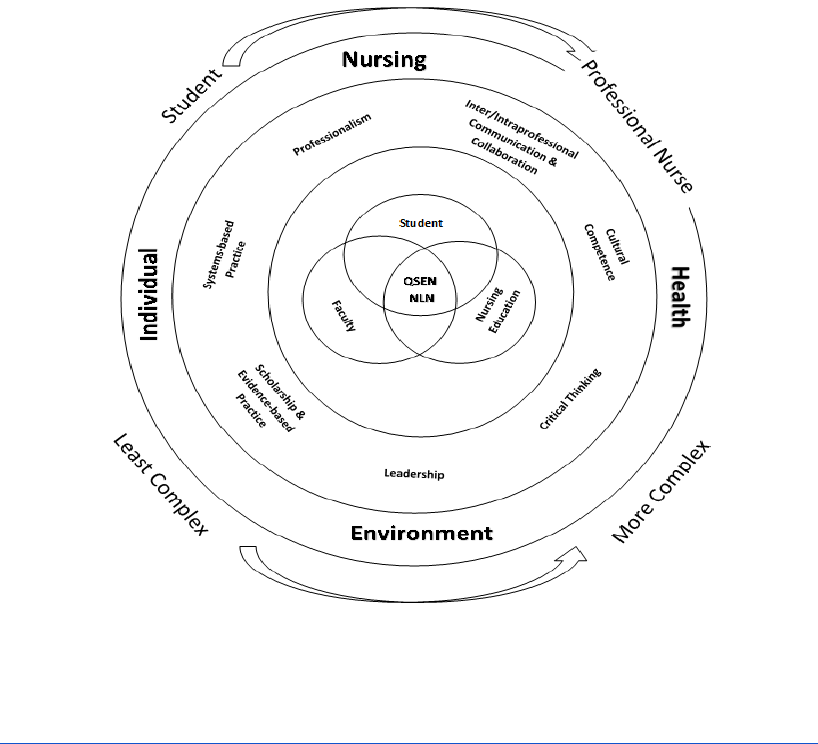
2023-2024
11
General Education Outcomes
Click here for Ivy Tech Community College General Education Outcomes Statement
The link above provides information on the Indiana College Core (ICC) . Many of these courses can be
taken prior to or following admission into the nursing program. Some college programs may be waived
from following all requirements of the ICC.
ASN Student Learning Outcomes
Upon completion of the program, the graduate will be able to:
1. Function within the role of the associate degree nurse, incorporating professional, legal and
ethical guidelines, to provide collaborative, safe, culturally competent, and holistic patient-
centered care.
2. Analyze data and the relationships of the biological, psychosocial, cultural and spiritual
components of patient needs to improve quality and safety of patient care
3. Demonstrate effective use of technology to navigate the electronic health record, communicate
with inter/intraprofessional teams, and be involved with decision making in the delivery of
quality and safe patient care.
4. Integrate current evidence-based practices and critical thinking techniques to develop the
patient’s plan of care.
2023-2024
12
5. Utilize communication practices that foster effective collaboration with patients, families and the
inter/intraprofessional team for planning and delivery of quality patient care.
6. Promote a culture of caring and advocacy that demonstrates respect for individual patient
preferences, values, needs and the diversity of the human experience.
7. Assume accountability and responsibility in fulfilling the role of the associate degree nurse,
through personal and professional growth, integration of current evidence-based practice and
understanding of multiple dimensions of patient-centered care.
8. Provide leadership in a variety of healthcare settings to diverse patient populations.
PN Student Learning Outcomes
Upon completion of the program, the graduate will be able to:
1. Function within the role and scope of practice of the practical nurse, incorporating professional,
legal and ethical guidelines, to provide collaborative, safe, culturally competent, and holistic
patient-centered care.
2. Recognize and describe the relationships of the biological, psychosocial, cultural and spiritual
components of patient needs to improve quality and safety of patient care.
3. Demonstrate effective use of technology to navigate the electronic health record, communicate
with inter/intraprofessional teams, and support decision making in the delivery of quality and
safe patient care.
4. Integrate current evidence-based practices and critical thinking techniques to contribute to the
patient’s plan of care.
5. Utilize communication practices that foster effective collaboration with patients, families and the
interprofessional team for planning and delivery of quality patient care.
6. Promote a culture of caring and advocacy that demonstrates respect for individual patient
preferences, values, needs and the diversity of the human experience.
7. Assume accountability and responsibility in fulfilling the role of the practical nurse, through
personal and professional growth, integration of current evidence-based practice and
understanding of multiple dimensions of patient-centered care.
8. Manage care in a variety of healthcare settings for diverse patient populations through the
process of planning, organizing and directing.
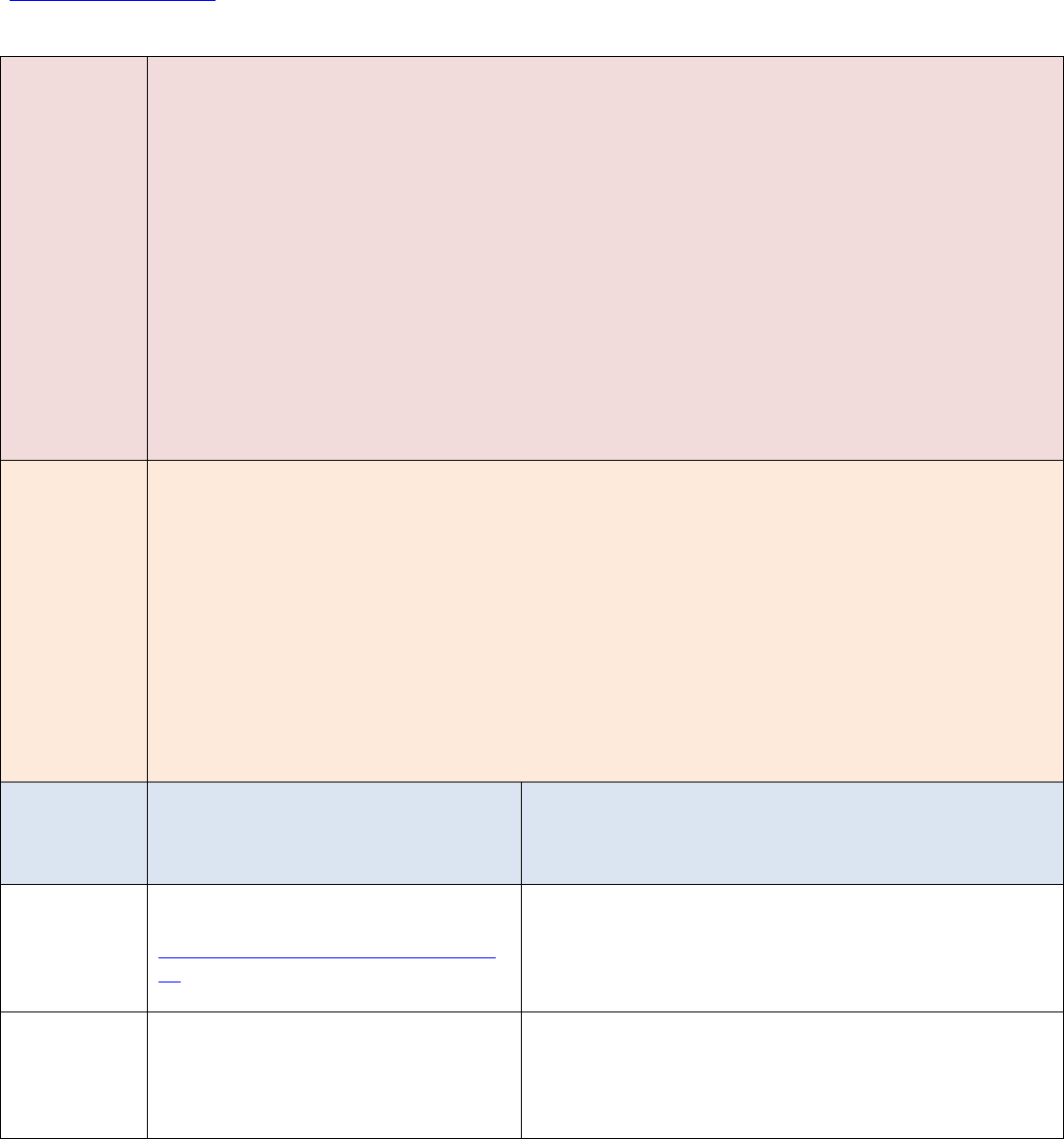
2023-2024
13
Alignment of Student Services and Resources with Program Outcomes
A wide variety of college and career services are available to all Ivy Tech students through the main Ivy Tech website at
http://www.ivytech.edu.
ASN
Program
Outcomes
1. Program Completion Rate: 70% of Traditional Program students will graduate within six (6)
semesters, beginning with enrollment in the first nursing (NRSG) course, not including
periods of non-continuous enrollment; 70% of Transitional Program students will graduate
within 5 semesters, beginning with enrollment in the first nursing (NRSG) course, not
including periods of non-continuous enrollment.
2. Pass rate: The program’s annual ISBN pass rate (80% standard) and three (3)-year average
NCLEX-RN pass rate will meet or exceed accrediting organization standards.
3. Employment rate: 70% of graduate respondents will be employed in nursing within six to
twelve months following graduation.
4. Graduate satisfaction: At least 70% of graduate respondents will rate their overall level of
preparedness, knowledge, skills, and attitudes in the role of the entry-level registered nurse
as 3.5 or higher on a 5.0 scale.
5. Employer satisfaction: At least 70% of employer respondents will rate graduates’ overall
level of preparedness, knowledge, skills, and attitudes in the role of the entry-level
registered nurse as 3.5 or higher on a 5.0 scale.
PN Program
Outcomes
1. Program Completion Rate: 60% of practical nursing students will graduate within 5 semesters,
beginning with enrollment in the first nursing (NRSG) course, not including periods of non-
continuous enrollment.
2. Pass rate: The program’s annual ISBN pass rate (80% standard) and three (3)-year average NCLEX-
PN pass rate will meet or exceed accrediting organization standards.
3. Employment rate: 70% of graduate respondents will be employed in nursing within six to twelve
months following graduation.
4. Graduate satisfaction: 70% of graduate respondents will rate their overall level of preparedness,
knowledge, skills, and attitudes in the role of the entry-level practical nurse as 3.5 or higher on a 5.0
scale.
5. Employer satisfaction: 70% of employer respondents will rate graduates’ overall level of
preparedness, knowledge, skills, and attitudes in the role of the entry-level practical nurse as 3.5 or
higher on a 5.0 scale.
Service
Short Description of Service
Alignment/Rationale for Service
Category of support for program outcomes:
S=Student I=Institutional F=Faculty
C=Communities of Interest
About
(Ivy Tech)
General landing page for the College
that describes Ivy Tech.
https://www.ivytech.edu/about/index.ht
ml
● Description of a community college (S, I, F, C)
● History of Ivy Tech (S, I, F, C)
● Ivy Tech’s accreditation in higher education (S, I, F, C)
● Ivy Tech’s Mission (S, I, F, C)
Supports ASN & PN Program Outcomes: 1, 3, 4 & 5
Academic
Advising and
Mentoring
Academic advising is free and open to
all current and prospective students.
Program and discipline-specific advising
is provided to answer student questions
about classroom content and tutoring
● Academic advising helps students plan what courses to
take in preparation for application to the nursing
programs. (S, I, C)
● Academic advising enhances program completion by
instructing students what courses to take while in the

2023-2024
14
related to assigned course load.
Mentoring supports students in
managing their own learning, meeting
career goals, and developing their skills.
program and making sure that students are on track for
graduation. (S, I, C)
● Provides opportunities for early intervention for students
struggling with course content to ensure timely
completion and/or progression toward graduation. (S, I,
C)
● Assists students to access available internal and
external resources that enhance their education. (S)
● Helps students identify other experiences that will
enhance their life, educational, and cultural goals.
(S)
Supports ASN & PN Program Outcomes: 1 & 4
Alumni
The Ivy Tech Alumni Association is the
official alumni network for Ivy Tech and
serves more than 500,000 alumni, the
College, and students. Information
regarding Ivy Tech’s Alumni
Association can be found at:
https://www.ivytech.edu/alumni/index.ht
ml
● The alumni association helps alumni of Ivy Tech to
support the vision of the College. (S, I, C)
● The purpose of the alumni association is to: support and
advance the mission of the College; foster a spirit of
pride and loyalty for the College; develop programmatic
outreach for alumni participation; communicate
achievements and the needs of the College; promote and
advance the interests and general welfare of the College;
participate in fundraising for the Ivy Tech Foundation;
and recognize personal and professional achievement of
the Ivy Tech Community College alumni. (S, I, C)
● All of the purpose statements and strategies increase
prospective, current and alumni student satisfaction with
the college and their program of study by enhancing
engagement with the college community. (S, I, C)
Supports ASN & PN Program Outcomes: 4
IvyLearn
IvyLearn (Canvas®) is the learning
management system utilized in the
delivery of course materials and content
across all Ivy Tech courses.
● All courses within Ivy Tech utilize Canvas® for course
delivery or support to include posting of course
materials, emailing/messaging, course discussions,
assignment submission, and grading. (S, I, F)
● Nursing courses at Ivy Tech utilize Canvas® in
conjunction with the face-to-face course as a method of
student support of learning. (S, I, F)
Supports ASN & PN Program Outcomes: 1 & 4
Bookstore
College bookstores on campus and
online.
● Bookstores on campuses and online provide the students
opportunities to purchase or rent their instructional
materials, which are essential to successful completion
of their courses and program. (S, I)
● Having a college bookstore also allows many students to
utilize financial aid to purchase their books, supplies,
and other instructional materials, which otherwise may
present a burden and barrier to completion, if not
financial aid eligible. (S, I)
Supports ASN & PN Program Outcomes: 1 & 4
Ivy+ Career
Link
Students and employers have access to
career services in each region with
additional information online at
● The college provides career development opportunities
at the central and regional levels to include items such as
resume writing, interviewing skills, professional dress,

2023-2024
15
https://www.ivytech.edu/career-
development/index.html
connections with potential employers, job fairs, live and
virtual job boards, and many other services to support
program outcomes of employment of nursing graduates
after their education completion. (S, I, F, C)
● The career development page also has information for
employers and allows them to post position openings for
current students/alumni to view through Hire Ivy to
foster employment rates of Ivy Tech nursing graduates.
(S, I, F, C)
Supports ASN & PN Program Outcomes: 1, 3, 4, 5
Childcare
Childcare support services available to
qualifying Ivy Tech students through the
Child Care Development Fund (CCDF).
Other child care services may be
provided at various campuses.
Information about CCDF is available
online at
https://www.ivytech.edu/childcare/index.
html. Contact your local campus
IvyCares representative for campus
specific child care information.
● Childcare supports students by allowing them to have
safe, consistent childcare for their children while they
are trying to complete school and work toward achieving
their goals within the nursing program. (S)
Supports ASN & PN Program Outcomes: 1 & 4
Clinical
facilities
Various clinical facilities throughout the
statewide system allow for completion of
academic competencies related to
applied clinical skills in the ASN and PN
programs.
Student clinical experiences are provided
through affiliation agreements obtained
with clinical agencies. These agreements
outline the responsibilities and privileges
of both parties. In off-campus settings,
it is required that faculty and students
shall conform to all policies of the
affiliating agency, including drug
screening, criminal background checks,
physical examination, immunization
records, tuberculosis screening, and
certification in basic life support.
● Supports program outcomes by allowing students to
integrate and practice didactic learning in a variety of
diverse clinical settings (S, C)
● Includes various in-patient, outpatient, and observational
sites to support clinical learning objectives, which in
turn support attainment of the student learning outcomes
and program outcomes (S, C)
● International travel enriches the student college
experience, enhances awareness of global healthcare
concerns, and creates meaningful linkages through
culturally diverse interactions. (S, F, C).
● Partnerships with clinical affiliates allow students to
experience various types of nursing, participate in
numerous caregiving opportunities, and develop and
refine clinical skill sets necessary for employment as a
nurse following program completion. (S, C)
Supports ASN & PN Program Outcomes: 1 & 4
College
Program
Information
The college website offers a listing of all
degree and program options throughout
Ivy Tech, with embedded links, to
provide information about the various
programs of study
https://www.ivytech.edu
An answer center provides campus-
specific information with live chat
options.
●
●
● All information on the general site supports nursing
program outcomes by providing essential information
regarding the College and its programs to potential
students (S, I, F, C)
Supports ASN & PN Program Outcomes: 1 & 4
College &
Program
Information is available online at the
college website and in person at the
● Allows students to apply to the college online
application at any of the campuses. (S, I, F, C)

2023-2024
16
Enrollment/
Application
Information
regional campuses regarding application
to the college.
https://www.ivytech.edu/apply-now/
Information for each School is also
available online at the college webpage
and program specific webpage
https://www.ivytech.edu/programs-a-
z/index.html
Students can apply online at
https://apps.ivytech.edu/apply/NursingA
ndHealthScience
● Admission to the college is the first step toward
programmatic application for limited enrollment
programs, such as nursing. (S, I, F, C)
● Information on the nursing web page provides students
with information regarding requirements to apply to the
nursing programs including: admission testing (TEAS
Test) and prerequisite courses.. (S, I, F, C)
Supports ASN & PN Program Outcomes: 1 & 4
Disability
Support
Services
Accommodations and support for
students with disabilities provided.
https://www.ivytech.edu/dss/
An Office of Disability Support Services
(DSS) is located on each of the College's
campuses.
● The mission of DSS is to provide access to College
programs, services, activities, and facilities for students
with disabilities; to provide student advocacy; to
encourage the highest levels of academic and personal
achievement; and to advocate for an accessible
environment for students, faculty, staff, and visitors.(S, I)
● Students admitted to the School of Nursing must be
capable of fulfilling the Essential Functions of Nursing
Students included in this booklet. DSS provides
assistance to students, who qualify for reasonable
accommodation under the Americans with Disabilities
Act (ADA), and Sections 504 and 508 of the
Rehabilitation Act. Reasonable accommodations may be
granted, based upon verification with appropriate
documentation, for chronic illnesses, neurological
conditions, learning disabilities, psychiatric illnesses,
mobility impairments, and other conditions or
impairments that limit one or more of life's major
activities. Please refer to the College's Documentation
Guidelines for specific information on requesting
reasonable accommodations.
● Students are responsible for contacting the campus
Disability Support Services representative to request
accommodations; any information shared will be kept
confidential unless the student authorizes release and
exchange of specified information. Every effort will be
made to provide reasonable accommodations in a timely
manner.
● Documentation of disability must be on file with the
Disability Support Services office prior to services being
provided. Late requests may delay accommodations. In
accordance with the above procedure, federal guidelines
and respect for individual privacy, no action will be
taken without a specific request.
Supports ASN & PN Program Outcomes: 1, 2, & 4
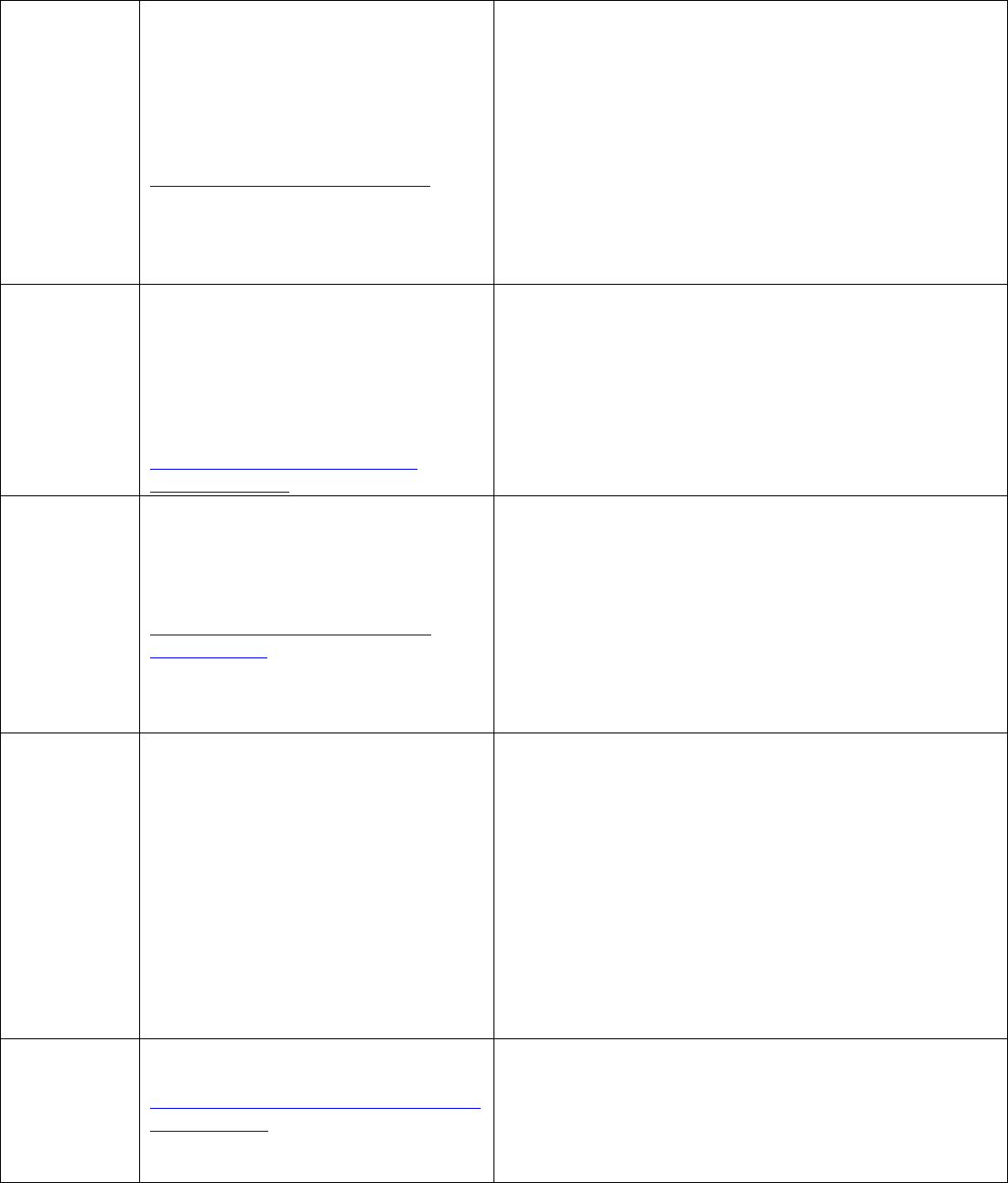
2023-2024
17
Diversity,
Equity, &
Belonging
Ivy Tech Community College is
committed to a diverse and inclusive
educational environment that extends
beyond tolerance to respect and affirms
human difference.
General diversity, equity, and belonging
information can be found at
https://www.ivytech.edu/diversity/
● Website information includes the commitment of Ivy
Tech to a diverse and inclusive educational environment.
(S, I, F, C)
● Includes Ivy Tech’s non-discrimination policy (S, I, F,
C)
● Provides specific links to various campuses for more
local resources (S, I, F, C)
● Diversity information and strategies promote inclusivity
and acceptance of all students, and supports program
outcomes by promoting greater student, faculty, and
graduate satisfaction.
Supports ASN & PN Program Outcomes: 1, 4, & 5
Enrollment/
Registration
Information is available online at the
college website and in person at the
campuses. Students can apply online at
the college webpage. Information for
each School is also available online at
the college webpage and program
specific webpage.
https://www.ivytech.edu/how-to-
enroll/index.html
● Enrollment is the first step toward completion of a
certificate or degree attainment in the nursing programs.
(S, I)
● Students must be admitted to the college to begin
progression toward admission in limited enrollment
programs, such as nursing. (S, I)
Supports ASN & PN Program Outcomes: 1, 2, & 4
How to Pay
Financial Aid
Website includes information such as:
options to pay for college; financial aid
information; applying for financial aid;
tuition & fees; and complete online
instructions for financial information at
https://www.ivytech.edu/financial-
aid/index.html and financial aid
personnel to assist in students applying
for financial aid at each campus.
● Paying for college is an important consideration for
many students to enroll and complete a degree. (S, I)
● Multiple options to pay for college is essential to student
outcomes, as many students cannot complete without
such services. (S, I)
● Extensive resources are important to help students
understand and navigate the financial aid requirements
so that they have funds available to pay for their
education. (S, I)
Supports ASN & PN Program Outcomes: 1 & 4
Instructional
Support &
NCLEX
Preparation
Additional instructional
supplies/resources that help support
curriculum content and prepare nursing
students for the NCLEX. Includes:
ATI’s Comprehensive Assessment and
Review Program (Basic Package); ATI
Live & Virtual Reviews
● Provides students in nursing programs additional
opportunities and support to practice NCLEX-style
questions in preparation for the NCLEX. (S, F)
● Provides additional opportunities for faculty to assess
student knowledge of programmatic content and
concepts. (S, F)
● Provides additional opportunities to remediate and
reinforce programmatic content. (S, F)
● Students have achieved higher rates of first-time
NCLEX pass rates following the implementation of
these methods of instructional and NCLEX preparation
support. (S, F)
Supports ASN & PN Program Outcomes: 1, 2, & 4
Library/
Resource
Services
Library/Resource services are available
online at
http://library.ivytech.edu/c.php?g=42910
0&p=2927303 and on each campus as a
source of instruction and assistance in
● The library webpage includes links to all of the different
regional campuses libraries online. (S, F)
● The library provides resources and services to assist
students and promotes positive student learning
outcomes. (S, F)
Supports ASN & PN Program Outcomes: 1 & 4

2023-2024
18
the use of resources and services to
students, faculty, and staff.
Physical
Resources
Classrooms, labs, instructional spaces
and equipment utilized to support
programmatic course offerings.
● Supports program outcomes to allow content
presentation in a variety of settings and with the use of
numerous resources.
Supports ASN & PN Program Outcomes: 1 & 4
Testing
Centers
Provide accommodations and a process,
procedure and location for students who
require special testing areas, late exams,
limited program initial entrance testing,
and other proctored testing situations.
● Testing centers allow students to test in a center at their
home campus and at other campuses, as needed. (S, I, F)
● Provides students opportunities to schedule testing
appointments online (S, I, F)
● Provides a consistent process related to testing (S, I, F)
Supports ASN & PN Program Outcomes: 1 & 4
Remediation
Advising &
Student
Success Plans
Remediation, Advising, and Student
Success Planning is a system of support
for the student. Any significant areas
identified for improvement may require
remediation and implementation of a
Student Success Plan. The
implementation of a Student Success
Plan is made collaboratively with careful
examination of the individual situation
and student outcomes. It involves input
from the nursing student, nursing
faculty, and/or assigned faculty advisor.
It is always made in the best interest of
the student. All students must achieve a
“C” or higher (75% or greater) in all
required courses in the ASN and PN
programs.
● The purpose is to help struggling students with
remediation efforts designed to provide advising,
remediation, and guidance to enhance knowledge,
skills, attitudes, critical thinking, application of
course concepts and achievement of student
outcomes. (S, F)
● The faculty seeks to ensure that each student
successfully completes our program(s), and is ready
to enter the nursing profession having assimilated
all knowledge, skills, and dispositions essential for
the future nurse. (S, F, C)
● The goal of a Student Success Plan is to enhance student
learning of course concepts and assist in achievement of
student learning outcomes. (S, F)
Supports ASN & PN Program Outcomes: 1, 4, & 5
Service
Engagement
Service initiatives allow students to
learn more about themselves and the
world around them. Students are able to
participate in a variety of community
opportunities from one-time service
projects to long-term service
partnerships. Check with the Student
Life Office at your campus to learn more
about service engagement opportunities.
● Involvement in service is an important aspect of
becoming a well-rounded citizen.
● Service opportunities are available through classroom
activities, involvement in student organizations, or
through campus and College-wide events like Ivy Tech
Days of Service. (S, I, C)
Supports ASN & PN Program Outcomes: 4 & 5
Skills Labs
Provides physical space for students to
practice and demonstrate nursing skills.
Includes static mannequins, skill models
and simulators, and nursing supplies and
equipment to develop and demonstrate
skill proficiency within the nursing
programs.
● Skill competency is introduced into the ASN and PN
programs in the first semester and continues as students
progress toward completion of programmatic outcomes.
(S, C)
● Competent caregivers contribute to both graduate and
employer satisfaction (S, C)
Supports ASN & PN Program Outcomes: 3, 4, & 5

2023-2024
19
Simulation
Provides opportunity for students to be
involved in patient care experiences they
may otherwise not experience in actual
clinical settings. Simulation offers the
ability to assess student clinical
judgment and critical thinking without
jeopardizing patient safety.
● Simulation provides high impact, low exposure
opportunities to students, while reinforcing best
practices in patient care, in a safe environment.(S, C)
●
● Students that have a variety of clinical opportunities are
better prepared to handle the expectations of employers.
(S, C)
Supports ASN & PN Program Outcomes: 4 & 5
Student Life
There are multiple student activities
available including student governance
groups, student organizations, leadership
development/academy, sports activities.
www.ivytech.edu/student-life/index.html
● Student Life activities increase student engagement
within the college and program. This improved
engagement helps to improve student completion and
promotes improved satisfaction with the program. (S, I,
C)
● Engagement with activities while in program increase
graduate appeal to employers, as they develop
transferable skills during these activities.(S, C)
Supports ASN & PN Program Outcomes: 3, 4, & 5
Technology
Technology is utilized to support the
teaching, learning, and evaluation of
students in the ASN and PN programs.
Examples include Electronic Health
Record documentation, medication
delivery systems, simulators, virtual
clinical activities, as well as various
technologies used within the classroom.
● Opportunities to engage in technology used in the
workplace increases graduate and employer satisfaction.
(S, C)
● Opportunities to engage in the use of technology also
increases employment rates, as graduates of the ASN
and PN programs are in higher demand and more
competitively placed for open positions. It also assists
with orientation, as students have experience with the
various technologies used in healthcare settings. (S, C)
Supports ASN & PN Program Outcomes: 3, 4, & 5
Title IX
Title IX of the Education Amendment
Act of 1972 prohibits discrimination
based on sex in education programs and
activities that receive federal financial
assistance. The college has put into
place policies to protect Title IX rights
of students, faculty, and staff.
See ASOM 5.15 and 9.3.
● As required by Ivy Tech Community College does not
discriminate on the basis of sex, including sexual
harassment, in its educational programs and activities,
including employment and admissions.
Tutoring
Tutoring Centers provide services to all
students cost-free on a variety of
subjects as well as program specific
tutoring by faculty and peer tutoring.
● Tutoring provides students additional assistance with
content mastery. This enhanced understanding may help
students successfully complete their courses and
subsequently, the nursing programs. (S, I, F)
Supports ASN & PN Program Outcomes: 1, 2, & 4
Writing
Center
Citation guides (MLA, APA, etc.),
Noodle Tools (help create citations) and
Tutor.com through the IvyLearn
®
system. These resources are available to
all students for any writing needs,
including assistance for ESL writing
support.
● Written communication is a key component of
professional nursing practice. Having resources that
assist with development of this skill helps students
progress toward meeting this programmatic outcome. (S,
C)
● Effective written communication is not only a
programmatic outcome, but also a transferable skill,
sought after by employers of nursing graduates. (S, C)
Supports ASN & PN Program Outcomes: 1 & 4
2023-2024
20
Clinical Experiences
Teaching and Clinical Facilities
All facilities and resources of Ivy Tech are available to nursing students. Students are encouraged to use
support services available at the home campus, as well as online. Instructional support services include
among others: tutoring and learning centers, the Ivy Tech Virtual Library, campus libraries, and use of
IvyLearn to enhance course delivery.
Student clinical experiences are arranged by program faculty and affiliation agreements obtained with
clinical agencies. These agreements outline the responsibilities and privileges of both parties. In an off-
campus setting, it is the policy of the College that faculty and students shall conform to all policies of
the affiliating agency, including drug screening, criminal background checks, physical examination,
immunization records, tuberculosis screening, and certification in basic life support.
Clinical hours and days will vary by course and section. Early morning, evening or weekend clinical
rotations may be required in some clinical areas. The hour length of the clinical day may vary by group,
rotation or facility assignment. Clinical shift length may range from 4 hours – 12 hours per day. Changes
may be made to clinical times or sections with limited notice due to space restrictions. Clinical
assignments are made with the rules imposed by clinical site/space availability. Student requests for
modification to posted clinical course sections/locations are problematic and seldom possible. In order to
meet student learning needs, program objectives, and clinical site restrictions, students will be assigned
to sites/times as deemed appropriate by the school dean.
Release of Information
Enrollment in the nursing program requires participation in clinical educational activities at certain
health care provider locations, including but not limited to hospitals, nursing homes, physical
rehabilitation centers and other health clinics. Clinical locations require proof of immunity to certain
infectious illness, tuberculosis screening, and documentation of criminal background checks, drug
screening, and student capability to perform essential nursing functions. Ivy Tech may disclose such
personal protected information to such clinical locations as necessary for student participation in said
health care related instructional program. This authorization extends indefinitely and may be revoked at
any time by providing written and signed notice to Ivy Tech. Refusal to authorize release of this
information may result in inability to participate in clinical experiences and may result in withdrawal
from the nursing program.
Students should be aware that the School of Nursing Faculty may copy student assignments from any
NRSG course taken during the time in the nursing program for the process of accreditation.
Transportation
All necessary transportation to clinical experience is the student’s responsibility and is not provided by
the school. Students are expected to comply with parking designations. Handicapped parking spaces and
visitor areas are reserved for those purposes, and vehicles improperly parked in those areas may be
ticketed or towed at the owner’s expense.
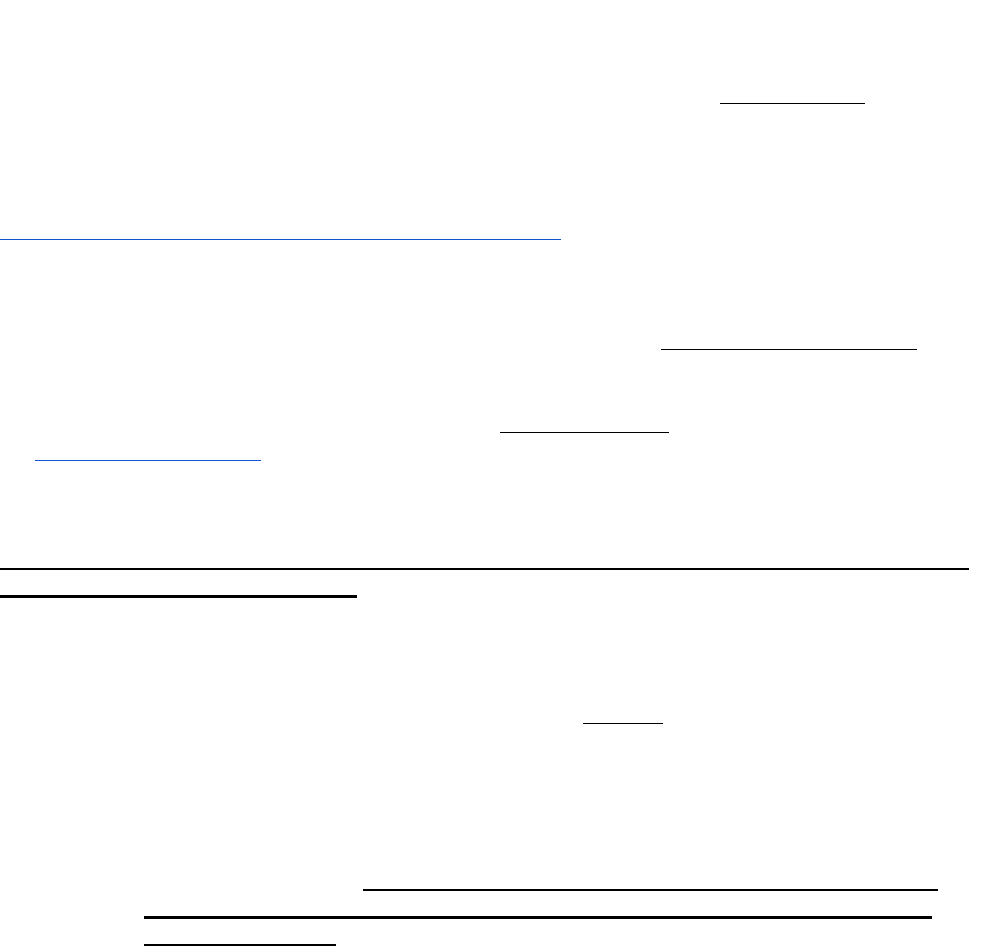
2023-2024
21
▪ The College does not guarantee transportation to, from or during any clinical experience.
▪ The College is not responsible for injury or loss resulting from transportation to, from, or during
any clinical experience.
▪ Student assumes all risks in connection with ride-alongs or transportation to, from, or during
any clinical experience.
▪ The College does not perform nor can it ensure a motor vehicle record check of third-party
drivers of clinical affiliates.
▪ A student who wants to make a complaint or report driver issues should do so promptly by
reporting to their instructor.
Student Health Insurance
The College recommends that students carry health insurance. The College does not offer a student health
insurance plan for domestic students. The Health Insurance Marketplace is designed to help you find health
insurance coverage specific to your needs and budget through either your state or the U.S. Department of
Health and Human Services for Medicaid or Medicare programs. Please visit HealthCare.gov for more
information, including an online application for health insurance coverage and contact information for local
health plan assisters.
Mandatory Health Insurance for International Students (see “Health Insurance” at
https://www.ivytech.edu/international-students/index.html).
Accidents and Illnesses
All student accidents or illnesses resulting from coursework or clinical participation must be reported
through the Student Accident Report Form available on MyIvy or at www.ivytech.edu/accident.
Students are responsible for carrying health insurance and for medical expenses incurred as a result of an
accident. The College provides a limited, excess accident insurance policy which may be accessed by
completing the accident report form. Please contact [email protected] for more information. Please see
the Accidents and Illnesses section of the Ivy Tech Community College Student Handbook for more
details.
If a student is injured while participating in a College course or College-sponsored activity, the
following steps MUST be followed:
1. NOTIFY THE INSTRUCTOR OR IVY TECH STAFF IMMEDIATELY.
2. Complete the Student Accident Report and Claim Form and submit through the online link
provided.
3. You should request that the medical provider submit itemized bills to the college representative
in charge of handling the campus student accident claims.
○ The College’s insurance carrier requires and only considers eligible expenses from an
itemized bill (HCFA 1500 or UB-92). An itemized bill MUST include the following:
Patient’s name, date of service, type of service rendered (procedure), nature of condition
being treated (diagnosis), provider’s name, provider’s address and provider’s tax
identification number. STATEMENTS OR PAST DUE BILLS WILL NOT BE
ACCEPTED. IT IS THE STUDENT’S RESPONSIBILITY TO OBTAIN AN
ITEMIZED BILL.

2023-2024
22
4. Not all claims are eligible under this plan. Filing a claim does not guarantee acceptance and
payment of claim. Be prepared to pay for services rendered if the claim is denied by the
College’s insurance carrier OR if the maximum of $3,000 has been paid through the plan. The
student accident plan does not consider sickness as payable under this plan. An example of a
claim considered sickness is fainting during a clinical.
Liability Statement
The College maintains Professional Liability insurance that covers the College, students, and instructors
of the College with limits in the amount of $1,000,000 per occurrence and $3,000,000 aggregate. This
coverage extends to clinical experience at an institution other than the College when it is a part of the
College training program. Each student may obtain additional individual liability insurance. This
coverage does not apply to employment situations such as externships and summer employment.
Housing
Ivy Tech is a commuter college and does not operate residence halls. However, the Office of Student
Affairs may be able to respond to questions concerning housing in the community. Ivy Tech accepts no
responsibility for locating, approving, or supervising local student housing.
Student Parking
As part of registration, some campuses require students to register their motor vehicles and obtain a
parking sticker. A special permit is required to park in spaces for persons with disabilities. Stickers are
to be displayed in the vehicle while parked on campus, and students may park only in designated student
parking areas. Vehicles improperly parked in areas reserved for the disabled, visitors, or others may be
towed at the expense of their owners.
Financial Information
https://www.ivytech.edu/financial-aid
Tuition and Fees - https://www.ivytech.edu/tuition/
Tuition and fees are established by the State Board of Trustees and are subject to change. Expenses will
include tuition, fees, books, uniforms, and other materials/equipment for use in the lecture, lab, and
clinical areas. Students accepted for admission to the School of Nursing will incur expenses associated
with obtaining the required physical examination, immunizations and/or titers, annual drug screenings,
criminal background checks, annual influenza vaccination and tuberculosis screening, and Basic Life
Support (BLS) for Healthcare Providers certification (accept only American Heart Association
(HeartSaver) or American Red Cross Provider with hands-on skill assessment). Students should also
anticipate costs associated with applying for licensure upon completion of the program.
Financial Aid - https://www.ivytech.edu/financial-aid
Ivy Tech participates in various types of federal and state financial aid programs that provide assistance
to many students. Ivy Tech also provides financial assistance to students from its own resources.
Students are encouraged to carefully explore all financial aid options at their campus.

2023-2024
23
Students must complete the Free Application for Federal Student Aid (FAFSA) to be considered for any
form of financial aid. This form is available online at https://www.fafsa.gov. Financial aid is available
for both full- and part-time students regardless of age, race or sex. Ivy Tech offers various types of
financial aid to students who need assistance to continue their education. Students are encouraged to
survey carefully the available financial aid options. Students must be accepted for admission to the
college in an eligible program to receive financial aid. For additional information on financial programs
administered through the College, please make an appointment to see a financial aid advisor on your
home campus.
Many healthcare agencies sponsor tuition assistance and scholarship programs for nursing students. In
some cases, scholarships require a commitment to employment following graduation. Inquiries should
be directed to the local healthcare agencies.
Financial Obligation
The Bursar’s Office is responsible for the collection of any outstanding obligations to the College. A
person with an outstanding account will be denied certain College services. For example, official
transcripts may not be obtained, registration forms will not be processed, and diplomas will not be
issued until outstanding obligations are resolved.
Nursing Program Admission, Progression, and Graduation Policies
The semester of admission to the ASN or PN program is defined as the semester students are enrolled in their first
NRSG (nursing) courses. Application for admission and completion of prerequisite general education courses
generally begins several months in advance of the actual semester of admission. The School of Nursing is a
limited enrollment program with additional admission requirements beyond admission to the College. A selection
point system is used for admission/selection decisions. (Refer to the Selection Point System section).
General Program Admission Requirements
● Applicants to the School of Nursing must first complete requirements for admission to the
College.
● Applicants transferring general education credits from outside Ivy Tech may be eligible for
admission based on grades achieved and validated following review of transcripts.
● Applicants to the School of Nursing must complete the Knowledge Assessment if they do not
have previous college credit, an ACT, SAT, or PSAT score. If indicated, students must
complete all required developmental courses (OXX) and any required co-requisite courses, prior
to admission to the program (the first semester of NRSG courses).
● Applicants must score at the PROFICIENT level or higher on the Assessment Technologies
Institute, LLC (ATI) Academic Preparedness Category of the Test of Essential Academic Skills
(TEAS) to be considered for admission to the ASN or PN programs.
High School Transcript or High School Equivalency Exam (GED, HSE, TASC or HiSet)
Consistent with Indiana State Board of Nursing (ISBN) requirements, a copy of your official completed
high school transcript from a state-approved high school or its equivalent, or individual and total High
School Equivalency Exam (GED, HSE, TASC or HiSet) test scores must be submitted with the online
nursing application and will be maintained on file.

2023-2024
24
● Current High School students who have not graduated from High School prior to the application deadline
may have an extension until August 1 for spring graduates and January 1 for fall graduates.
● Any transcript from outside of the 50 U.S. states, the District of Columbia, American Samoa, Guam,
Northern Mariana Islands, and the US Virgin Islands must receive official credential evaluation from a
NACES (https://naces.org) approved organization showing the equivalence of a U.S. high school
diploma. Official evaluation must be sent directly from the credential evaluator to the Registrar Hub
(transcripts@ivytech.edu). A copy of the original high school transcript and the NACES-approved
evaluation must be submitted with the nursing program admission application.
General Education Prerequisite Courses
Completion of the following required prerequisite courses with a grade of “C” or higher are required for
admission to the ASN and PN programs:
● APHY 101 Anatomy and Physiology I
● ENGL 111 English Composition, and
● PSYC 101 Introduction to Psychology
Deadlines for completion of Prerequisite Courses
In order for prerequisite general education courses to count towards program admission selection points, the
courses must be completed by the specific deadlines listed below:
● Fall admission - completed by the end of previous spring semester
● Spring admission - completed by the end of the first 8 week term of fall semester
● Summer admission - completed by the end of the previous fall semester.
Pre-requisite courses must be completed by the close of the application system in order for the student to
complete and submit their application.
Transfer Credit for Prerequisite Courses
Students interested in having transfer credit applied to their transcript should review ASOM 1.06 Transferring
Courses into Ivy Tech. Transfer courses count toward the maximum allowed attempts for the equivalent course
(see ASOM 3.2 Course Repeat, Drop, Add).
To ensure adequate time for processing of any external college transcripts for points towards admission
and/or TEAS test scores, please submit your college transcript and TEAS test by established deadline prior
to the application deadline.
All students desiring to have transfer credit applied to their Ivy Tech Transcript must submit
transcripts from other colleges to the Registrar Hub for evaluation and addition of potential
transfer credit at least one month prior to the application deadline. Adhering to this deadline will
help ensure adequate time for evaluation and processing of external college transcripts for prerequisite
courses completed at other colleges. This time is needed so that prerequisite course grades can be
counted for points toward admission. Students are advised that transfer of separate Anatomy and
separate Physiology courses from other colleges will result in a grade of TR assigned as the transfer
grade for APHY 101 and APHY 102 courses.
The email address students should relay to their colleges/universities for official transcripts to Ivy Tech
The mailing address students should relay to their colleges/universities for hard copies of official

2023-2024
25
transcripts to Ivy Tech is:
Transcript Processing
9301 E. 59
th
St.
Indianapolis, IN 46216
Applications and all required documentation must be submitted no later than 11:59 p.m., Eastern
Standard Time, by the Application Deadline date.
Reminder: When scheduling TEAS tests and for college transcript submissions, please refer to the college
calendar on the website for campus open hours and holiday closure information.
Please review ATI TEAS Testing Deadlines & Timing for TEAS deadlines for each application cycle, as the
online application Open Dates and the Application Deadline date may vary depending on the College
academic calendar.
Please check the website for information about the Nursing Programs and the most current online
application information and deadlines.
Mandatory Nursing Information Session
It is the applicant’s responsibility to be aware of the most current requirements and curricula available at
www.ivytech.edu/nursing. Please review the Nursing Information Session or participate in a face-to-face session
(determined by campus) within three months prior to each application period, as acknowledged in the online
application.
TEAS Entrance Test
The Test of Essential Academic Skills (TEAS) is used as part of the admissions process by the Ivy Tech School of
Nursing programs. See ATI TEAS Testing for more information.
● Information about the TEAS is available at www.atitesting.com
● Study guides are available via campus bookstores and at www.atitesting.com.
● The ATI TEAS may be taken up to two (2) times in a two-year period regardless of the testing location.
● There must be at least thirty (30) days between the test dates for the TEAS. Day of initial testing is day
zero. For example, if the initial test is taken January 1st, the next eligible test date is January 31st.
● Applicants must pay the approved testing fee with each attempt.
● TEAS Test scores will be valid for two (2) years from the date of the initial TEAS test for all nursing
program tracks and must be valid through the application deadline date. TEAS tests that expire prior
to the application deadline will be ineligible for consideration towards program admission, even if the
student applies prior to the application deadline.
● The TEAS test must include all four test components to be considered valid: Reading, English, Math, and
Science. Partial tests will not be accepted.
● Applicants who take the TEAS at schools other than Ivy Tech must contact Assessment Technologies
Institute (ATI) to request TEAS test transcript be transferred to Ivy Tech. The student is responsible for
payment of the transfer fee. ATI will update the student account so that scores can be transferred
electronically. Transfer requests should be initiated well in advance of the application deadline to allow
time for account updates.
● Applicants must score at the PROFICIENT level or higher to be considered for admission.
● TEAS sub-category scores will be used in the selection point system. (See Program Admission Selection
Point System).
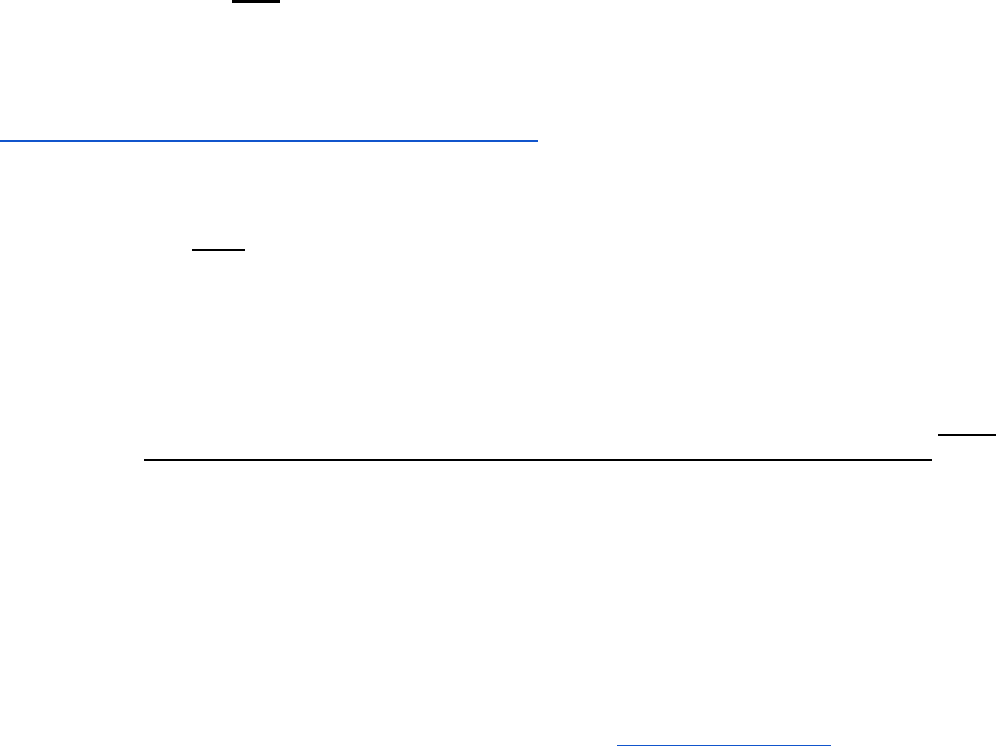
2023-2024
26
o The applicant’s ATI Academic Preparedness Category appears on the TEAS Score report
immediately below the Adjusted Individual Total Score. The Adjusted Individual Total Score
will be used only as a tiebreaker.
o Applicants whose ATI Academic Preparedness Category is at the Developmental or Basic
level will NOT be considered for admission.
Completing the Online Nursing Application
A completed online nursing application, found at
https://apps.ivytech.edu/apply/NursingAndHealthScience must be submitted electronically by the
specified deadline date.
● The online nursing application will open two (2) months prior to each application cycle deadline date.
● Applications for the Traditional ASN program from students who are currently enrolled in the PN
program will NOT be considered.
● Currently seated Ivy Tech Community College nursing students are not eligible to apply to
another campus or nursing program.
● Applicants may not apply to both ASN program tracks (Traditional & Transitional track) at the same
time.
● Applicants may apply to both the ASN and PN programs and must include the following
information:
o Completed TEAS test results must be submitted 14 days prior to the application deadline. TEAS
results older than two (2) years at the application deadline date will not be accepted.
o Copy of an official complete high school transcript or its equivalent, which must clearly include
the date of graduation/completion, or a copy of a High School Equivalency Exam (GED or
TASC) listing the student’s name with total and individual GED or TASC test scores and date of
completion.
➢ Current High School students who have not graduated from High School prior to the
application deadline may have an extension until August 1 for spring graduates and January 1
for fall graduates.
● It is the student’s responsibility to follow up with the Registrar’s office to determine if transfer
credit has been awarded and applied to the Ivy Tech transcript.
o Official transcripts from other colleges/universities and CLEP/DANTES, Advanced Placement, and
other test results must be submitted to the Registrar Hub (transcripts@ivytech.edu) at least one (1)
month prior to the application deadline for evaluation of general education courses towards program
admission and selection points.
LPN to ASN Transition Track Applicants
● Applicants must provide documentation verifying possession of a current, active, unencumbered Indiana
LPN and/or compact license, which must be submitted with the online nursing application. Please see the
“Process for Verification of LPN License” section for further instructions.
● Students must maintain a current, unencumbered Indiana LPN and/or compact license throughout the
program. Any student whose license is not current or is encumbered by any pending disciplinary action
by the Indiana State Board of Nursing will not be permitted to progress in the program until such time
that a current, unencumbered license is regained. Maximum time frame for completion will not be
extended due to such circumstances.
● A copy must be submitted with the application and after each renewal period. Your license will be
verified by the School of Nursing.
● The same selection decision scoring process listed above will be utilized to rank-order
candidates.
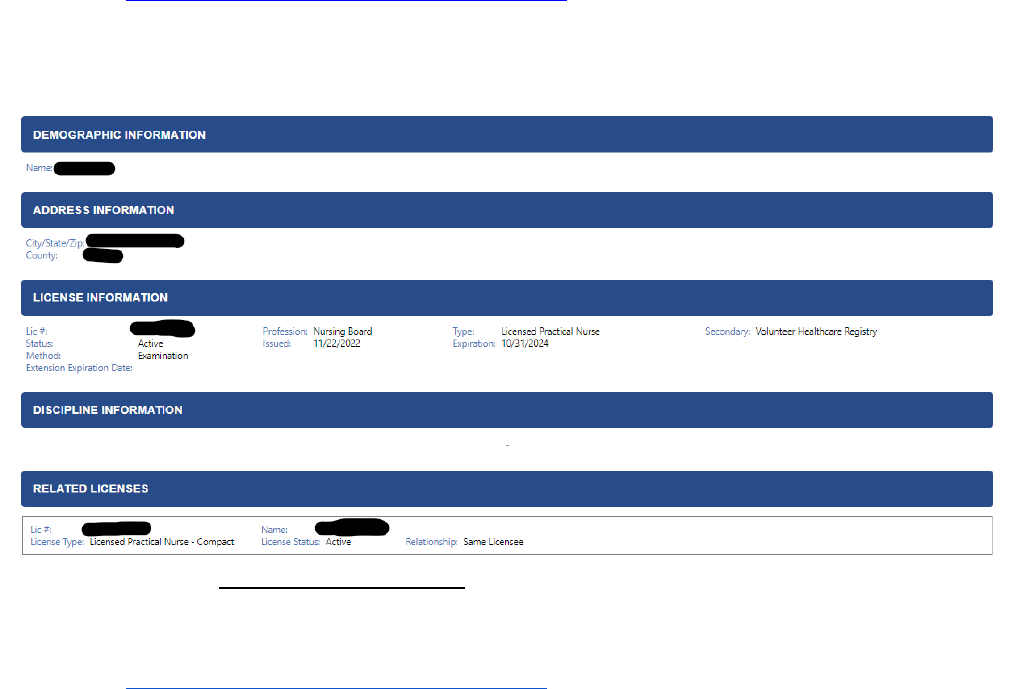
2023-2024
27
● Verified credit will be awarded for the following first year entry level ASN nursing courses
following successful completion (grade of C or higher) of NRSG 122 Introduction to ASN
Transition (if more than two years following graduation or an external program graduate), and
NRSG 125 LPN Transition to ASN Lab.
o NRSG 100 Fundamentals of Nursing
o NRSG 102 Medical-Surgical Nursing I
o NRSG 105 Medical-Surgical Nursing I Clinical
o NRSG 106 Pharmacology for Nursing
o NRSG 110 Medical-Surgical Nursing II
o NRSG 111 Medical-Surgical Nursing II Clinical
o NRSG 115 Nursing Lab
Process for Verification of LPN License
Documentation verifying a current, active, unencumbered Indiana Practical Nurse License must be uploaded to
the online nursing application for any LPN to ASN Transition Program applicants. This information can be
obtained online from The Indiana Professional Licensing Agency (IPLA) through the following process:
Step 1: Go to https://mylicense.in.gov/everification/Search.aspx
Step 2: Enter your first and last name, then click “search”
Step 3: Click on your name to open the full license profile.
Step 4: Screenshot or copy the full license profile that appears on the screen below, then post it in the online
application.
Note: The license status must be listed as ACTIVE. Licensees with current discipline such as suspension or
probation, or temporary permits/licenses are not eligible for admission into the nursing programs.
The LPN to ASN Transition Track application will accept NURSYS verifications of LPN Licensure for those
with Nurse Licensure Compact (NLC) licenses.This information can be obtained through the following process:
Step 1: Go to https://www.nursys.com/LQC/LQCSearch.aspx
Step 2: Enter your first and last name, license type, and state, then click “search”
Step 3: Click on “view report”
Step 4: Screenshot or copy the full license profile that appears on the screen below, then post it in the online
application. The license status must be active and unencumbered.
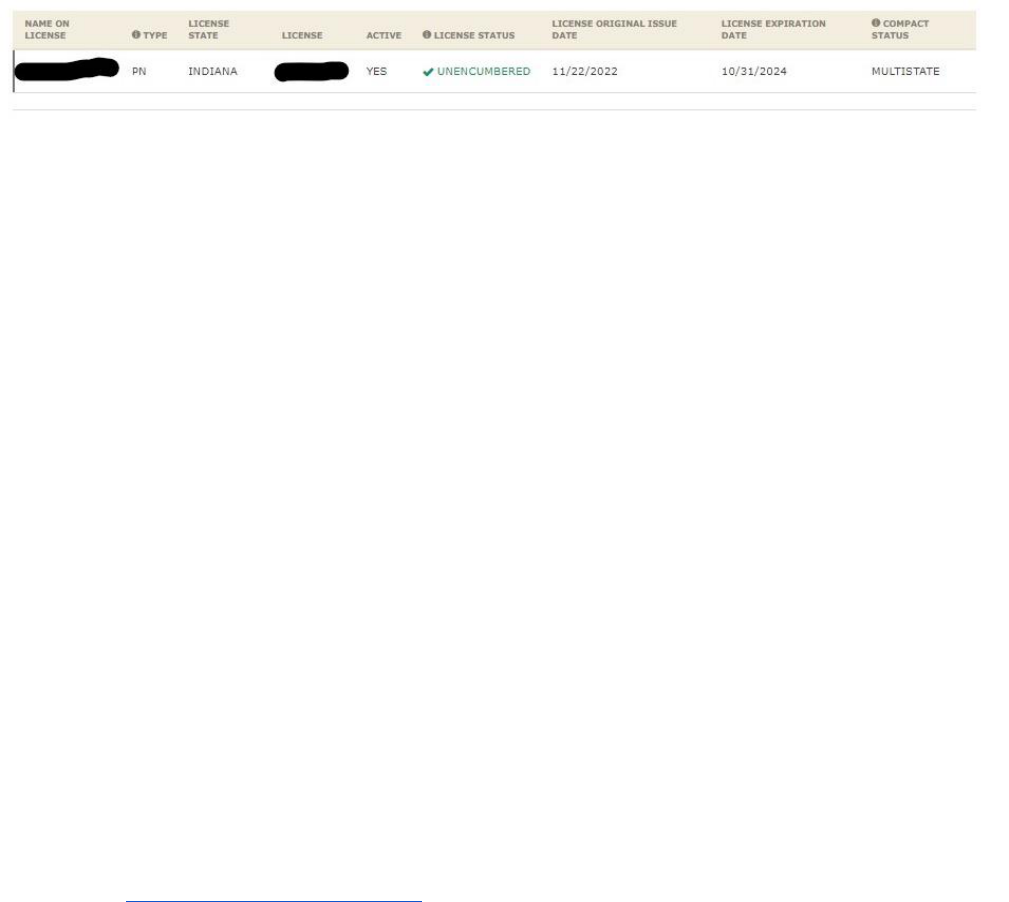
2023-2024
28
Medical Assistant to ASN Transition Track Applicants
● Medical Assistant to ASN Transition track applicants must provide documentation verifying possession
of a current, active, unencumbered CMA-AAMA certification, which must be submitted with the online
nursing application.
● The same selection decision scoring process listed above will be utilized to rank-order candidates.
● Medical Assistant to ASN Transition track applicants must maintain a current unencumbered CMA-
AAMA certification through the program.
○ A copy must be submitted with the application for admission and after each certification or
registration renewal period.
○ Your certification/registration will be verified by the School of Nursing.
○ Any student whose certification is not current or is encumbered by any pending disciplinary
action will not be permitted to progress in the program until such time that a current,
unencumbered certification or registration is regained. Maximum time frame for completion will
not be extended due to such circumstances.
● The same selection decision scoring process and rank ordering of candidates utilized currently for all
nursing program applicants will also be utilized in selecting eligible candidates for this program track.
● Verified credit will be awarded for the following first year entry level ASN nursing courses following
successful completion (grade of C or higher) of NRSG 122 Introduction to ASN Transition and NRSG
123 MA/Medic Transition to ASN Lab/Clinical.
o NRSG 100 Fundamentals of Nursing
o NRSG 102 Medical-Surgical Nursing I
o NRSG 105 Medical-Surgical Nursing I Clinical
o NRSG 110 Medical-Surgical Nursing II
o NRSG 111 Medical-Surgical Nursing II Clinical
o NRSG 115 Nursing Lab
Process for verification of CMA(AAMA) Certification (Indiana)
Step 1: Go to https://www.aama-ntl.org/contact to find the address to send your inquiry to.
American Association of Medical Assistants
20 N. Wacker Dr., Ste. 1575
Chicago, IL 60606
Step 2: You must write a letter to AAMA requesting a written verification of your status as a certified
medical assistant.
The letter must be signed by the person holding the certification in order for the staff at AAMA to provide
a verification of certification back to you. Please also provide your mailing address so that the verification
can be returned to you.
Step 3: Once verification is received, upload your verification to the online application in the location
indicated.
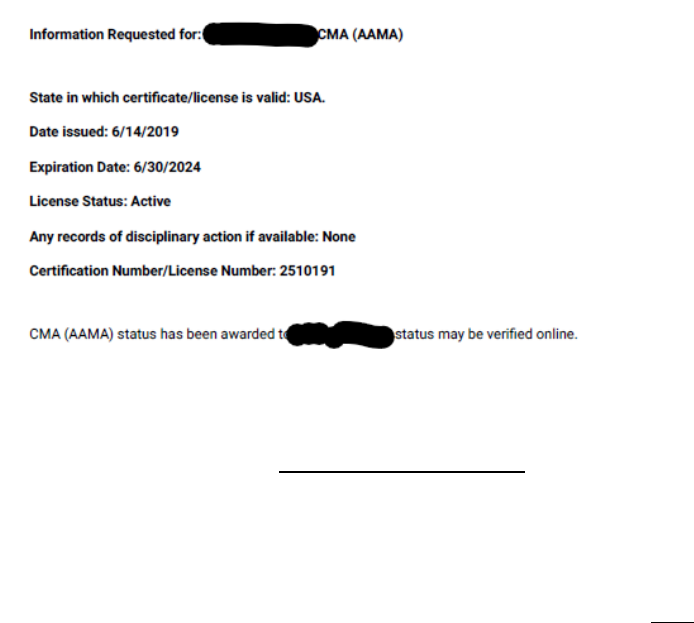
2023-2024
29
Notes:
1. Using the link on the AAMA website for verification requests will not result in the proper verification.
This link is for certified individuals to request when to renew their certification.
2. The certification status must be listed as ACTIVE. Applicants with current discipline such as
suspension or probation are not eligible for admission into the nursing programs.
Military Medic/Hospital Corpsman to ASN Transition Track Applicants
● Military Medic/Hospital Corpsman to ASN Transition applicants must submit proof of past or present
status as having HM3, NER-HM-004, Army 68WM6, or USAF4NO status.
● In addition, applicants will be required to submit verification of employment for two years within the past
five years as a military medic/hospital corpsman.
● Required documentation will be uploaded to the online nursing application site for review prior to the
beginning of the selection process.
● The same selection decision scoring process and rank ordering of candidates utilized currently for all
nursing program applicants will also be utilized in selecting eligible candidates for this program track.
● Verified credit will be awarded for the following first year entry level ASN nursing courses following
successful completion (grade of C or higher) of NRSG 122 Introduction to ASN Transition and NRSG
123 MA/Medic Transition to ASN Lab/Clinical.
o NRSG 100 Fundamentals of Nursing
o NRSG 102 Medical-Surgical Nursing I
o NRSG 105 Medical-Surgical Nursing I Clinical
o NRSG 110 Medical-Surgical Nursing II
o NRSG 111 Medical-Surgical Nursing II Clinical
o NRSG 115 Nursing Lab
Paramedic to ASN Transition Track Applicants
● Applicants must provide documentation verifying current, active, unencumbered state and/or national
Paramedic licensure through the Indiana Department of Homeland Security or the National Registry of
Emergency Medical Technicians.
● The same selection decision scoring process listed above will be utilized to rank-order candidates.
● Applicant must maintain a current, active, unencumbered, state and/or national Paramedic licensure or
registration throughout the program. A copy must be submitted with the application for admission and
after each Licensure or registration renewal period. Your licensure/registration will be verified by the
School of Nursing. Any student whose licensure/registration is not current or is encumbered by any
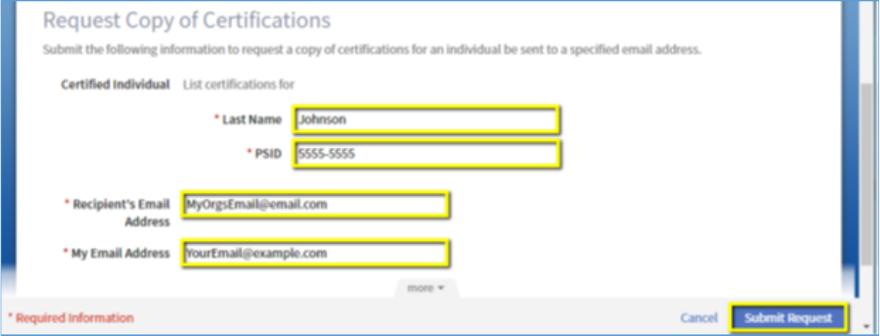
2023-2024
30
pending disciplinary action will not be permitted to progress in the program until such time that a current,
unencumbered licensure or registration is regained. Maximum time frame for completion will not be
extended due to such circumstances.
● Verified credit will be awarded for the following first year entry level ASN nursing courses following
successful completion (grade of C or higher) of NRSG 122 Introduction to ASN Transition and NRSG
123 Paramedic Transition to ASN Lab/Clinical.
o NRSG 100 Fundamentals of Nursing
o NRSG 102 Medical-Surgical Nursing I
o NRSG 105 Medical-Surgical Nursing I Clinical
o NRSG 110 Medical-Surgical Nursing II
o NRSG 111 Medical-Surgical Nursing II Clinical
o NRSG 115 Nursing Lab
Process for Verification of Paramedic Licensure:
Step 1: Go the Verification of Licensure request page:
https://acadisportal.in.gov/acadisviewer/CertificationLookup/default.aspx.
Step 2: Enter the last name and PSID into the required fields, as well as the recipient and requestor
email addresses; then click the submit request button. Only the email address entered into the
“Recipient’s Email Address” field will receive the requested information. You can enter the same email
address into both fields.
Note: If the last name and PSID are entered incorrectly, the system will respond the same as if all
information is correct. Please ensure all data is entered correctly, which includes using the hyphen when
entering PSID numbers, as shown in the example above.
Step 3: If all information was entered correctly in the request form, you will receive an email like the
one below.
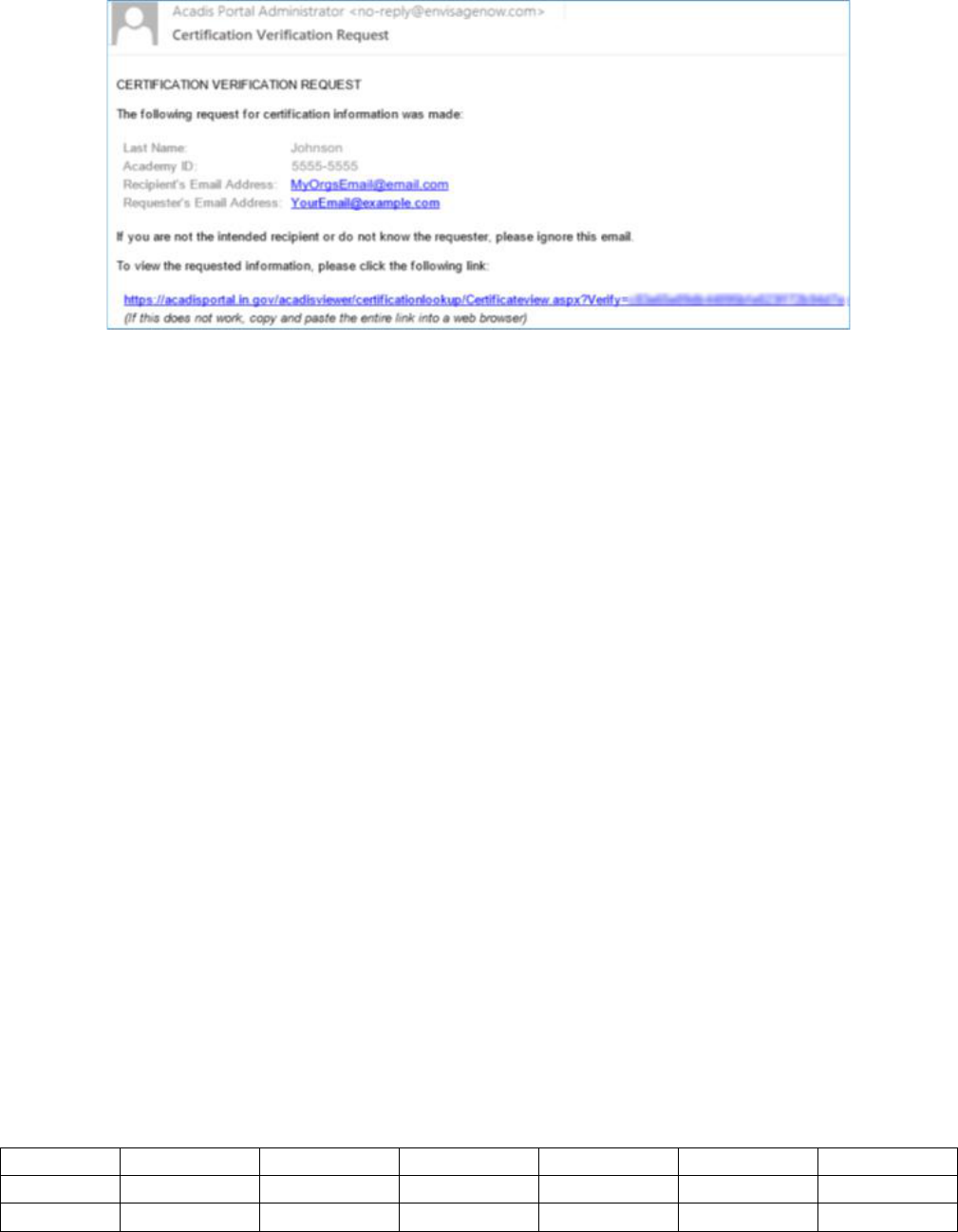
2023-2024
31
Step 4: Click on the link at the bottom of the email or copy and paste the link into your web browser.
Step 5: Once verification is received, upload your verification to the online application in the location
indicated.
Note: Students applying to the LPN to ASN, Medical Assistant to ASN, Military Medic to ASN or
Paramedic to ASN transition program tracks must follow the current curriculum of record and are
encouraged to meet with their advisor.
Program Admission Selection Point System
General Education Points
● A weighted point system will be used to determine points for the General Education Course component of
the selection score points.
● When multiple course attempts are reported on the college transcript(s), the highest earned grade of the
first three attempts of a course will be used for the selection decision score (Ws do not count, FWs do
count toward the first three attempts).
● Points for general education courses transferred in from other institutions will be awarded based on the
grade recorded on the Ivy Tech transcript.
o It is the applicant’s responsibility to ensure that the transfer credit has been applied and to provide the
transcript from the other institution by the deadline date.
o Transfer credit for separate Anatomy and separate Physiology courses will result in a grade of TR
assigned on the college transcript.
o Students may apply to the nursing programs with a TR grade on their Ivy Tech Community
College transcript.
● Points for verified credit (V) or college credit through Advanced Placement (AP), College Level
Examination Program (CLEP), International Baccalaureate (IB), and Dantes Subject Standardized Test
(DSST), will be awarded as indicated below.
o In order for points to apply, students must have taken and passed the AP placement exam and
verified credits must appear on the Ivy Tech transcript.
Course
A
B
C
D/F
TR
V
APHY 101
30
20
10
0
10
N/A
ENGL 111
15
10
5
0
5
10
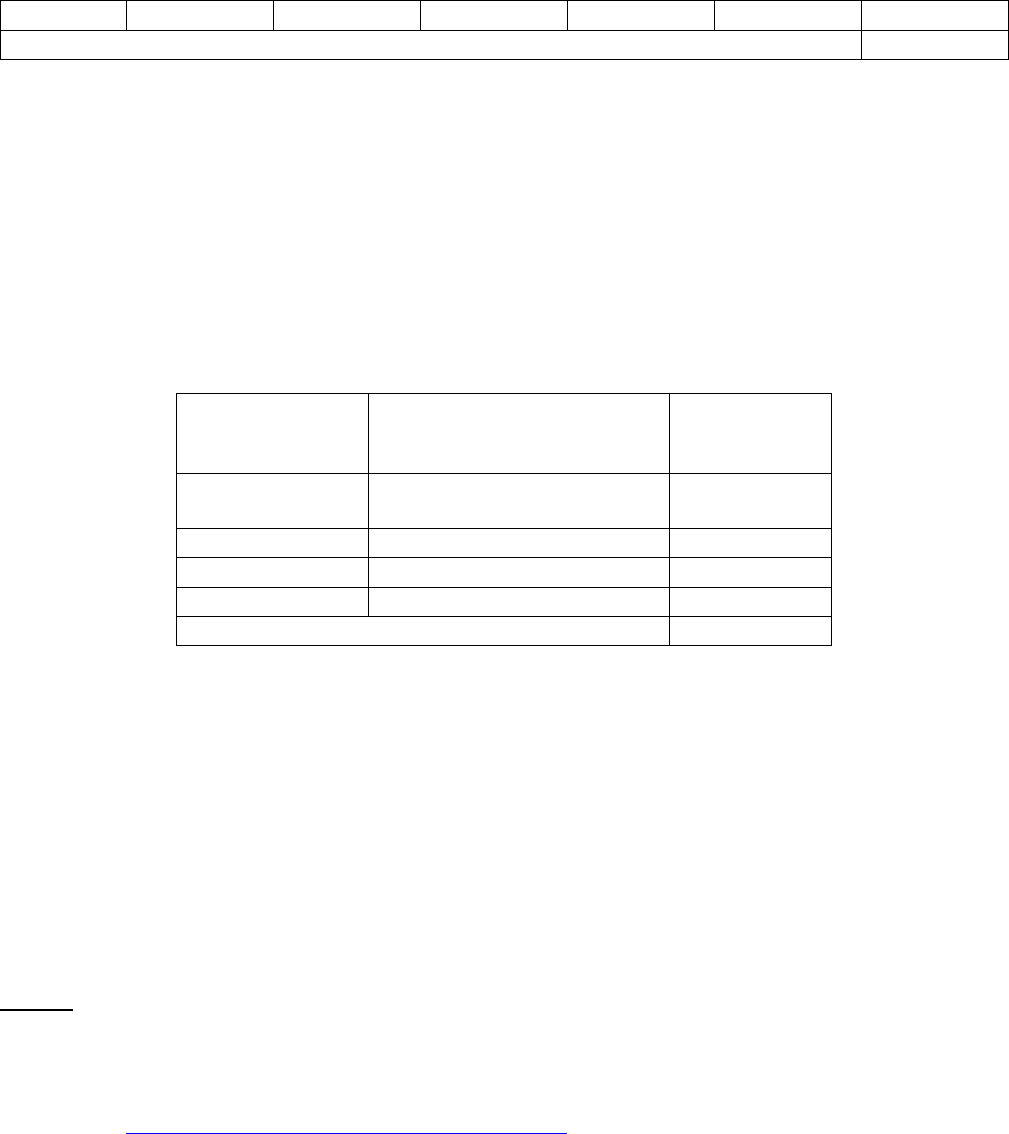
2023-2024
32
PSYC 101
15
10
5
0
5
10
Total General Education Points Possible:
60
TEAS Points
Once it has been determined that the applicant has met the minimum eligibility requirement, the following
weighted system will be used to determine the TEAS component of the selection score points. See page 30 for
detailed description.
Applicants with two (2) valid TEAS score reports available at the application deadline will have the opportunity
to self-select which test they wish to apply towards program admission. An entire TEAS score report with all
four (4) categories must be selected; selection of subsection scores between two (2) different TEAS tests is not
allowed.
Please refer to your home campus school of nursing for specific instructions regarding registering for the TEAS
test.
TEAS
Component
Weighted Sub-Test Point
Calculation
Maximum
Points
Possible
English &
Language Usage
Subsection % score X 0.20
20
Reading
Subsection % score X 0.30
30
Math
Subsection % score X 0.20
20
Science
Subsection % score X 0.30
30
Total TEAS points possible:
100
Tie Breaker Points
● TEAS Adjusted Individual Total Score
CNA Certification Points
Five (5) optional points may be added to the total admission decision score for applicants of the ASN Traditional
or PN programs, with approved documentation of Certified Nurse Aide certification in Indiana, Ohio, Kentucky,
Illinois, or Michigan. Documentation verifying a current, active Certified Nurse Aide certification must be
uploaded to the online nursing application for consideration. Once approved, five (5) points will be added to the
total admission decision score for an ASN Traditional or PN application.
Indiana
This information can be obtained online from the Indiana Professional Licensing Agency (PLA) through the
following process:
Step 1: Go to https://mylicense.in.gov/everification/Search.aspx
Step 2: Enter your first and last name, then click “search” (see highlights below).
Step 3: Click on your name in the “Sort Name” box to go to the next screen.
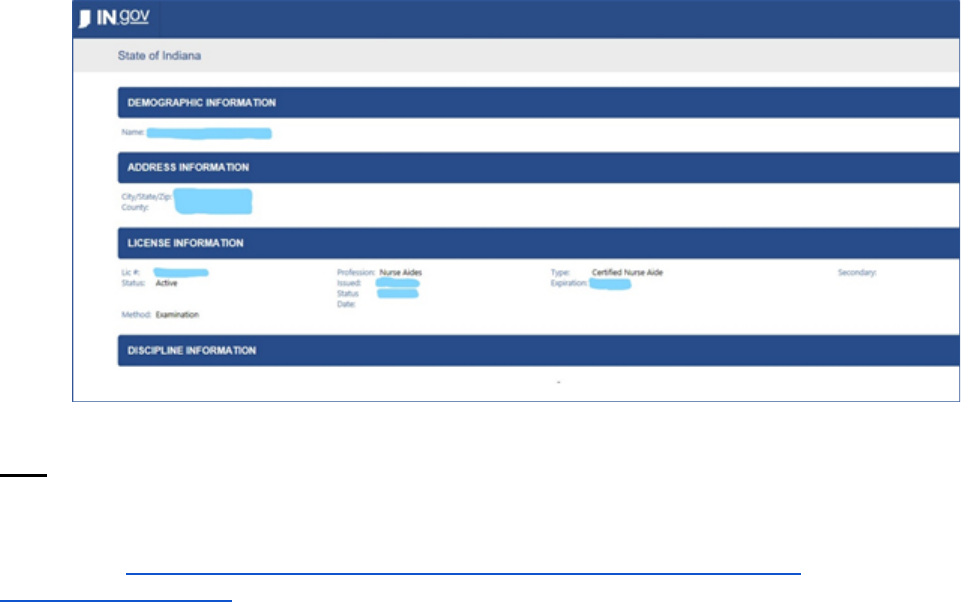
2023-2024
33
Step 4: Screenshot or copy the full certification profile that appears on the screen below, then post it in the online
application.
Ohio
This information can be obtained online from the Ohio Nurse Aide Registry through the following process:
Step 1: Go to https://odh.ohio.gov/wps/portal/gov/odh/know-our-programs/nurse-aide-
registry/nurseaideregistry
Step 2: Enter your registry number or enter your first and last name or the last four digits of your SSN, then click
“search.”
Step 3: Click on your name in the “Sort Name” box to go to the next screen.
Step 4: Screenshot or copy the full certification profile that appears on the screen below, then post it in the online
application.
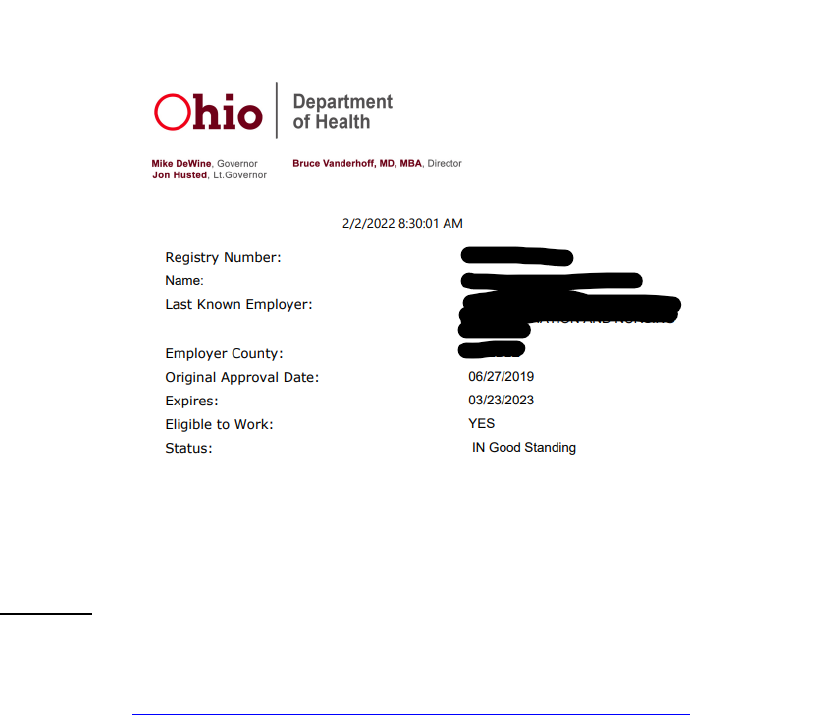
2023-2024
34
Kentucky
This information can be obtained online from the Kentucky Board of Nursing through the following process:
Step 1: Go to https://secure.kentucky.gov/kbn/bulkvalidation/basic.aspx
Step 2: Enter your identifier number or search by first and last name.
Step 3: Check the box next to your name and click “Validate Selected”
Step 4: Screenshot or copy the full certification profile that appears on the screen below, then post it in the online
application.
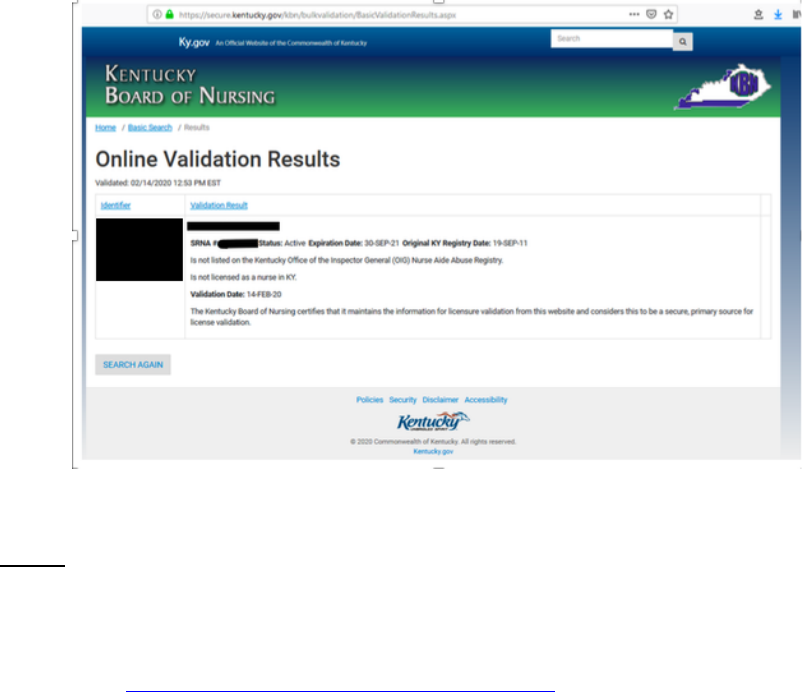
2023-2024
35
Illinois
This information can be obtained online from the Illinois Health Care Worker Registry through the following
process:
Step 1: Go to https://hcwrpub.dph.illinois.gov/Search.aspx
Step 2: Enter your first and last name, then click “search.”
Step 3: Screenshot or copy the full licensure profile that appears on the screen below, then post it in the online
application.
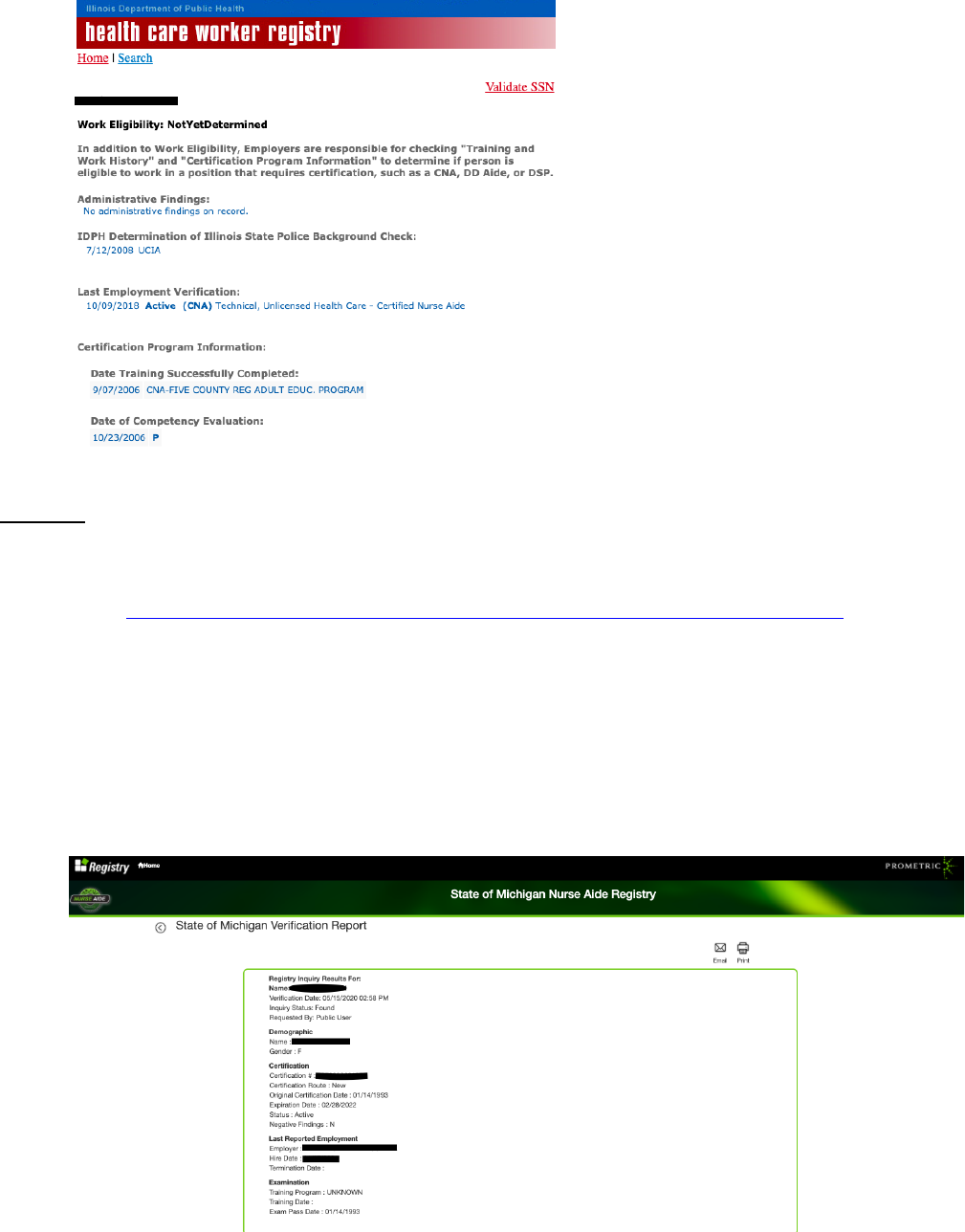
2023-2024
36
Michigan
This information can be obtained online from the Michigan Nurse Aide Registry through the following process:
Step 1: Go to https://registry.prometric.com/publicMI?capctaVisible=Visible&employerId=
Step 2: Complete the security check
Step 3: In the Nurse Aid Search area, enter your certificate number or search by first and last name.
Step 3: Click on your name in the search results to open the full certificate screen
Step 4: Screenshot or copy the full licensure profile that appears on the screen below, then post it in the online
application.
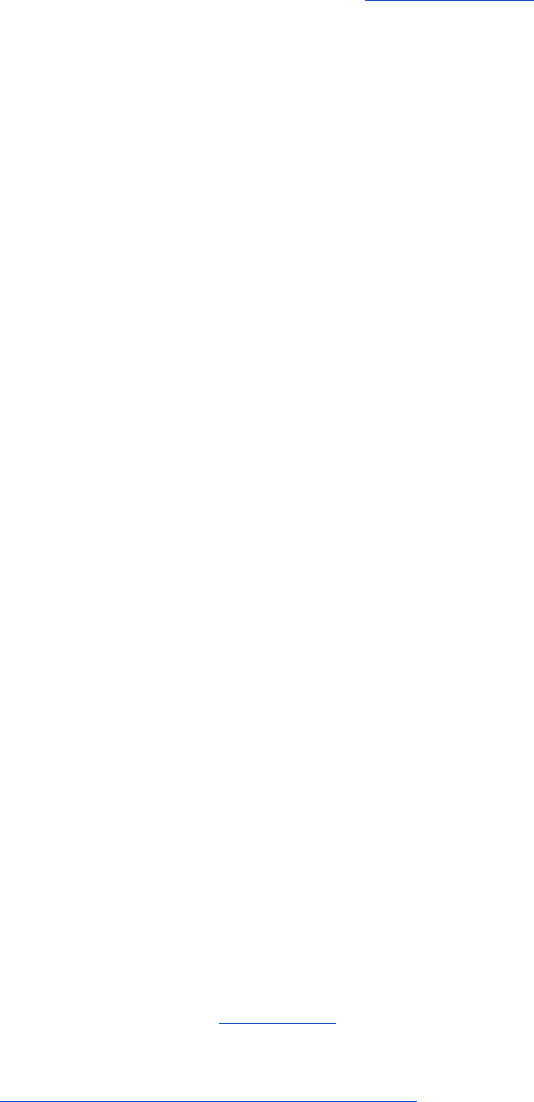
2023-2024
37
Selection for Admission
Application Details-see How to Apply to Nursing on the Nursing webpage. It is imperative that students
review the information on the web page.
● Students will be able to select up to 3 programs and 3 campuses each.
● Students meeting the stated application deadline are ranked utilizing this point system at the end
of the application period.
● Depending on their rank and offers, students could potentially receive multiple offers.
● Once a student accepts 1 offer, then they are immediately withdrawn from all offers.
● A student does have the option to withdraw his/her application entirely from the system. In this
case, the student will not be placed back into the application pool for this application cycle.
Admission Offers
● There will be a series of Rounds of Auto-Selection and Rounds of Manual Selection.
● Each round will begin at 6am and applicants will have until 11:59pm the following day to either
accept or reject an offer. If a student fails to respond, then the offer will expire.
● If a student rejects or fails to respond to an offer three (3) times, then they will be removed
entirely from the autoselection application pool, but will be added back into the manual selection
pool for later consideration.
● Manual Selection begins immediately after the end of auto-selection rounds with campus choice
– each campus choice is considered in order of campus choice ranking
o Applicants are ranked highest to lowest based on total admission decision scores and
offered admission through the online application site based available seats for programs
and locations selected.
Acceptance of Offers Not Transferrable
Nursing program seats are not transferrable. The campus of initial acceptance/admission is the campus
at which students are expected to complete the program.
Reapplication Process
Students who are not selected for the program may reapply for the next admission cycle. The entire
application with documents must be resubmitted with each new application. Previously accepted high
school transcripts will not need to be resubmitted.
Additional Admission Requirements
A physical examination, proof of immunization status, criminal background check, drug screening, and
Basic Life Support for Healthcare Providers certification are required prior to enrollment in the program.
Students will be provided with necessary information to complete these activities from the campus
nursing dean/designee following completion of Round 4 Manual Selection. Please see the Criminal
Background Check and Drug Screening (ASOM 4.14) policy for additional information.
College Progression and Readmission Policy
Please refer to the Academic Support and Operations Manual for policies related to academic standards,
withdrawals, and readmission following dismissal from the College for violations of rules of conduct
and/or failure to meet and maintain academic standards. Students enrolled in the School of Nursing
must be in good academic standing according to College policy.

2023-2024
38
Progression in Nursing Courses: Students will need to achieve a cumulative GPA of 2.0 by the end of
the first semester nursing courses. In order to progress and complete the nursing program a cumulative
GPA of 2.0 must be maintained. Students who withdraw or do not successfully complete a course with a
minimum grade of “C” in a required program course will not be allowed to progress to any subsequent
courses for which that course is a prerequisite until the course is successfully completed with a grade of
“C” or higher. (ISBN 848 IAC 1-2-21). “In order to satisfy the requirements of the college, IVYT 1XX must
be completed with a grade of “D” or higher. All general education and nursing requirements must be completed
with a grade of “C” or higher.”
Students must remain in good academic standing with a GPA of or 2.0 or higher at the end of each
semester in order to continue in nursing (NRSG) courses. Companion courses must be taken together at the
same campus if both are needed. Companion courses include co-requisite theory and clinical or theory/clinical/lab
(example NRSG 110/111).
For ASN program students, the MATH requirement must be completed by the end of the second
semester of nursing classes in order to continue in nursing (NRSG) courses.
Maximum Time Frame for Nursing Program Completion
The goal of the nursing programs is to prepare students with the knowledge, skills, and
attitudes/behaviors necessary to provide professional, competent, safe, quality patient care. Students are
required to complete their nursing program in the maximum time frame listed below. To ensure patient
safety, student knowledge, and currency in practice, students who do not complete their program within
the maximum time frame will not be allowed to re-apply to any nursing program for two (2) years
following leaving the program (based on end of final term of attendance in nursing). Once the two-year
mark is met and the student re-applies to the nursing program, no previous nursing course work will
apply toward degree or certificate attainment. This will provide sufficient time for review, remediation
and development of improved student success skills and competencies necessary to ensure safe,
competent patient care.
● The maximum time frame for completion of the Practical Nursing program is six (6) semesters
beginning with enrollment in the first nursing course (NRSG)
● The maximum time frame for completion of the traditional ASN program is eight (8) semesters
beginning with enrollment in the first nursing course (NRSG)
● The maximum time frame for the completion of the Medical Assistant to ASN, Military Medic to
ASN, LPN to ASN and Paramedic to ASN Transition tracks is six (6) semesters beginning with
the first nursing course (NRSG)
● NOTE: Maximum time frame does not include semesters in which campus nursing courses are
not scheduled.
● Students who leave the program and desire re-enrollment in nursing must contact their campus
nursing dean for guidance regarding maximum time frame eligibility.
● Students who drop all nursing courses for the first semester prior to the 10-day drop date are
required to reapply to the program of choice during a later application period.

2023-2024
39
Students may not use re-enrollment requests as a method to complete the program on an accelerated
schedule. Program time frames are approved by the Indiana State Board of Nursing and national
accrediting bodies and may not be accelerated or shortened.
Re-Enrollment in Nursing Courses Following a Period of Non-Enrollment
The student must remain in continuous enrollment in nursing (NRSG) courses. Continuous enrollment is
defined as enrollment in each semester in which nursing (NRSG) courses are offered according to the
predetermined campus curricular sequence.
Any student who is not able to maintain continuous enrollment must complete and submit the
Application for Nursing Re-enrollment or Transfer Within Ivy Tech form (obtained from the campus
School of Nursing) to the School of Nursing Department or Program Chair, or Dean, requesting
permission to re-enroll in Nursing (NRSG) courses. The following criteria will be utilized for granting
permission to re-enroll in nursing courses:
● Re-enrollment/Transfer will be granted only on a space available basis.
● If the number of requests for re-enrollment exceeds course space availability, selection will be based on
highest to lowest admission scores to fill available seats with priority given to home campus students.
● Re-enrollment may not be used as a method to complete the nursing program on an accelerated
schedule.
● Students requesting re-enrollment in companion courses (example: NRSG 110 AND NRSG 111)
must complete both courses at the same campus.
● A returning student is subject to the program policies in effect at the time of re-enrollment.
● Students will be held accountable for knowledge and skills learned in previously completed
NRSG and general education coursework. It is the student’s responsibility to seek remediation as
needed prior to resuming progression in the program.
Movement within the Ivy Tech System: Crossover between Nursing Programs
Movement within the Ivy Tech system between any campus nursing programs is based on the following:
● Clinical space availability
● Submission of the Application for Nursing Re-enrollment or Transfer Within Ivy Tech form
(available in the campus nursing office) by the student indicating the desire to complete their
studies at another Ivy Tech campus
● Academic standing with a cumulative GPA of 2.0 or higher
● Movement will be permitted one time between programs or campuses (if above criteria are met).
● Students moving between programs will be charged and an ATI Basic package fee for the
program to which they are moving.
Process for request to move from one campus nursing program to another campus nursing
program:
● Notify home dean (or designee) of intent and begin Application for Nursing Re-
enrollment or Transfer
● Determine a campus to take the course or transfer
● Assess potential availability of space in the campus of interest by contacting the dean or
program chair.
● If potential space is available, seek signature of receiving dean.
● Submit completed form to home dean for signature.
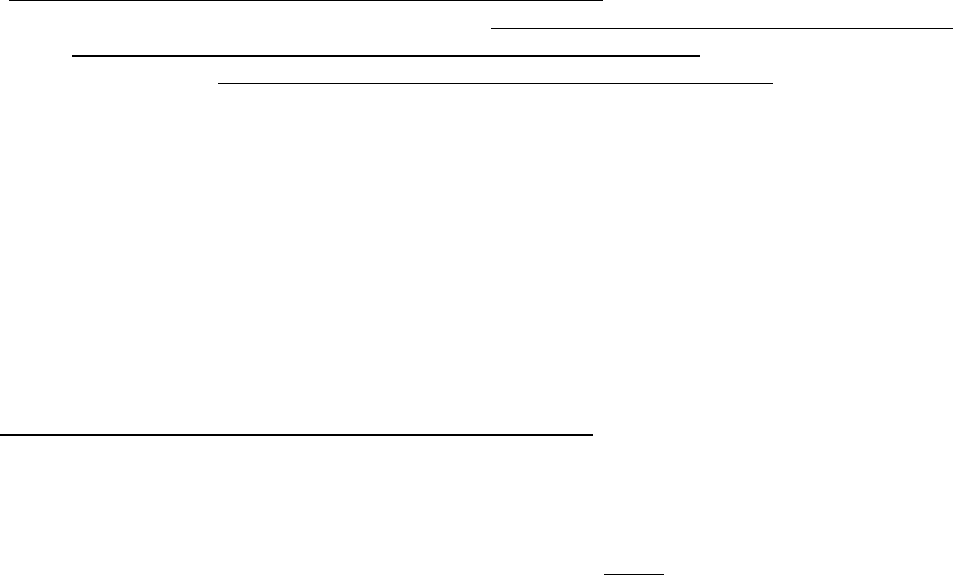
2023-2024
40
● Once signature obtained, form is sent to dean at campus of transfer.
Please note: Students must meet affiliating clinical facility requirements in order to be considered
for transfer.
Movement within a campus from the PN to the ASN program:
● Transfer from the PN to the ASN program, within the same admission cohort (PN and ASN
students taking the same first semester courses as a cohort group), may occur on a space
available basis only at the start of the second semester of nursing courses.
o PN students who fail a first semester nursing course are ineligible for crossover into the
ASN program.
● The Dean or Department/Program Chair will initiate contact with students who are eligible for
crossover to offer any available course seats. Information on crossover openings will not be
provided on general inquiry.
● Students must have applied to both the PN and ASN program initially to be eligible for
consideration for movement from the PN to the ASN program.
● Crossover students will be rank-ordered by their original admission selection decision score,
including tiebreaker points when applicable.
● Offers to move from PN to ASN are valid for campus of PN program enrollment only and are
non-transferrable to other campuses.
Movement within a campus from the ASN to the PN program:
● Students who are unsuccessful in their ASN program-specific courses may be eligible to transfer
from the ASN program to the PN program if home campus space is available.
● Eligibility for crossover must be approved by the campus Dean or Department/Program Chair.
● Transfer must occur in the next available semester of PN programming at the home campus.
● Maximum time frame for PN program completion will restart following admission to the PN
program.
● Students crossing over from the ASN to the PN program are required to complete NRSG 112,
113, 116, 117, and 128 in the PN program. All elements of the PN curriculum must be
completed.
● To ensure patient safety, student knowledge, and currency in practice, students who do not
complete any ASN program-specific course within the maximum time frame will not be allowed
to apply to the LPN to ASN Transition program after completion of their PN program for two (2)
years following discharge from the ASN program. Previously taken ASN courses (NRSG 126,
NRSG 127, NRSG 200, NRSG 201, NRSG 206, NRSG 207, NRSG 208) will need to be retaken
upon entry to the LPN to ASN Transition program to ensure maximum time frames are not
exceeded.
● Crossover students will be rank-ordered by their original admission selection decision score,
including tiebreaker points when applicable.
● Offers to move from ASN to PN are valid for campus of ASN program enrollment only and are
non-transferrable to other campuses.
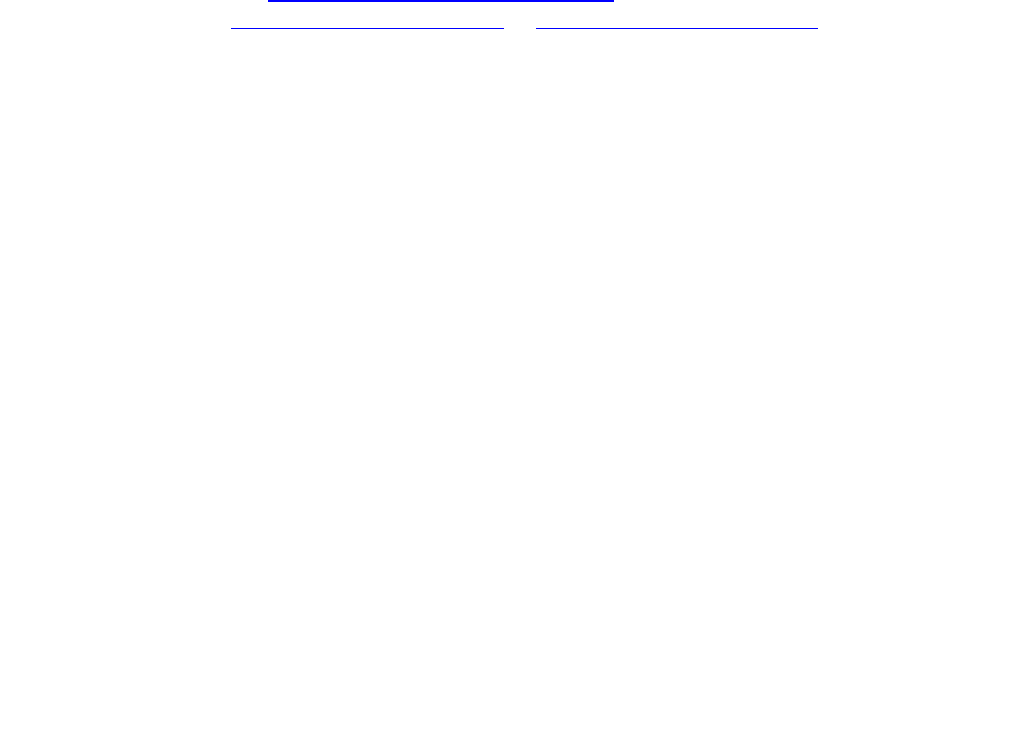
2023-2024
41
Eligibility to Take the Nurse Aide Competency Evaluation (CNA) or Medication Aide
(QMA) Final Examination
Ivy Tech Community College administers Nurse Aide Competency Evaluation and Medication Aide
Final Examination for qualified candidates in compliance with Indiana State Department of Health
regulations.
If you are currently enrolled in the nursing program and have successfully completed NRSG 100
Fundamentals of Nursing, NRSG 105 Medical Surgical Clinical 1, and NRSG 115 Nursing Lab with a
“C” or higher, you may be eligible for the CNA evaluation. Students currently enrolled in the nursing
program and have successfully completed NRSG 106 Pharmacology for Nursing with a “C” or higher
may be eligible to take QMA written competency evaluation after completion of 40 hours of supervised
medication practicum completed outside of the nursing program.
● For the CNA exam: NRSG 100 Fundamentals of Nursing, NRSG 105 Med Surg 1 Clinical and
NRSG 115 Nursing Lab
● For the QMA exam: NRSG 106 Pharmacology of Nursing, 40hr medication practicum
If you have any questions, or need more information, please contact Ivy Tech Community College at
(317) 917-5948 or email at [email protected]tech.edu, or visit the following websites for
additional information: http://www.ivytech.edu/cna/ or http://www.ivytech.edu/qma/
Global Studies Certificate
Global Learning Close to Home
Many U.S. businesses are expanding their operations into different areas of the world, so you are very
likely to interact with people from other countries and cultures on the job. A Global Learning Certificate
may be just what you are looking for!
Ivy Tech faculty members have worked together to redesign curriculum for some of Ivy Tech's business,
education, humanities, healthcare, technology and life science courses. These areas are some of Indiana's
biggest high-growth sectors of the economy and areas where you need to be able to think critically and
in terms of global perspectives and competencies. With the Global Learning Certificate you can apply
your knowledge in your own community, throughout the state of Indiana, and around the world!
This certificate will teach you about thriving in a global workforce and how to succeed in a diverse
society, which are skills valued in today's competitive job market. You will also have the opportunities
for exposure to different cultures through supplemental education experiences, such as studying abroad
or taking part in international activities on your campus. A Global Studies Certificate will increase your
knowledge and awareness of the world and will make you more marketable in finding a job.
Program Requirements for the Global Studies Certificate:
● Global Studies Orientation - meeting to discuss the benefits, and requirements of the certificate
● Global Studies Electives - 15 credits of global-module courses, many of which are already
within the two-year curriculum
● Global/International Resume - outlining global experiences and letters of reference

2023-2024
42
● Global Studies Capstone Experience - completion of an international project, research,
competition, community service, service learning, or travel study experiences
● Global Immersion - participation in global, cultural, or diversity related activities which may
include attending conferences/workshops, completion of the U.S. Institute of Peace
Certification, becoming a member of a professional or community group, and maybe even an
international travel experience. Talk to your advisor for more information about your options!
● For more information contact your campus Global Studies Coordinator or see the Global
Learning webpage: http://www.ivytech.edu/global-learning/
Graduation
The Indiana State Board of Nursing regulations require that all courses in the nursing curriculum must
be passed with a minimum grade of “C” (ISBN 848 IAC 1-2-21). In order to satisfy requirement of the
college, IVYT 1XX must be completed with a grade of “D” or higher. All other general education and
nursing requirements must be completed with a grade of “C” or higher. Please refer to Section 4 of the
College Academic Support and Operations Manual for more information regarding graduation
requirements at the following: ASOM 4.25.
Attendance Policies
Regular attendance is expected at scheduled class meetings or other activities assigned as part of a
course of instruction. Attendance records are kept by instructors. When personal circumstances make it
impossible to attend scheduled classes and activities, the College expects students to confer with
instructors in advance. Attendance expectations will be delineated in individual course syllabi.
Absences may be considered by instructors in awarding grades. Students who must interrupt their Ivy
Tech education to fulfill Reserve and National Guard annual tour requirements should present official
military orders to their instructors prior to departure for duty. Students are not excused from completion
of the course work and should make arrangements with their instructors to complete all work
College Attendance
Students are expected to attend class meetings, or other activities assigned as a part of a course of
instruction. Instructors are responsible for maintaining attendance records. A statement regarding
expectations for class attendance is included in Section 4 of the Academic Support and Operations
Manual (ASOM). Attendance expectations will be delineated in individual course syllabi.
Nursing Classroom and Lab Attendance Policy
Students are expected to attend all lecture and lab sessions. Attendance is necessary to maximize
student-learning opportunities. Students who are absent are responsible for missed material. Attendance
will be reported for the purpose of financial aid qualification. Specific expectations will be found in each
course syllabus.
Clinical Attendance Policy
Clinical courses require that the student be present to effectively evaluate successful achievement of
clinical course objectives and concepts, as clinical course objectives cannot be accomplished or
evaluated outside the clinical setting. There are no make-ups for missed clinical hours. Therefore,
regular clinical attendance is mandatory for successful clinical course and program completion.
● Attendance issues will be reflected in the clinical evaluation grade.

2023-2024
43
● Absences of 15% – 20% of the total clinical course contact hours will result in a mandatory 15%
reduction of the final course grade.
● Absence and/or cumulative tardiness in excess of 20% of the total clinical course contact hours
will result in a grade of “F” for the course.
● The student will have the option to withdraw from the clinical course and all other co-requisite
courses if absence occurs before the final withdrawal date for the course.
● Absence time will be rounded to the next 15-minute increment. Example: if tardy 4 minutes, 15
minutes of absence time will be recorded for the student, if absent 17 minutes, 30 minutes will be
recorded.
Tardiness: to clinical experiences jeopardizes continuity of patient care.
● Tardy is defined as not arriving at the designated clinical unit at the assigned start time.
● Tardiness will be counted as absence time accumulating toward the maximum 20% allowable.
● Students who are habitually tardy or leave early (three or more episodes) will receive a student
status warning and a mandatory reduction in the final clinical course grade of 10%.
● The maximum grade reduction for absence/tardy is 20%.
Exclusion from Clinicals: Clinical faculty have the authority to exclude a student from a clinical
experience. The following is a list of possible reasons for exclusion from clinicals and is not meant to be
all inclusive:
● tardiness greater than 30 minutes
● student’s lack of preparation for the clinical experience
● student illness
● impairment of the student to perform safely
● failure of a student to follow clinical affiliating agency and Nursing Program policies
If a student is excluded from the clinical day, the student will be counted absent for the total contact
hours assigned for the day. Students must remain at the clinical site until dismissed by the clinical
instructor. Leaving the clinical site early will be counted in the student’s total absence time. Students are
not allowed to leave and then return to clinical. Clinical hours will not be made up.
Students are responsible for tracking their own absences/tardiness times. Illness, family deaths,
accidents, emergencies etc. will not be treated as exceptions. Students are encouraged to conserve
absences to cover unforeseen occurrences.
Absence Times by Course
15% = 20% =
NRSG 105
14.5 hr
19.25 hr
NRSG 111
14.5 hr
19.25 hr
NRSG 113
14.5 hr
19.25 hr
NRSG 117
14.5 hr
19.25 hr
NRSG 123
14.5 hr
19.25 hr
NRSG 127
7.25 hr
9.6 hr
NRSG 201
28.8 hr
38.4 hr
2023-2024
44
NRSG 207
14.5 hr
19.25 hr
Statewide School of Nursing Dress Code For Clinical Courses
Note – Guidelines for clinical appearance are intended as a guide. Clinical agencies may employ
additional restrictions and requirements. Clinical facilities may deny student clinical participation. The
attendance policy of Ivy Tech Community College School of Nursing will apply. Faculty reserve the
right to send a student home from the clinical day for not adhering to the dress code, attendance policies
will apply.
● UNIFORM – The official school uniform for clinical experiences is purchased at the home
campus bookstore and must be worn at all times in the clinical setting. If skirts are worn, the
length must be at or below the knee. Pant legs must not drag along the floor. Uniforms should be
clean and wrinkle free. Undergarments must be worn and non-visible. Mental health dress code
requirements may vary per campus.
● SHOES – Shoes must be leather (leather-like or non-porous), clean and in good repair. Laces
must be laundered frequently. No open toed, moccasins, canvas, or backless shoes are allowed.
Facilities may limit the use of certain types of footwear. Socks and shoes must be matching in
color (black or white) as determined by the service area.
● HAIR – Should be clean and neat, secured away from the face to prevent it from falling in front
of shoulders during work activities. If hair is secured using bands, pins or barrettes the color
must be neutral in color, black, or consistent with the color of the hair. Students must be clean
shaven, or beards and mustaches must be clean and neatly trimmed. Head coverings must be
addressed with the Department Chair or designee.
● JEWELRY – A watch with a second hand may be required. No smart watches are allowed. One
plain ring may be worn. No necklaces are allowed. Only one stud earring (gold, silver, or
gemstone) per lobe is allowed. Multiple pierced earrings are not acceptable. Gauged ears or other
piercings require flesh or clear-colored plugs to be worn. No other jewelry is to be worn.
● COSMETICS – should be used in moderation and with discretion. Scented products (examples –
scented perfume and lotion) are NOT permitted in the clinical setting. Arrival to the clinical site
with strong odors will result in exclusion from the day’s clinical experience.
● PERSONAL HYGIENE – Daily bathing, frequent shampooing, oral hygiene, and use of
deodorants are essential practices. Presenting to the clinical site with an offensive body odor will
result in being sent home from the clinical site.
● FINGERNAILS – are to be kept well-manicured, clean, and short enough to avoid injury to
patients. A reasonable length can be measured by viewing the nail from the palm side of hand.
Natural nails should not be visible beyond fingertips when viewed from the palm. Nail polish is
not allowed. Acrylic/sculpted nails are not allowed.
● TATTOOS – Tattoos are permitted; however, tattoos that contain inappropriate language,
inappropriate symbols, or symbols or phrases that may be offensive (such as profanity, nudity, or
violence) to any segment of our associate or patient population are not permitted. In these

2023-2024
45
circumstances, the tattoos will be required to be covered. If tattoos are required to be covered,
supplies utilized must be provided by the student. Some tattoos may not be permitted by some
agencies or may be required to be covered.
● IDENTIFICATION – Student identification/facility ID will be determined by the campus
program based upon clinical affiliate requirements.
● TOBACCO PRODUCTS – Tobacco products of any kind are not allowed in or on the premises
of the clinical setting. This includes smokeless tobacco, e-cigarettes and vaping. Students may
not smell of any tobacco products. Arrival to the clinical site with tobacco odors will result in
exclusion from the day’s clinical experience.
● ALCOHOL - NO Consumption OF ALCOHOL IN ANY FORM WHILE IN UNIFORM.
● EQUIPMENT- All required equipment (such as bandage scissors, stethoscope, penlight) should
be brought to clinical every day.
Student Rights and Responsibilities
Code of Student Rights and Responsibilities
The student appeal process provides the College an appropriate mechanism to deal with violations of
student rules of conduct and conversely allows a student with a disagreement to appeal against a College
employee’s decision affecting that student. The College encourages students to resolve their complaints
informally. The informal appeal procedures are designed to accomplish a quick resolution that is most
expeditious and effective. Whenever the informal process does not result in a satisfactory resolution, the
College formal appeal procedure is also available.
In addition, the grade appeal process provides a mechanism for review when a student believes the final
grade he or she received in a course is inaccurate. As with the student appeal process, this procedure
encourages students to first attempt to resolve the appeal informally, beginning with the faculty member
who issued the course grade.
The reputation of the College and the College community depends in large part upon the behavior and
academic achievement of its students. Students enrolled at the College are expected to conduct
themselves in a mature, dignified, and honorable manner. While enrolled at the College, students are
subject to College jurisdiction. The College reserves the right to take disciplinary action against any
student whose conduct, in the opinion of College representatives, is not in the best interests of the
student, other students, or the College. Students who are disciplined should expect to find their sanctions
enforced at all Ivy Tech campuses. All students are expected to abide by the College rules of conduct.
Please refer to the Code of Student Rights and Responsibilities. Expectations for student behavior in
clinical settings are governed by clinical agency affiliation agreements, the Health Care Team Code of
Conduct, the American Nurses Association Code of Ethics, and the Indiana Nurse Practice Act.
Guidelines for Professional Conduct
Purpose
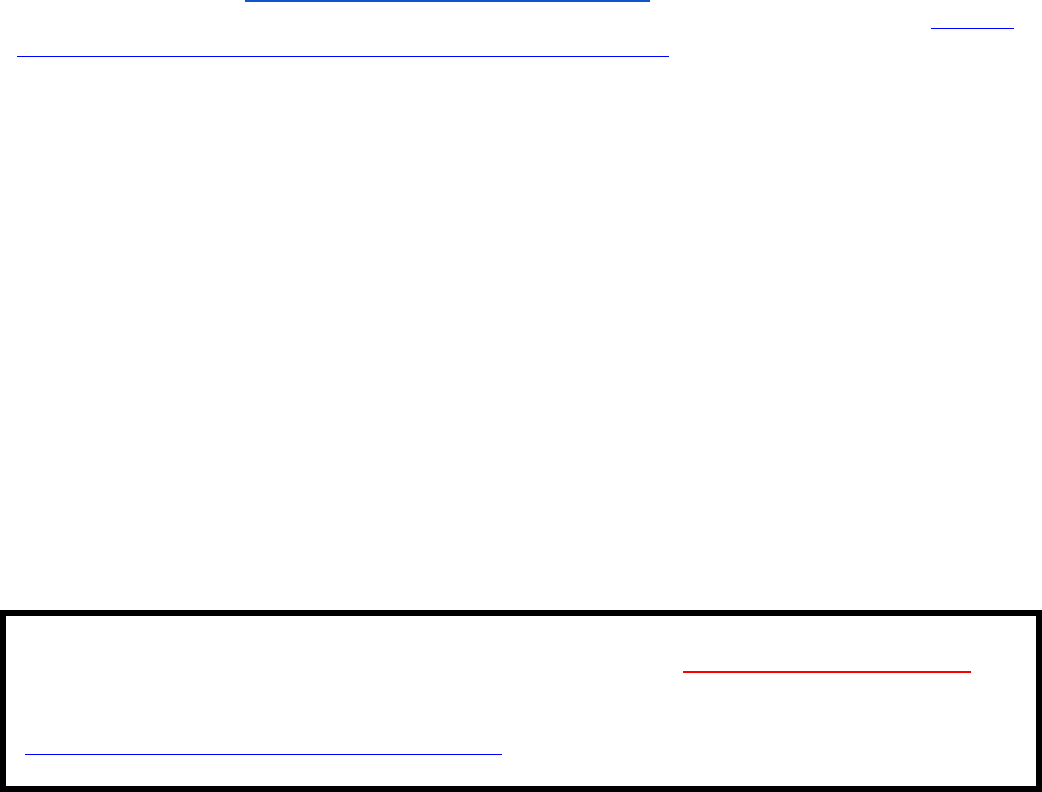
2023-2024
46
Safety and security is a top priority, especially in environments where direct, simulated, and/or indirect
patient care is provided. It is essential that nursing students recognize and comply with the many
guidelines for professional conduct (which include safety-specific guidelines) that govern behaviors and
decisions. Students must ensure that patients assigned to them receive appropriate attention and care in a
timely fashion. All nursing students are bound by the precepts of the Indiana Nurse Practice Act (IC 23-
25) and the rules of the Indiana State Board of Nursing (IAC 848). These principles are reinforced in the
Ivy Tech Code of Student Rights and Responsibilities, the Nursing Student Handbook, and the National
Student Nurse Association Code of Academic and Clinical Conduct. In addition, the Ivy Tech School of
Nursing curricula incorporate the Quality and Safety Education for Nurses (QSEN) competencies to
prepare future graduates with the knowledge, skills, and attitudes (KSA’s) necessary to continuously
improve the quality and safety of patient care.
The student must comply with the Code of Student Rights and Responsibilities as established by the
College, in addition to providing quality, safe, non-discriminatory, legal (scope of practice) and ethical
patient care, while demonstrating a high level of professional conduct. Clinical and/or related health care
agency affiliates have the right to prohibit students from participating in clinical experiences based on
unsafe patient care and unprofessional behavior, whether intentional or unintentional. Non-compliance
with College policies, professional nursing standards, clinical agency/affiliate policies and procedures,
professional guidelines and expectations during college-related nursing activities/events and simulation
activities, and the Guidelines for Professional Conduct listed below will be reported to the appropriate
individuals and subsequent disciplinary action may be taken. Issues of non-compliance may impact the
students’ ability to progress in the nursing program, lead to failure of a course, and/or result in dismissal
from the nursing program.
The Guidelines for Professional Conduct are divided into three main groups, which are outlined below.
General actions are listed at the end of each category. Please discuss any questions you may regarding
these and any other policies or guidelines with your nursing faculty.
Disclosure of confidential patient information, clinical facilities (including clinical locations), staff and
provider information, and any related information and experiences is STRICTLY PROHIBITED.
Information disclosed through email, any form of social media, verbally, or via texting may be
considered a HIPAA violation and carry penalties up to $1.5 million
(https://www.ama.assn.org/search?search=HIPAA). Please refer to the Social Networking Guidelines for
more information.
Group I
This Category Addresses Major Compliance Issues and Appropriate Measures for Patient Care in
an Educational Setting.
The following points are critical to the successful training and employment of health care professionals
and should be followed from the onset of training and referenced as models for behavior to be continued
throughout one’s career:
1. The student will adhere to state and federal confidentiality laws, including but not limited to
Health Insurance Portability and Accountability Act of 1996 (HIPAA) and clinical affiliate
confidentiality policies and procedures. The student will maintain confidentiality about all

2023-2024
47
aspects of the clinical experience: this includes confidentiality for all patients, fellow students,
clinical affiliate employees, physicians, and operations of the clinical affiliating agency. If a
situation arises requiring disclosure of information by law, the student must seek out guidance
from the clinical faculty member.
a) The student will only discuss confidential information in secure and appropriate locations
and with those individuals who have a need/right to know.
b) The student will not remove or photocopy any part of the patient or clinical records.
c) The student will not use any patient identifiers, as defined by HIPAA, in written
assignments.
d) The student will destroy any notes that were taken to provide care for the patient
according to the clinical affiliate policy and will not carry those notes outside of the
clinical.
e) The student is expected to follow guidelines in the School of Nursing Student Handbook
with regard to social media, cell phones, email or other electronic media.
f) The student will not discuss any patient, clinical experience with patients, or clinical site
on social media. Postings on social media sites are not considered private nor are they
ever truly deleted, regardless of privacy settings.
g) Students are prohibited from taking photos or videos of patients or their health record on
personal electronic devices, even if the patient or hospital staff gives you permission to
do so.
h) The student will not access HIPAA protected information for patients/families not
directly related to assigned patient care unless authorized by the clinical faculty,
preceptor, or clinical agency staff.
2. The student will ensure that any communication of patient information is performed in a timely,
accurate and truthful manner. Falsification of any component of the written, electronic, or oral
patient record is prohibited.
3. The student will exhibit behaviors that respect the dignity and rights of the patient regardless of
socioeconomic status, sexual orientation, race, religion, age, disability, marital status, gender,
cultural practices or beliefs, or nature of the health problem.
4. The student must provide for patient safety at all times, including, but not limited to adherence to
Standard Precaution Guidelines, safety rules and regulations, use of safety equipment and
following written protocol for all diagnostic procedures and policies in the clinical setting.
5. The student will not abandon or neglect patients requiring health care.
6. The student will not leave the assigned clinical unit during assigned clinical hours without
permission and without providing for safe patient hand-off.
7. The student will not perform any technique or procedure, including administration of medication,
for which they are not approved and/or are unprepared by their formal Ivy Tech Community
College School of Nursing education and experience. In some instances AND with faculty
and/or preceptor approval, students may be allowed to perform techniques or procedures with
other licensed personnel. All clinical practice policies are subject to campus and/or statewide
affiliation agreements.
2023-2024
48
8. The student will refrain from knowingly withholding action or information that creates
unnecessary risk to the patient, self, or others including facility staff, peers, or faculty.
Actions Related to Non-Compliance with Group I Expectations:
Because Group I expectations cannot be compromised, non-compliance is a serious matter. Students are
encouraged to address any related questions prior to the start of the term, or on any given day that a
question arises, by seeking counsel of faculty.
Actions:
● If non-compliance in any of the Group I areas is identified, the student will be required to meet
with the faculty member to discuss the non-compliance issue, a written/electronic status report
will be prepared, and further disciplinary action may be taken depending on the outcomes of the
investigation and in compliance with the clinical evaluation tool.
o Following a meeting with the nursing faculty, the student will be required to meet with
the Program/Department Chair and/or their designee to discuss the case.
o If after investigating the case/situation, a non-compliance with any Group I offenses is
identified and validated the Program/Department Chair and/or designee will review the
situation and determine any appropriate action(s) to be taken by the School of Nursing
and the College.
o Pending the outcome(s) and final recommendation(s), the student may be prohibited from
engaging in patient care or participating in clinical activities until approved to do so by
the Nursing Dean.
● If allowed to continue in the clinical course, the student may be required to complete remediation
as prescribed by the Program/Department Chair and/or designee prior to enrolling in any future
nursing clinical courses.
● Recommended actions, depending on severity of the infraction, may include:
o continued enrollment in the clinical course with no additional requirements;
o continued enrollment in the clinical course with additional remediation requirements
based on final outcomes and recommendations, which may also include an appropriate
reduction in the clinical grade as determined by the clinical evaluation tool;
o administrative withdrawal and failure of the clinical course; or,
o dismissal from the nursing program based on final recommendations from the
Program/Department Chair, Nursing Dean, Associate Vice President for Nursing
Education, Vice Chancellor for Academic Affairs, and/or the Vice Chancellor for Student
Affairs, and/or the campus Chancellor.
▪ In the event a student is dismissed from one nursing program, he/she may not
apply for admission to any other nursing program in their home campus or at any
other Ivy Tech Community College campus or location for a period determined
by the final outcomes and recommendations of college administrators and in
compliance with the Nursing Student Handbook.
● Further disciplinary and/or legal action may be recommended according to College policy.
● Students have the right to appeal any final decisions to the Nursing Dean.
Group II
This Category Relates to General Protocol and Guidelines:

2023-2024
49
1. The student is expected to follow program guidelines regarding the attendance policy and
notification of intended absence.
2. The student must comply with ALL rules, regulations, and policies of the occupational area
and/or clinical agency/affiliate.
3. The student must refrain from smoking or using other tobacco products (including vapor or e-
cigarettes) while in uniform, at clinical sites, or during school related events.
4. The student will not accept gratuities from patients; this includes both monetary and non-
monetary gifts.
Actions Related to Non-Compliance With Group II Expectations:
The above five items reflect appropriate responses as related to professional protocol and guidelines
that are expected while in the student role and once employed in a healthcare field.
Action:
● Any behavior not meeting the expectations listed above will result in a meeting with the nursing
faculty member and a written/electronic status report for the first incident which may impact the
clinical grade as determined by the clinical evaluation tool.
● The student will be asked to acknowledge receipt of the warning, and should take the initiative to
review what is expected and modify behavior accordingly.
● In the event that any subsequent infraction(s) occur(s) involving one of the Group II expectations
and/or a previous infraction of a Group I expectation, the student will be required to meet with
the faculty member to discuss the non-compliance issue and a second written/electronic status
report or other documentation will be prepared.
● Based on the number and severity of the non-compliance actions, the student may be required to
meet with the Program/Department Chair and/or designee. If following review of the case by the
Nursing Dean and/or designee, additional disciplinary actions are recommended:
o Program/Department Chair and/or designee will discuss the outcomes of the investigation
with the Nursing Dean, Vice Chancellor for Academic Affairs, and/or the Vice
Chancellor for Student Affairs regarding action(s) to be taken by the School of Nursing
and the College.
o Pending the outcome(s) and final recommendation(s), the student may be prohibited from
engaging in patient care or participating in clinical activities until approved to do so by
the Program/Department Chair and/or Nursing Dean.
o If allowed to continue in the clinical course, the student may be required to complete
remediation as prescribed by the Program/Department Chair, Nursing Dean and/or their
designee prior to enrolling in any future nursing clinical course.
● Recommended actions, depending on severity of the infraction, may include (but are not limited
to):
o continued enrollment in the clinical course with no additional requirements;
o continued enrollment in the clinical course with additional remediation requirements
based on final outcomes and recommendations, which may also include an appropriate
reduction in the clinical grade as determined by the clinical evaluation tool;
2023-2024
50
o administrative withdrawal and failure of the clinical course; or,
o dismissal from the nursing program based on recommendations from the
Program/Department Chair, Nursing Dean, Associate Vice President for Nursing
Education, Vice Chancellor for Academic Affairs, and/or the Vice Chancellor for Student
Affairs, and/or the campus Chancellor.
▪ In the event a student is dismissed from one nursing program, he/she may not
apply for admission to any other nursing program in their home campus or at any
other Ivy Tech Community College campus or location for a period determined
by the final outcomes and recommendations of college administrators and in
compliance with the Nursing Student Handbook.
● Further disciplinary and/or legal action may be recommended according to College policy.
● Students have the right to appeal to the Nursing Dean
Group III
This Category Is Specific To Medication Administration:
Note: Administration of medication without faculty and/or preceptor approval is addressed in
Group I and will be subject to the ACTIONS described for that Group.
1. A potential medication error that is prevented by the clinical faculty and/or preceptor, designated
staff nurse, or the electronic medication administration system, will still be considered a
medication error on the part of the student.
2. The student will ensure that medications are administered on time and in accordance with
patient’s plan of care.
3. The student will follow correct medication procedures as summarized in the “Six Rights of
Medication Administration” listed below:
SIX RIGHTS
Right Patient
Right Medication
Right Dose
Right Time/Date
Right Route
Right Documentation
4. The student will be prepared to verbalize knowledge of medication uses, side effects, adverse
reactions, interactions with other patient medications, and the relationship to the patient and one
or more diagnosis.
5. The student will calculate proper medication dosage or safe dosage in the clinical learning
environments.

2023-2024
51
6. The student will report any medication error to their Ivy Tech clinical faculty member and/or
preceptor, and clinical agency staff nurse immediately in order that appropriate action may be
taken to care for the involved patient and so that appropriate clinical agency policies are
followed.
Actions Related to Non-Compliance With Group III Expectations:
Medications errors are a leading cause of patient injury and must be taken seriously. Consistent with
current practice guidelines, the School of Nursing supports the initial stance of conducting a root-cause
analysis to help prevent future errors. In the event of an error, the student will be expected to meet with
the faculty member to determine strategies to prevent further medication incidents. Repeated errors
constitute a failure to demonstrate competence and safety in this important component of patient care
and will be subject to actions that will impact the student’s status in the program.
Action:
● Every medication error will be documented on a written/electronic student status report. The
student is expected to participate as requested in any root-cause analysis to identify reasons for
the medication error and strategies to prevent further errors.
● The student will be expected to meet with the faculty and/or preceptor and acknowledge receipt
of any feedback provided, review appropriate procedures, address any related questions with the
faculty and/or preceptor, and initiate precautionary measures to prevent the error from
reoccurring.
● In the event that there are three (3) or more documented student status forms for medication-
related errors, occurring at any point throughout the student’s enrollment in the program, a
written/electronic status report will be prepared by the faculty member and the student will be
required to meet with the Program/Department Chair and/or designee.
● In cases of medication-related errors in which repeated errors or errors significant enough to
endanger patient lives occurs or affect patient safety occur, the student will be required to meet
with the Program/Department Chair and/or designee. If following review of the case by the
Nursing Dean and/or designee, additional disciplinary actions are recommended:
o The Nursing Dean and/or designee will discuss the outcomes of the investigation with the
Vice Chancellor for Academic Affairs, and/or the Vice Chancellor for Student Affairs
regarding action(s) to be taken by the School of Nursing and the College.
o Pending the outcome(s) and final recommendation(s), the student may be prohibited from
engaging in patient care or participating in clinical activities until approved to do so by
the Program/Department Chair and/or Nursing Dean.
o If allowed to continue in the clinical course, the student may be required to complete
remediation as prescribed by the Program/Department Chair and/or Nursing Dean and/or
their designee prior to enrolling in any future nursing clinical course.
● Recommended actions, depending on severity of the infraction, may include (but are not limited
to):
o continued enrollment in the clinical course with no additional requirements;
o continued enrollment in the clinical course with additional remediation requirements
based on final outcomes and recommendations, which may also include an appropriate
reduction in the clinical grade as determined by the clinical evaluation tool;
o administrative withdrawal and failure of the clinical course; or,
o dismissal from the nursing program based on recommendations from the
Program/Department Chair, Nursing Dean, Associate Vice President for Nursing
2023-2024
52
Education, Vice Chancellor for Academic Affairs, and/or the Vice Chancellor for Student
Affairs, and/or the campus Chancellor.
▪ In the event a student is dismissed from one nursing program, he/she may not
apply for admission to any other nursing program in their home campus or at any
other Ivy Tech Community College campus or location for a period determined
by the final outcomes and recommendations of college administrators and in
compliance with the Nursing Student Handbook.
● Further disciplinary and/or legal action may be recommended according to College policy.
● Students have the right to appeal any final decisions to the Nursing Dean.
Health Team Code of Conduct
Students are expected to read, understand, and abide by the Health Team Code of Conduct at all times.
As a member of this group/team, I agree to work to make the following a part of my daily routine.
1. To keep patient and caregiver safety and welfare as the primary concern in all interactions, including:
● Being vigilant and monitoring for care practices that increase risks of errors.
● Remembering that no one is perfect and that all humans are vulnerable to making mistakes.
● Taking responsibility for being “a safety net” when helping co-workers and fellow students,
anticipating what they may need, and pitching in to prevent mistakes (e.g., “I think that the glove
is contaminated; let me get you a new one.” Or “Here’s a new needle”).
● Making it a team principle that “If we witness unethical or unsafe practices, it’s our responsibility
to address it” (first directly with the person, then through policies and procedures if needed).
2. To promote empowered partnerships by:
● Valuing your time and the contribution you make to the team/group.
● Accepting the diversity in our styles—recognizing that you know yourself best and should be
allowed to choose your own approaches.
● Promising to be honest, and treating others with respect and courtesy.
● Promoting independence and mutual growth by applying the Platinum Rule (Treat others as they
want to be treated, not assuming they have the same desires you do).
● Listening openly to new ideas and other perspectives.
● Attempting to walk a mile in their shoes.
● Committing to resolving conflict without resorting to using power.
● Taking responsibility for my own emotional well-being (if I feel bad about something, it’s my
responsibility to do something about it).
● Ensuring that we both:
○ Stay focused on our joint purpose and responsibilities for achieving it.
○ Make decisions together as much as possible.
○ Realize that we’re accountable for the outcomes (consequences) of our actions.
○ Have the right to say no, so long as it doesn’t mean neglecting responsibilities.
3. To foster open communication and a positive work environment by:
● Addressing specific issues and behaviors.
● Acknowledging/apologizing if I’ve caused inconvenience or made a mistake.
● Doing my “homework” before drawing conclusions.
● Maintaining confidentiality when I’m used as a sounding board.
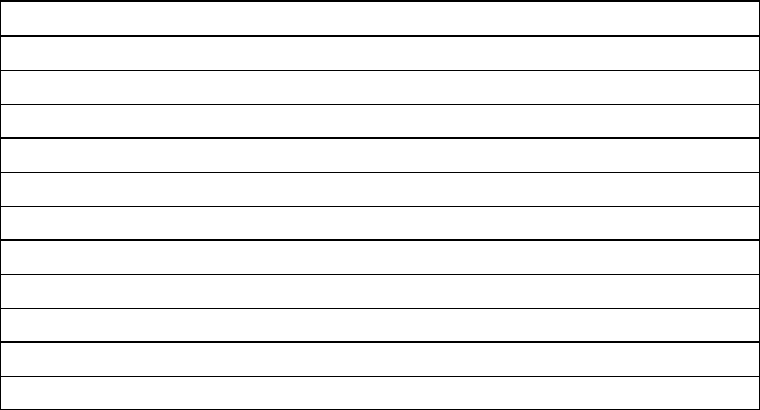
2023-2024
53
● Using only one person as my sounding board before I decide to either give feedback or drop the
issue.
● Validating any rumors I hear.
● Redirecting co-workers/fellow students who are talking about someone to speak directly to the
person.
● Addressing unsafe or unethical behavior directly and according to policies.
● Offering feedback as indicated:
○ Within 72 hours, using “I’ statements (“I feel…” rather than “You make me feel…”).
○ Describing behaviors and giving specific examples.
○ Limiting discussion to the event at hand and not discussing past history and telling you
honestly and openly the impact of the behavior.
4. To be approachable and open to feedback by:
● Taking responsibility for my actions and words.
● Taking time to reflect on what was said, rather than blaming, defending, or rejecting.
● Asking for clarification of the perceived behaviors.
● Remembering that there’s always a little bit of truth in every criticism.
● Staying focused on what I can learn from the situation.
Examples of Uncivil Behaviors (Clark, C. M. (2010))
Rude comments, put-downs, slurs, and rumors (in person and in cyberspace)
Cell phone, texting, and computer misuse
Interruptions and side conversations
Late arrivals and leaving early
Sleeping in class/clinical
Aggressive, intimidating, and bullying behaviors
Anger or excuses for poor behavior
Cheating and other forms of academic dishonesty
Displaying a sense of entitlement
Blaming others for shortcomings
Shunning or marginalizing others
(Alfaro-LeFever, R., 2013)
Academic Honesty Statement
The College is committed to academic integrity in all its practices. The faculty value intellectual
integrity and a high standard of academic conduct. Activities that violate academic integrity undermine
the quality and diminish the value of educational achievement.
Cheating on papers, tests or other academic works is a violation of College rules. No student shall
engage in behavior that, in the judgment of the instructor of the class, may be construed as cheating.
This may include, but is not limited to, plagiarism or other forms of academic dishonesty such as the
acquisition without permission of tests or other academic materials and/or distribution of these materials
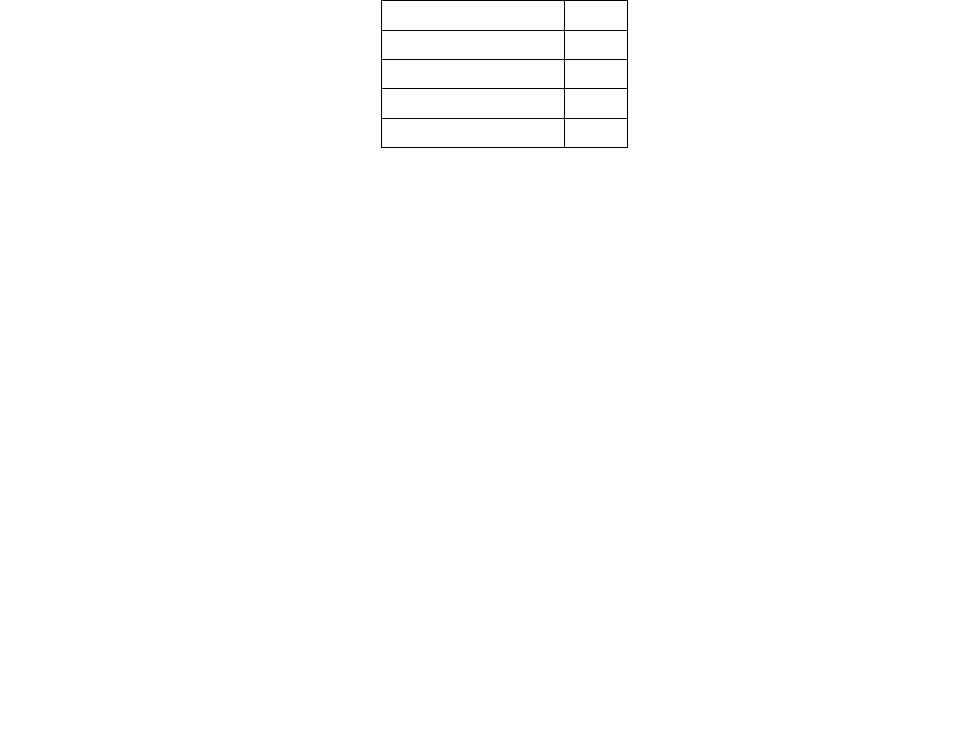
2023-2024
54
and other academic work. This includes students who aid and abet as well as those who attempt such
behavior.
Grading Practices
Students are required to pass all nursing and required general education course with a grade of “C” or
higher. No grades (including final course grades) will be rounded. The nursing program grading scale
is as follows:
92.00-100
A
83.00-91.99
B
75.00-82.99
C
70.00-74.99
D
0.00-69.99
F
Evaluation of Student Learning
Nursing ATI Assessment Policy
Ivy Tech School of Nursing Programs utilize the Assessment Technologies Institute, Inc. (ATI)
Comprehensive Assessment and Review Program for nursing students. This product was designed to
increase student pass rates on the nursing licensing exam and lower program attrition. Used as a
comprehensive program, the tools can help students prepare more efficiently, as well as increase
confidence and familiarity with content.
All students are required to purchase ATI’s Basic Package. Students will automatically be assessed the
fee for the Basic Package upon admission to the nursing program. Students should not purchase
used Basic Package materials, as these materials do not include access to required program assessments.
The ATI content assessments are comprehensive knowledge-based assessments that are administered
each semester to the students enrolled in the nursing programs. The purpose of these assessments is to
provide the students with an understanding of their knowledge strengths and weaknesses in relation to
particular content areas within the curriculum. Students are expected to fully engage in the resources
made available by ATI including review modules, dynamic quizzing, assessments, and resources to
support programmatic and NCLEX success.
Nurse Logic Assignments
● Nurse Logic is a requirement for the nursing programs. Students must complete individual
modules and corresponding tests. Evidence of module and test completion will be provided to
instructors.
● Students in NRSG 100 and NRSG 123/125 must log on and complete the following modules and
beginning student tests:
○ Knowledge and Clinical Judgment
○ Nursing Concepts
○ Priority Setting Frameworks
○ Testing and Remediation
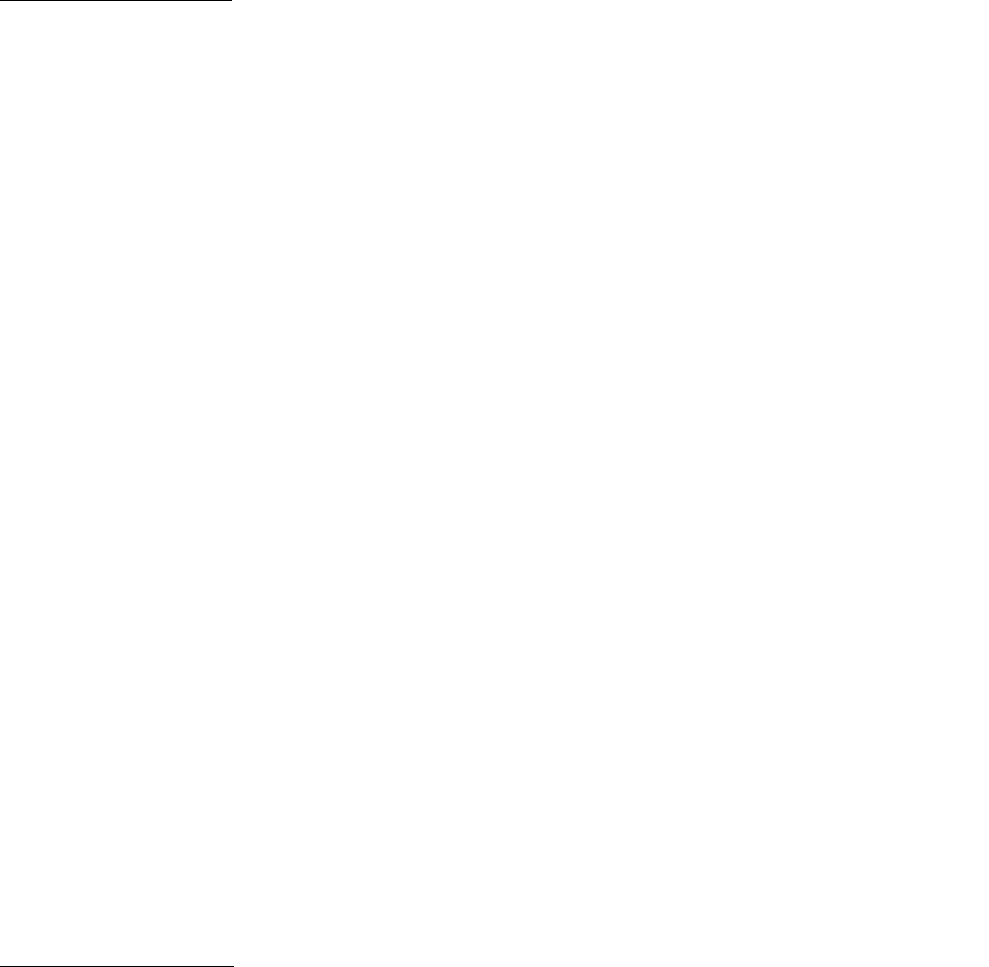
2023-2024
55
● Students in NRSG 128 and NRSG 208 must log on and complete the following modules and
advanced student tests:
○ Knowledge and Clinical judgment
○ Nursing Concepts
○ Priority Setting Frameworks
○ Testing and Remediation
Proctored Assessment Requirements and Scoring
Preparation and Scoring
● Students are required to take proctored assessments as outlined in this document, which includes
all students repeating a course. Each required ATI proctored assessment will be weighted as 5%
of the final course grade. Courses having multiple ATI assessments (NRSG 112, NRSG 116,
NRSG 123, NRSG 125, and NRSG 206) will have a total of 10% of the course grade reflected
from ATI assessments.
● Proctored assessments will be administered in NRSG 102 Medical Surgical Nursing I and NRSG
106 Pharmacology, however no points associated with the proctored assessment will be
calculated into the final grade.
● Proctored assessments are recommended to be administered after at least 60% of the course
content has been covered.
● Students will be required to complete practice assessment version A and remediate their results
as outlined in the course syllabus prior to completing the proctored assessment. In addition,
potential assignments to be completed prior to completing the proctored assessment may include
but are not limited to the following:
o Completion of Learning System quiz and final quiz relevant to content areas in proctored
assessment
o Completion of Focused Review for practice assessment A
o Completion of practice assessment version B
o Completion of Focused Review for practice assessment B
o Completion of questions in Dynamic Quizzing relevant to content areas in proctored
assessment
o Completion of Active Learning Templates relevant to student’s individualized Topics to
Review of practice assessment A/B
● A student who does not complete the practice assessment version A, remediation, and/or other
preparation assignments per the course syllabus will be permitted to take the proctored
assessment but will receive a zero for the ATI proctored assessment portion of the course grade.
For proctored assessments in NRSG 102 Medical Surgical I Nursing and NRSG 106
Pharmacology in Nursing, please refer to the course syllabus.
● Student performance on each proctored assessment will be weighted in the final course grade as
follows:
o Level 3: 5%
o Level 2: 3%
o Level 1: 1%
o Below level 1: 0%
Mandatory Remediation
● Any student whose proctored assessment proficiency level is below Level 3 will be assigned to
complete remediation.
2023-2024
56
● Remediation expectations will be defined in the course syllabus. Potential remediation
assignments after completion of a proctored assessment may include but are not limited to the
following:
o Completion of Focused Review of proctored assessment
o Completion of questions in Dynamic Quizzing relevant to student’s individualized Topics
to Review
o Completion of Active Learning Templates relevant to the student’s individualized Topics
to Review
o Completion of Proctored Assessment Retake 1
● Students who earn a Level 2 and complete remediation by the date listed in the course
syllabus will earn 2% toward the final course grade.
● Students who earn Level 1 or Below Level 1 and complete remediation by the date listed in the
course syllabus will earn 2% toward the final course grade.
● For proctored assessments administered in NRSG 102 Medical Surgical Nursing I and NRSG
106 Pharmacology in Nursing, the remediation plan and scoring for remediation is determined by
the campus and will be outlined in the course syllabus.
● Students who complete remediation after the date listed in the course syllabus will NOT be
eligible for remediation points.
● Student performance on each proctored assessment AND completion of remediation will be
reflected in the final course grade as follows:
o Level 3: 5%
o Level 2: 3% + 2% = 5%
o Level 1: 1% + 2% = 3%
o Below level 1: 0% + 2% = 2%
ATI Live Review Policy
Students enrolled in NRSG 128 Practice Issues for Practical Nursing or NRSG 208 Practice Issues for
the Associate Degree Nurse will complete the ATI Live Review. Students who attend all days of the
ATI Live Review are offered guaranteed support from ATI. A student who does not pass NCLEX on the
first attempt after attending an ATI Live Review, is eligible for enrollment in ATI Virtual Review
(VATI) at no cost. Failure to attend the ATI Live Review in its entirety voids the eligibility for no-cost
VATI enrollment. (Exception: cohorts of less than 10 students may be directed to take the ATI Virtual
Review).
ATI Comprehensive Predictor
● Students enrolled in NRSG 128 Practice Issues for Practical Nursing or NRSG 208 Practice
Issues for the Associate Degree Nurse will prepare for and complete the Comprehensive
Predictor proctored assessment; if performance is below expectations as defined in the course
syllabus, students will be assigned to complete remediation.
● The Comprehensive Predictor is an assessment of a student’s mastery of nursing content and
readiness to take the NCLEX. Upon completion, the student will have access to a score report
that includes their adjusted individual total score, predicted probability of passing NCLEX on the
first attempt, and topics to review per NCLEX Client Need categories.
● The course instructor will define assignments to be completed before the proctored assessment,
remediation expectations, and the impact of performance on the course grade in the syllabus.
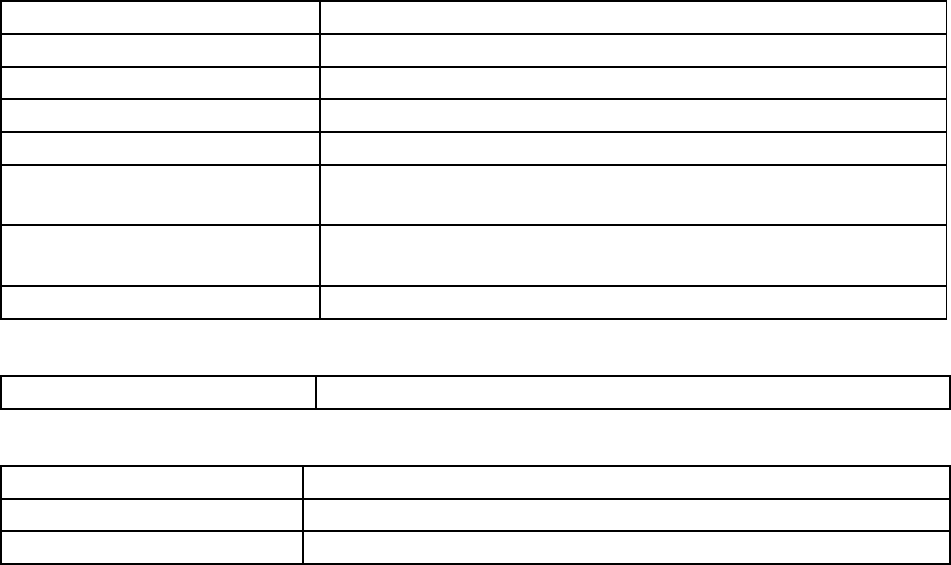
2023-2024
57
● Potential assignments to be completed before the Comprehensive Predictor Proctored
Assessment may include but are not limited to the following:
○ Completion of the Learning System Comprehensive Final
○ Completion of practice assessment A
○ Completion of the Focused Review for practice assessment A
○ Completion of practice assessment B
○ Completion of the Focused Review for practice assessment B
○ Completion of PN Management / RN Leadership practice assessments and/or proctored
assessment if not previously completed
● Potential remediation assignments after the Comprehensive Predictor Proctored Assessment may
include but are not limited to the following:
○ Completion of the Focused Review for the proctored assessment
○ Completion of questions in Dynamic Quizzing relevant to the student’s individualized
Topics to Review
○ Completion of questions in Board Vitals relevant to the student’s individualized Topics to
Review
○ Completion of Active Learning Templates relevant to the student’s individualized Topics
to Review
○ Completion of Proctored Assessment Comprehensive Predictor Retake 1
○ Development of an individualized NCLEX preparation plan
ATI Assessment Plan
The Nursing ATI assessment plan is as follows:
Practical Nursing
ATI Assessment
Administered During
PN Fundamentals
NRSG 102: Medical Surgical Nursing I
PN Pharmacology
NRSG 106: Pharmacology for Nursing
PN Maternal Newborn
NRSG 112: Maternal Child Nursing
PN Nursing Care of Children
NRSG 112: Maternal Child Nursing
PN Adult Medical-Surgical
NRSG 116: Geriatric/Complex MS Nursing III for the
Practical Nurse
PN Mental Health
NRSG 116: Geriatric/Complex MS Nursing III for the
Practical Nurse
PN Comprehensive Predictor
NRSG 128: Practice Issues for Practical Nursing
The following non-proctored assessments are recommended as course assignments:
PN Management
NRSG 128: Practice Issues for Practical Nursing
Traditional ASN
ATI Assessment
Administered During
RN Fundamentals
NRSG 102: Medical Surgical Nursing I
RN Pharmacology
NRSG 106: Pharmacology for Nursing
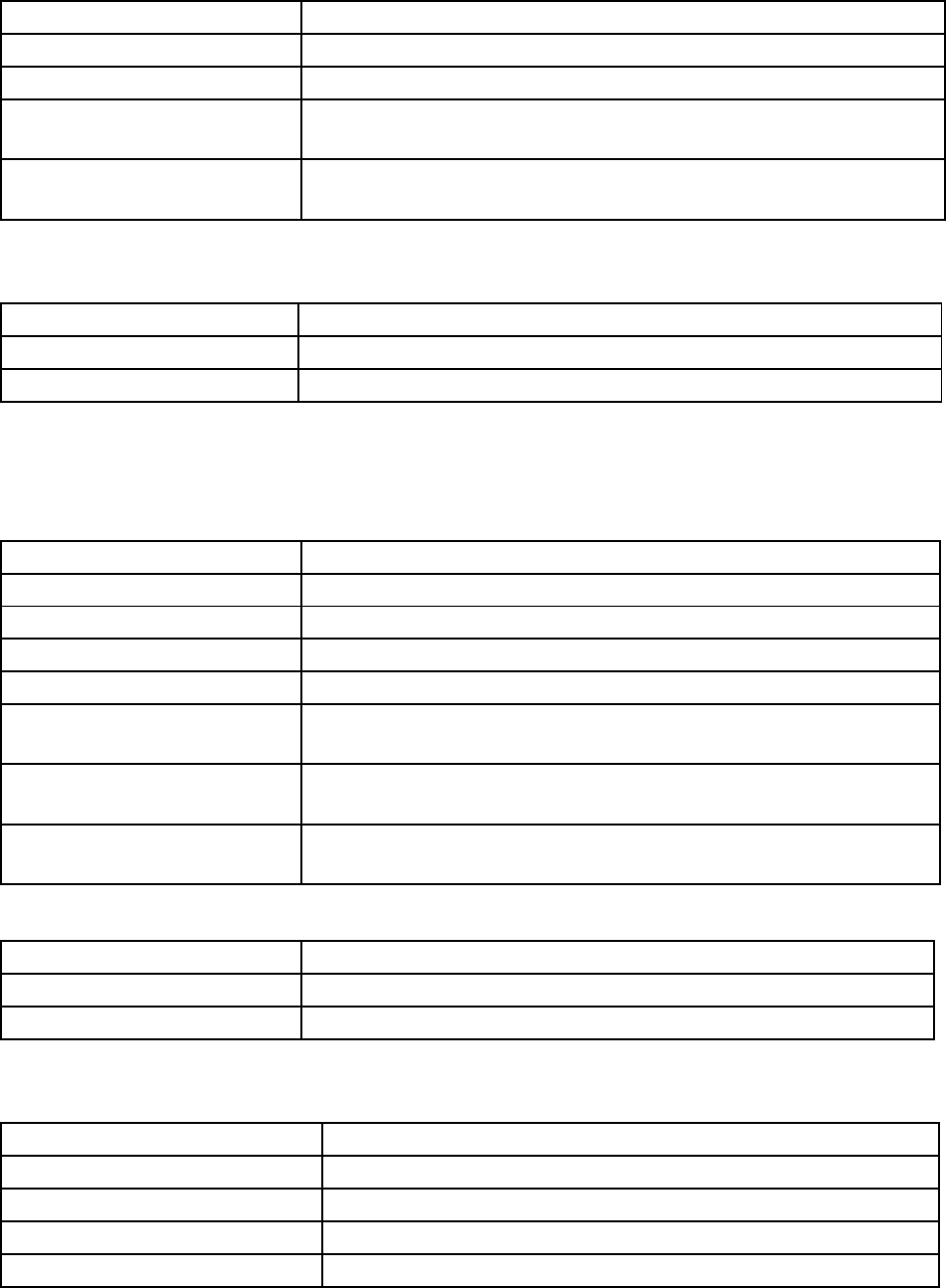
2023-2024
58
RN Mental Health
NRSG 126: Mental Health Nursing
RN Medical-Surgical
NRSG 200: Complex Medical Surgical Nursing for the ASN
RN Maternal Newborn
NRSG 206: Nursing Care Childbearing & Childrearing Families
RN Nursing Care of
Children
NRSG 206: Nursing Care Childbearing & Childrearing Families
RN Comprehensive
Predictor
NRSG 208: Practice Issues for Associate Degree Nursing
The following non-proctored assessments are recommended as course assignments:
RN Nutrition*
NRSG 110: Medical Surgical Nursing II
RN Community Health*
NRSG 100: Fundamentals of Nursing
RN Leadership
NRSG 208: Practice Issues for Associate Degree Nursing
*Assessments are available for ASN students only, may be administered in a different course if PN &
ASN students are cohorted together in NRSG 100 Fundamentals of Nursing and/or NRSG 110 Medical
Surgical Nursing II.
LPN to ASN Transition
ATI Assessment
Administered During
RN Pharmacology
NRSG 125: LPN Transition to ASN Lab
RN Fundamentals
NRSG 125: LPN Transition to ASN Lab
RN Mental Health
NRSG 126: Mental Health Nursing
RN Medical-Surgical
NRSG 200: Complex Medical Surgical Nursing for the ASN
RN Maternal Newborn
NRSG 206: Nursing Care Childbearing & Childrearing
Families
RN Nursing Care of
Children
NRSG 206: Nursing Care Childbearing & Childrearing
Families
RN Comprehensive
Predictor
NRSG 208: Practice Issues for Associate Degree Nursing
The following assessments are recommended as course assignments:
RN Community Health
*NRSG 125: LPN Transition to ASN Lab
RN Nutrition
NRSG 125: LPN Transition to ASN Lab
RN Leadership
NRSG 208: Practice Issues for Associate Degree Nursing
Paramedic to ASN Transition, Medical Assistant to ASN Transition & Military Medic to ASN
Transition
ATI Assessment
Administered During
RN Pharmacology
NRSG 106: Pharmacology for Nursing
RN Fundamentals
NRSG 123: Introduction to ASN Transition
RN Mental Health
NRSG 126: Mental Health Nursing
RN Medical-Surgical
NRSG 200: Complex Medical Surgical Nursing for the ASN

2023-2024
59
RN Maternal Newborn
NRSG 206: Nursing Care Childbearing & Childrearing
Families
RN Nursing Care of Children
NRSG 206: Nursing Care Childbearing & Childrearing
Families
RN Comprehensive Predictor
NRSG 208: Practice Issues for Associate Degree Nursing
The following non-proctored assessments are recommended as course assignments:
RN Leadership
NRSG 208: Practice Issues for Associate Degree Nursing
RN Community Health
NRSG 123: Paramedic to ASN Transition Lab/Clinical
RN Nutrition
NRSG 123: Paramedic to ASN Transition Lab/Clinical
Dosage Calculation Policy
Calculating medication dosages and intravenous rates accurately are necessary competencies to ensure
patient safety and are required skills in the Ivy Tech Community College (Ivy Tech) Practical Nursing
and Associate of Science in Nursing Programs.
● Dosage calculations will be incorporated into each exam and integrated in lab and clinical
courses.
○ Resources include addition of ATI modules, templates, and other items related to
pharmacology and dosage calculations.
● Students should be demonstrated the various methods of dosage calculations; students may
choose their preferred method (i.e. ratio/proportion, dimensional analysis, formulas, etc.).
Dosage Calculation Test Items will include:
● Metric and household measuring systems and other systems as necessary
● Decimals and rounding
● Equivalents/conversions among the measuring systems
● How to read drug labels
● Dosage calculations based on body weight (mg/kg)
● Reconstitution of powdered medications
● IV rates and times
● IV drug titration calculations
● Story problems
● Intake and output (I & O) – simple (basic) to complex problems
● Medication bolus calculations
● Loading vs. maintenance dose
Course Examinations
● All nursing course examinations will contain dosage calculation problems.
● Dosage Calculation rules may be noted on 1
st
semester exams only as determined by course
faculty.
● Students are allowed to use non-programmable calculators for the dosage calculations test items.
● Question type: Correct answers will be consistent with actual dosage recommendations for the
specific drug.
2023-2024
60
○ Labels: Questions may be accompanied by a drug label.
● Dosage Calculations examination content will be appropriate to the semester
● Students will be responsible for each previous semester content.
○ First Semester Questions:
■ Basic conversions
■ Intravenous rate calculations
■ Simple I & O – catheters, tubes and drains
■ Reconstitution
■ Reading labels (basic)
■ Solving for one unknown
○ Second Semester Questions:
■ Complex I&O - multiple IV fluids
■ Solving for more than one unknown
■ Dosage based on body weight (i.e. mg/kg)
■ Reading labels (more complex, discriminating between components included on
the label)
■ Dilutions
○ Third/Fourth Semester Questions:
■ Bolus problems
■ Complex conversions (i.e. mcg/kg/min, Units/kg/hour)
■ Titrations
■ Loading vs. Maintenance doses
Dosage Calculations Instructions
Although practices at facilities vary, for the purpose of this exam the following rules will apply:
● Rounding:
○ For adult patients the answer will be rounded to the nearest tenth. For testing purposes,
assume unless stated otherwise the patient/client/resident is an adult. (NOTE: this is
consistent with NCLEX Test Plan).
○ For pediatric patients the answer will be rounded to the nearest hundredth.
○ Do NOT do any rounding until the end of the problem.
● IV calculations: (rates: mL/h and gtt/min)
○ Although some IV pumps do allow calibration to the tenth or hundredth, for the purpose
of exams, IV rate calculations will be rounded to nearest whole number.
● Equivalents:
○ Knowledge of equivalents is needed for calculation.
● Dosage calculation safety considerations:
○ To promote safety, a zero must be placed to the left of the decimal point in answers that
are less than one. No zero is allowed to the right of the decimal point in answers that are
whole numbers. Responses that do not follow these safety consideration will be marked
incorrect.
■ Examples: .5 mg must be answered as 0.5 mg.

2023-2024
61
5.0 mg must be answered as 5 mg.
● Labeling:
o All answers must be labeled correctly. No label or an incorrect label makes the answer
incorrect. Computerized testing may provide label.
U.S. Immigration and Nationality Act
The United States Immigration and Nationality Act identifies that all candidates applying to take the
NCLEX exam are required to be a U.S. citizen or be identified as a “Qualified Alien.” The U.S.
Immigration and Nationality Act is found in the Federal Regulation 8 of the U.S.C.; Section 1641. In
response to this federal legislation, Senate Bill SB419 became law in 2018 and provides for potential
licensing of DACA and F1 in the state of Indiana. Students should seek their own legal counsel for
concerns regarding these matters.
U.S Social Security Number Requirements by ISBN
All candidates taking the NCLEX exam are required to have a U.S. social security number per Indiana
Code. This is a mandatory of the ISBN. Applications to test cannot be processed without it. Per the
Indiana Code:
NCLEX-RN Candidates:
Notice - In compliance with Indiana Code 4-1-6, this agency is notifying you that you must provide the
requested information or your application will not be processed. You have the right to challenge, correct,
or explain information maintained by this agency. The information you provide will become public
record. Your examination scores and grade transcripts are confidential except in circumstances where
their release is required by law, in which case you will be notified. Your social security number is being
requested by this state agency in accordance with Indiana Code 4-1-8-1. Disclosure is mandatory, and
this record cannot be processed without it.
NCLEX-PN Candidates:
Notice - In compliance with Indiana Code 4-1-6, this agency is notifying you that you must provide the
requested information or your application will not be processed. You have the right to challenge, correct,
or explain information maintained by this agency. The information you provide will become public
record. Your examination scores and grade transcripts are confidential except in circumstances where
their release is required by law, in which case you will be notified. Your social security number is being
requested by this state agency in accordance with Indiana Code 4-1-8-1. Disclosure is mandatory, and
this record cannot be processed without it.
Indiana State Board of Nursing Licensure Eligibility
Successful completion of the nursing program, as described in the Admission, Progression, and
Graduation policy, provides eligibility for a student to apply to a state board of nursing to take the
licensure examination. The Indiana State Board of Nursing (ISBN) application for licensure includes
questions about criminal history, substance abuse problems, malpractice judgments, and disciplinary
action on previous licenses and certifications.

2023-2024
62
Students are to review the questions asked by the Indiana State Board of Nursing (ISBN) in the
application to take the examination. Similar questions are found on other state board of nursing
applications.
Students please note that ISBN information and questions on the licensing application are subject to
change without notice.
Student Requirements Associated with Clinical Affiliation Agreements
Student clinical experiences are arranged by program faculty and affiliation agreements obtained with
clinical affiliating agencies. These agreements outline the responsibilities and privileges of both parties.
In an off-campus setting, it is the policy of the College that faculty and students shall conform to all
policies of the affiliating agency, including drug screening, criminal background checks, physical
examination, immunization records, tuberculosis screening, and certification in basic life support.
COVID-19 Testing
Some clinical affiliates require COVID-19 testing. The college does not provide COVID-19 testing. If
testing is required by a clinical affiliate, the testing is at the expense of the student.
Criminal Background Checks – Fingerprinting
CastleBranch conducts Indiana Statewide Criminal searches using name and date of birth identifiers
through the Indiana State Police Limited Criminal History check system. Some searches result in a
response that the applicant must complete a fingerprint submission. This occurs when there are multiple
individuals that have the same identifying information and the State Police are unable to determine
which records match the individual in question. In order to ensure accuracy, the State Police will
respond to CastleBranch that the applicant must complete a fingerprint submission in order to correctly
identify the applicant and provide a response. When fingerprints are required by the State Police,
CastleBranch will send you an alert via the online
order system.
Drug Screening – CBD oil
Drug screen results will not be overturned based on claims of use of CBD containing products.
Drug Screening – Non-negative results
Non-negative results (includes positive, dilute, dilute positive, and dilute negative specimens) will be
reported to the affiliating clinical sites per affiliation agreements. Sites may choose to deny clinical
placement. Repeat testing is at the expense of the student.
Criminal Background Checks and Drug Screening
Students are responsible for reviewing the Criminal Background Checks and Drug Screening policy
(ASOM 4.14). Requiring criminal background checks and drug screenings ensures students meet the
same standards as health care facility employees. This will also provide consistency for Ivy Tech School
of Health Sciences and School of Nursing programs. Health care facilities are obligated to document that
any individual authorized to provide such care does not have a criminal history of mistreatment, neglect,
violence, defrauding the public, or otherwise taking advantage of another person and has no record of

2023-2024
63
illegal use of pharmaceuticals or use of any illegal substances.
Reasonable Suspicion Drug and Alcohol Policy and Testing Guidelines
Students are responsible for reviewing the Reasonable Suspicion Drug and Alcohol Policy and Testing
Guidelines (ASOM 4.14.1). The purposes of the School of Nursing Drug Screen Policy are to comply
with regulations of area health care agencies, to provide optimal care to patients, and to maintain the
policies set forth by the ASOM 4.14, and Ivy Tech’s Code of Students Rights and Responsibilities.
Bloodborne and Airborne Pathogens Exposure Protocol
What Are Bloodborne Pathogens?
Bloodborne pathogens are infectious microorganisms in human blood that can cause disease. These
pathogens include, but are not limited to, hepatitis B (HBV), hepatitis C (HCV) and human
immunodeficiency virus (HIV). Exposures may occur through needle sticks or cuts from other sharp
instruments contaminated with an infected patient’s blood or through contact of the eye, nose, mouth, or
skin with a patient’s blood.
What to Do When a Bloodborne Pathogen Exposure Occurs:
If you experience a contaminated needle stick or sharps cut, or are exposed to the blood or other body
fluid of a patient during the course of your work, immediately follow these steps:
● Wash needle sticks and cuts with soap and water
● Flush splashes to the nose, mouth, or skin with water
● Irrigate eyes with clean water, saline, or sterile irrigates
● Report the incident to your Ivy Tech instructor and clinical supervisor
● Immediately seek medical evaluation and treatment by a medical professional. Do not wait.
● Source testing of blood to determine infectious disease status is preferred whenever possible
where consent has been obtained. When an exposure occurs at a clinical facility, you should
follow that facility’s policy as they will handle notice and consent with the source. When an
exposure occurs at an Ivy Tech facility, the instructor should advise the source following an
incident and ask if the source will consent to testing at a medical provider of his or her choosing.
● Review these suggested resources:
o Exposure to Blood: What Healthcare Personnel Need to Know (CDC):
http://www.cdc.gov/HAI/pdfs/bbp/Exp_to_Blood.pdf
o Emergency Needle Stick Information (CDC):
http://www.cdc.gov/niosh/topics/bbp/emergnedl.html
o Post-Exposure Prophylaxis (PEP) Resources:
http://nccc.ucsf.edu/clinical-resources/pep-resources/pep-quick-guide/
For clean needle/sharp sticks, wash the affected area with soap and water. You do not need to seek
medical care unless there is a visible injury which requires attention. Report the incident to your Ivy
Tech instructor and clinical supervisor.
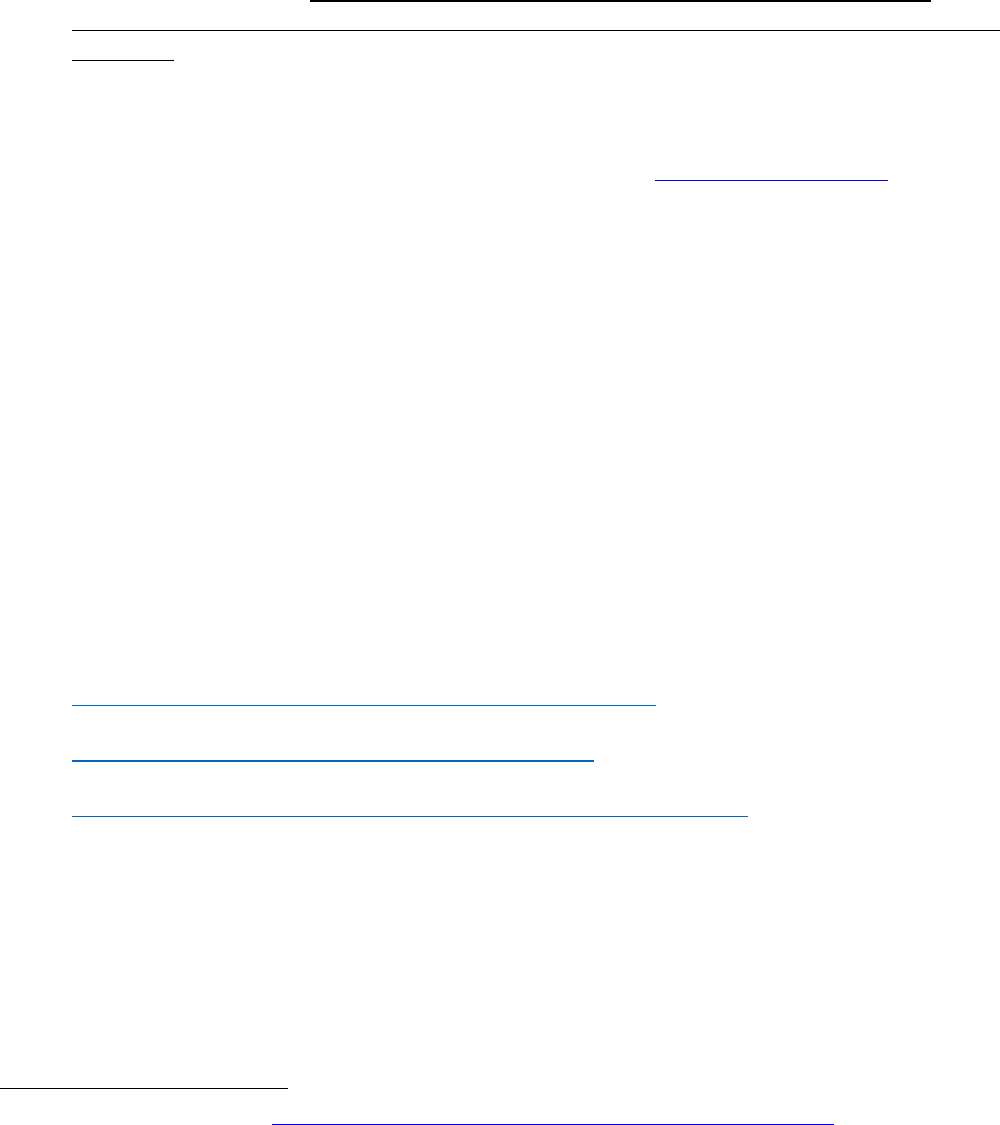
2023-2024
64
Where to Seek Treatment:
● You may seek treatment at the clinical site (if equipped and willing), an urgent care facility,
emergency room, or physician office for assessment, diagnosis, and treatment. It remains your
responsibility to obtain the initial appointment and any follow-ups ordered with a health care
provider of your choice. If an incident occurs in an Ivy Tech classroom, lab or facility, an
instructor cannot provide evaluation, diagnostic test or treatment beyond first aid and emergency
assistance.
● Time of day and facility capability may impact where you seek treatment. The key is to know
your options before an accident, and then, obtain an evaluation and treatment as soon as possible
from a health care provider of your choosing.
● Report the incident to your Ivy Tech instructor and submit a Student Accident Report promptly,
but no later than 24 hours.
What Happens Next?
A health care provider will provide an evaluation, diagnostic testing (if necessary), and treatment (if
necessary). Diagnostic testing may include testing the source of the exposure, with his or her consent,
and baseline testing of the exposed person. Testing for HIV, HBV, and HCV is typically included, along
with other blood tests or diagnostic examinations the health care provider recommends. If post-exposure
prophylaxis (PEP) is indicated, efficacy is time sensitive. The first dose should be given as soon as
possible. Optimal time to start PEP is within hours of exposure, rather than days
1
.
Will I need follow-up testing? This direction will come from the health care provider. Follow-up will
depend upon the testing outcome of the source person. It is important for your health that you
understand and comply with the provider’s follow-up testing and recommendations.
Additional resources:
1. How to Protect Yourself From Needle Stick Injuries (CDC):
http://www.cdc.gov/niosh/docs/2000-135/pdfs/2000-135.pdf
2. National Institute for Occupational Safety and Health:
http://www.cdc.gov/niosh/docs/2007-157/default.html
3. General Guidance on OSHA’s Bloodborne Pathogens Standard (OSHA):
https://www.osha.gov/SLTC/bloodbornepathogens/gen_guidance.html
What Are Airborne Pathogens?
Airborne Pathogens are infectious microorganisms which can transmitted through air and could cause
disease. The discharged microbes may remain suspended in the air on dust particles, respiratory and
water droplets.
Airborne pathogens are spread through the air from one person to another. The microorganisms are put
into the air when a person with disease of the lungs or throat coughs, sneezes, speaks, or sings. People
nearby may breathe in these microorganisms and become infected.
1
Clinician Consultation Center – http://nccc.ucsf.edu/clinical-resources/pep-resources/pep-quick-guide/
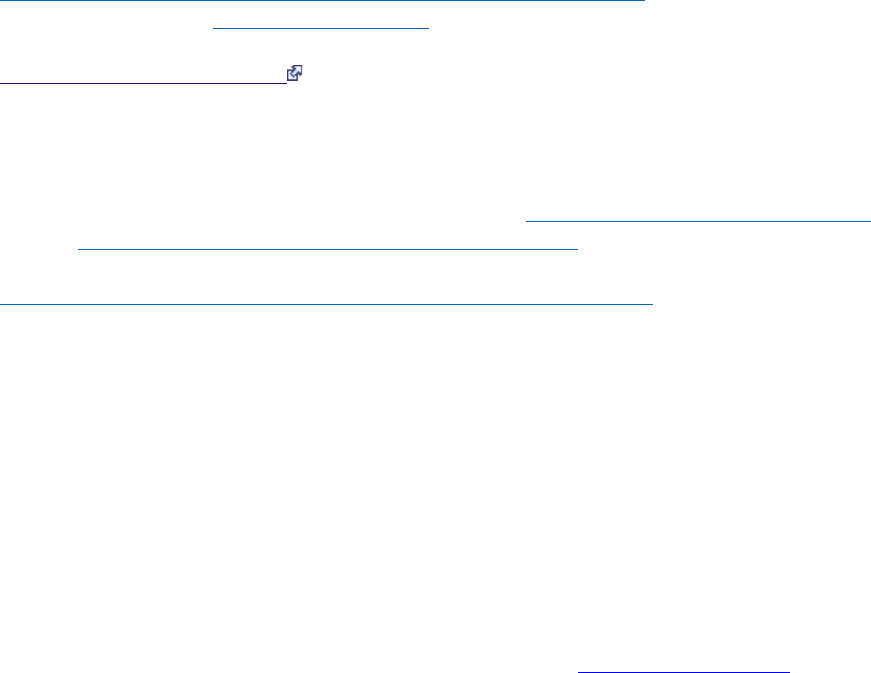
2023-2024
65
What to Do When an Airborne Pathogens Exposure Occurs:
If you think you have been exposed to an airborne pathogen (i.e. tuberculosis, COVID-19, influenza)
without appropriate Personal Protective Equipment (PPE), you should immediately contact your Ivy
Tech instructor and clinical supervisor and seek testing at an urgent care clinic, emergency room, or
physician office. Be prepared to tell the doctor or nurse when you were exposed to the airborne
pathogen, what type of exposure you think occurred (contaminated air with or without respiratory tract
droplets, mucus, or blood), and if the source patient of the contamination is being tested for airborne
pathogens.
Additional resources:
1. TB Elimination - Infection Control in Health-Care Settings:
http://www.cdc.gov/tb/publications/factsheets/prevention/ichcs.pdf
2. CDC Division of TB: http://www.cdc.gov/tb
3. Indiana TB Control Office:
Indiana Department of Health
2 North Meridian Street, 6th Floor
Indianapolis, IN 46204
Tel: 317-233-7545
Fax: 317-233-7747
4. National Institute for Occupational Safety and Health: http://www.cdc.gov/niosh/topics/tb/
5. OHSA: http://www.osha.gov/SLTC/tuberculosis/index.html
6. Respiratory Protection in Health-Care Settings (CDC) Fact Sheet:
http://www.cdc.gov/tb/publications/factsheets/prevention/rphcs.htm
Universal Precautions
According to the Universal Precautions Rule 410 IAC 1-4-7.1: "Covered individuals, including health
care workers, whose professional, employment, training, or volunteer activities or duties are performed
at or on behalf of a facility, must complete the training programs which the facility is required to have
employees attend under the Indiana occupational safety and health administration's blood borne
pathogens standards (as found in 29 CFR 1910.1030). Approved programs under this rule shall be as
follows: (A) A blood borne pathogen training session provided by a facility or employer under the
Indiana occupational safety and health administration's blood borne pathogens standards (as found in
29 CFR 1910.1030)." This training must include instruction in the "Universal Precautions" procedures
adopted by the Indiana State Department of Health. Because nursing students may have direct contact
with blood or other body fluids, the Nursing Program is required to provide annual training in Universal
Precautions to comply with agency affiliation agreements.
Caring for patients with communicable diseases and opportunistic parasites increases the possibility of
student susceptibility for acquiring these infections/infestations. All students who are enrolled in clinical
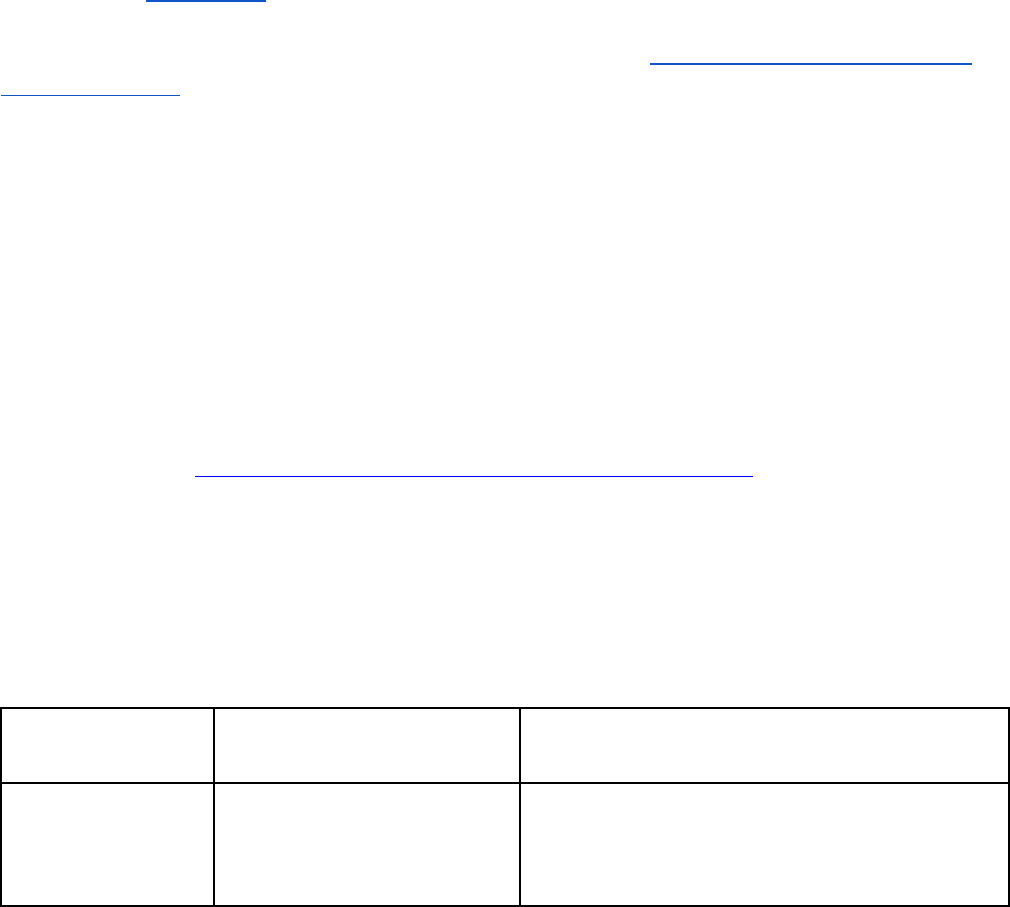
2023-2024
66
or laboratory courses accept responsibility for consistent and correct use of Universal Standard
Precautions at all times.
Essential Functions of Nursing Students
Qualified applicants are expected to meet all admission criteria and matriculating students are expected
to meet all progression criteria, as well as the items and functions on the School of Nursing Vaccination
and Physical Exam Form in order to participate in lab, simulation, and clinical activities. A completed
copy of the School of Nursing Vaccination and Physical Exam Form, signed by the student and health
care provider, is required prior to engaging in clinical, lab, and simulation activities. Annual Influenza
and COVID-19 vaccinations among other immunizations are required of nursing students. Failure to
comply with the vaccination policy may result in inability to continue in and complete the nursing
program (See ASOM 4.15). In addition, students must be capable of undertaking the full list of
Essentials Functions outlined below. Students with documented need for accommodations are to meet
with the campus Disabilities Support Services Representative. See ASOM 5.3: Accommodations for
Admitted Students
In addition to the Essential Functions, students are expected to be in compliance with clinical agency
requirements at all times (See ASOM 4.14 and 4.15) and provide proof of the following items which
may include, but are not limited to:
o annual criminal background and sex offender registry checks
o annual drug screens
o annual flu shots
o up-to-date immunizations or titers (must include titer values with reference ranges)
including Hepatitis B series, MMR, Varicella, Tdap, Diphtheria, Pertussis; (Tetanus
must be updated every 10 years); COVID-19 (titers not accepted for COVID-19)
o annual TB skin testing or other documentation for positive tests per CDC guidelines
(http://www.cdc.gov/tb/publications/factsheets/default.htm)
o documentation of current Basic Life Support (BLS) for Healthcare Providers
certification (accept only American Heart Association (HeartSaver) or American Red
Cross Provider with hands-on skill assessment)
o Proof of ongoing active, unencumbered Indiana licenses for LPN to ASN and
Paramedic to ASN students
Essential Functions
Functional
Ability/Category
Standard
Representative Activity/Attribute
Motor Abilities
● Physical abilities and
mobility sufficient to
execute gross motor
skills, physical
● Mobility sufficient to carry out patient care
procedures such as assisting with ambulation
of patients, administering CPR, assisting
with turning and lifting patients, providing
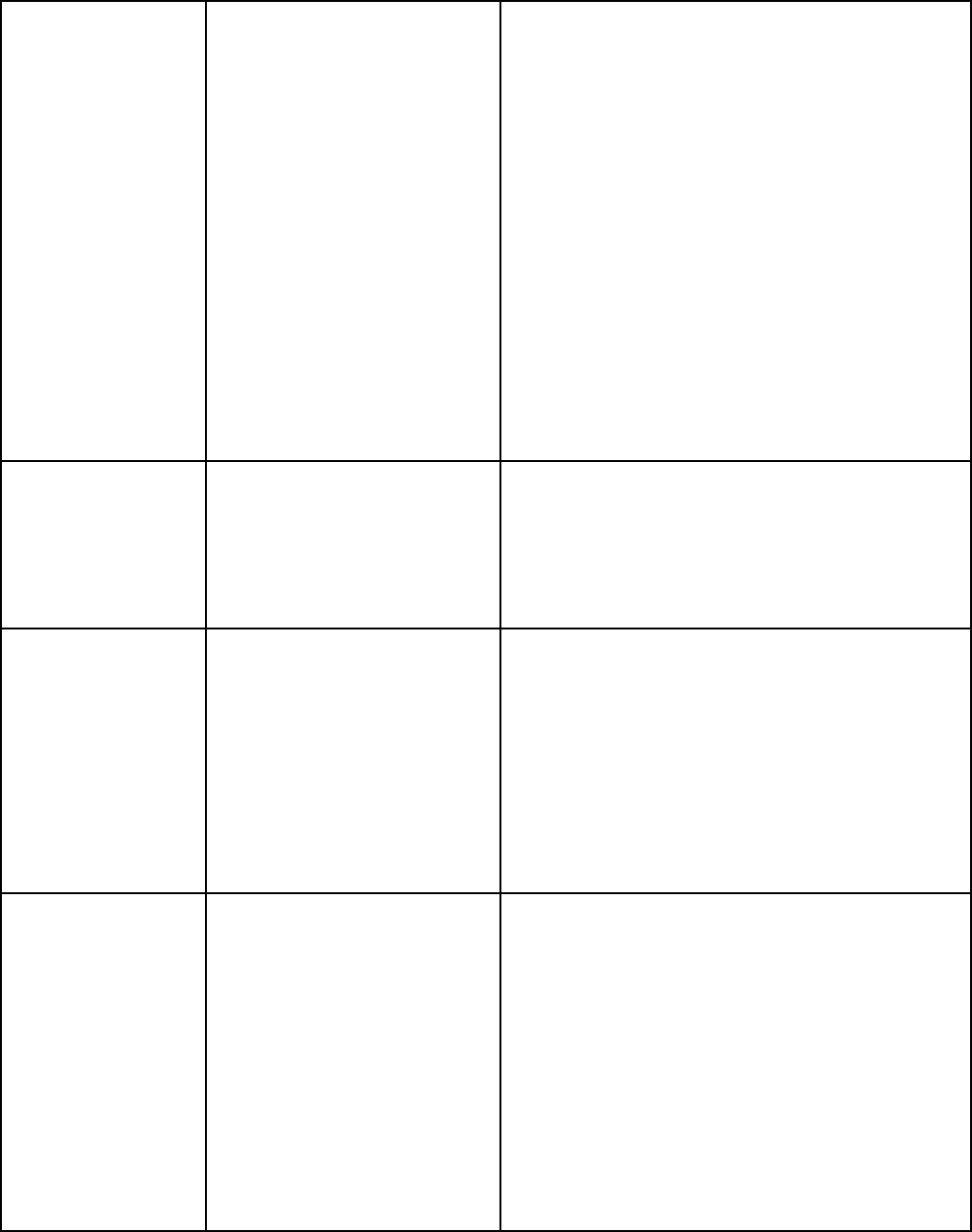
2023-2024
67
endurance, and
strength, to provide
patient care.
care in confined spaces, such as treatment
room or operating suite.
● Move within confined spaces, sit and
maintain balance, reach above shoulders
(e.g., IV poles), and reach below waist.
● Twist, bend, stoop/squat, move quickly (e.g.
response to an emergency), climb (e.g.,
ladders/stools/stairs), and walk.
● Push and pull 25 pounds (e.g., position
patients), support 25 pounds (e.g., ambulate
patient), lift 25 pounds (e.g., pick up a child,
transfer a patient), move light object
weighing up to 10 pounds, move heavy
objects, defend self against combative
patient, carry equipment/supplies, use upper
body strength (e.g., perform CPR, restrain a
patient), and squeeze with hands (e.g.,
operate fire extinguisher).
Manual Dexterity
● Demonstrate fine motor
skills sufficient for
providing safe nursing
care.
● Pick up objects with hands, grasp small
objects with hands, write with pen or pencil,
key/type using computer, pinch/pick or
otherwise work with fingers (e.g.,
manipulate syringe), twist or turn knobs or
objects using hands, squeeze with finger(s).
Perceptual/
Sensory Ability
● Sensory/perceptual
ability to monitor and
assess patients.
● Sensory abilities sufficient to hear alarms,
auscultate sounds, and hear cries for help,
etc.
● Visual acuity to read calibrations on 1 cc
syringe, assess color (e.g., cyanosis, pallor,
identify color of body fluids, etc.).
● Tactile ability to palpate pulses, feel skin
temperature, palpation veins, etc.
● Olfactory ability to detect smoke or noxious
odors
Behavioral/
Interpersonal/
Emotional
● Ability to relate to
colleagues, staff and
patients with honesty,
civility, integrity and
nondiscrimination.
● Capacity for
development of mature,
sensitive and effective
therapeutic
relationships.
● Interpersonal abilities
sufficient for interaction
with individuals,
● Establishes rapport with patients and
colleagues.
● Works with teams and workgroups.
● Demonstrates emotional skills sufficient to
remain calm in an emergency situation.
● Demonstrates behavioral skills sufficient to
the exercise of good judgment and prompt
completion of all responsibilities attendant
to the diagnosis and care of patients.
● Adapts rapidly to environmental changes
and multiple task demands.
● Maintains behavioral decorum in stressful
situations.
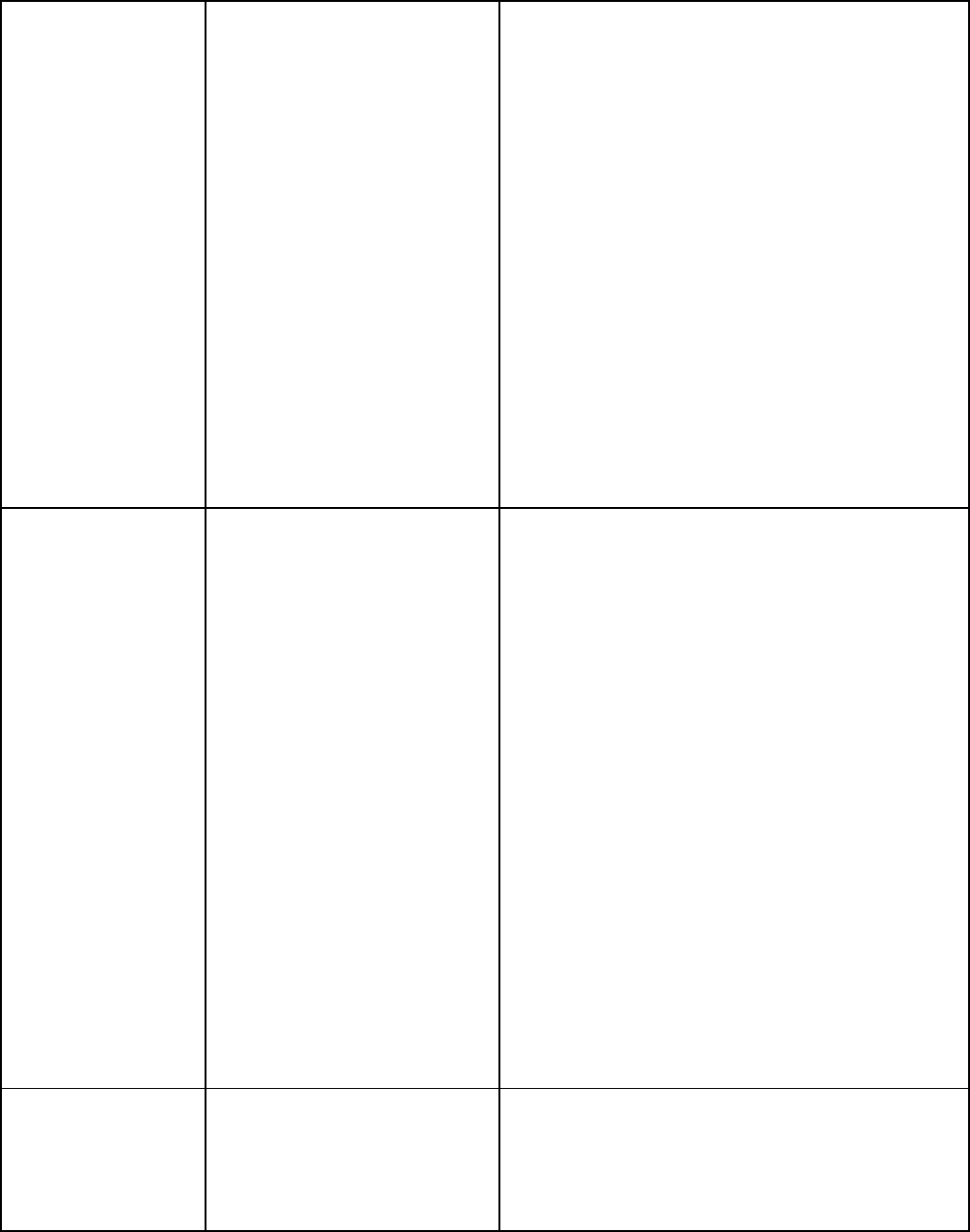
2023-2024
68
families and groups
from various social,
emotional, cultural and
intellectual
backgrounds.
● Ability to work
constructively in
stressful and changing
environments.
● Modify behavior in
response to constructive
criticism.
● Capacity to demonstrate
ethical behavior,
including adherence to
the professional nursing
Code of Ethics for
Nurses as identified by
the American Nurses
Association (ANA).
● Establishes therapeutic boundaries, provides
patient with emotional support, adapts to
changing environment/stress, deals with the
unexpected, focuses attention on task,
controls own emotions, performs multiple
responsibilities concurrently, responds
appropriately.
● Represents the nursing profession in
manner, dress, and behavior.
Safe environment for
patients, families and
co-workers
● Ability to accurately
identify patients.
● Ability to effectively
communicate with other
caregivers.
● Ability to administer
medications safely and
accurately.
● Ability to operate
equipment safely in the
clinical area.
● Ability to recognize and
minimize hazards that
could increase
healthcare associated
infections.
● Ability to recognize and
minimize accident
hazards in the clinical
setting including
hazards that contribute
to patient, family and
co-worker falls.
● Prioritizes tasks to ensure patient safety and
standard of care.
● Maintains adequate concentration and
attention in patient care settings.
● Seeks assistance when clinical situation
requires a higher level or
expertise/experience.
● Responds to monitor alarms, emergency
signals, call lights from patients, and orders
in a rapid and effective manner.
● Negotiates interpersonal conflict, respects
differences in patients, and establishes
rapport with co-workers
Communication
● Ability to communicate
in English with
accuracy, clarity and
efficiency with patients,
their families and other
● Gives verbal directions to or follows verbal
directions from other members of the
healthcare team and participates in health
care team discussions of patient care.
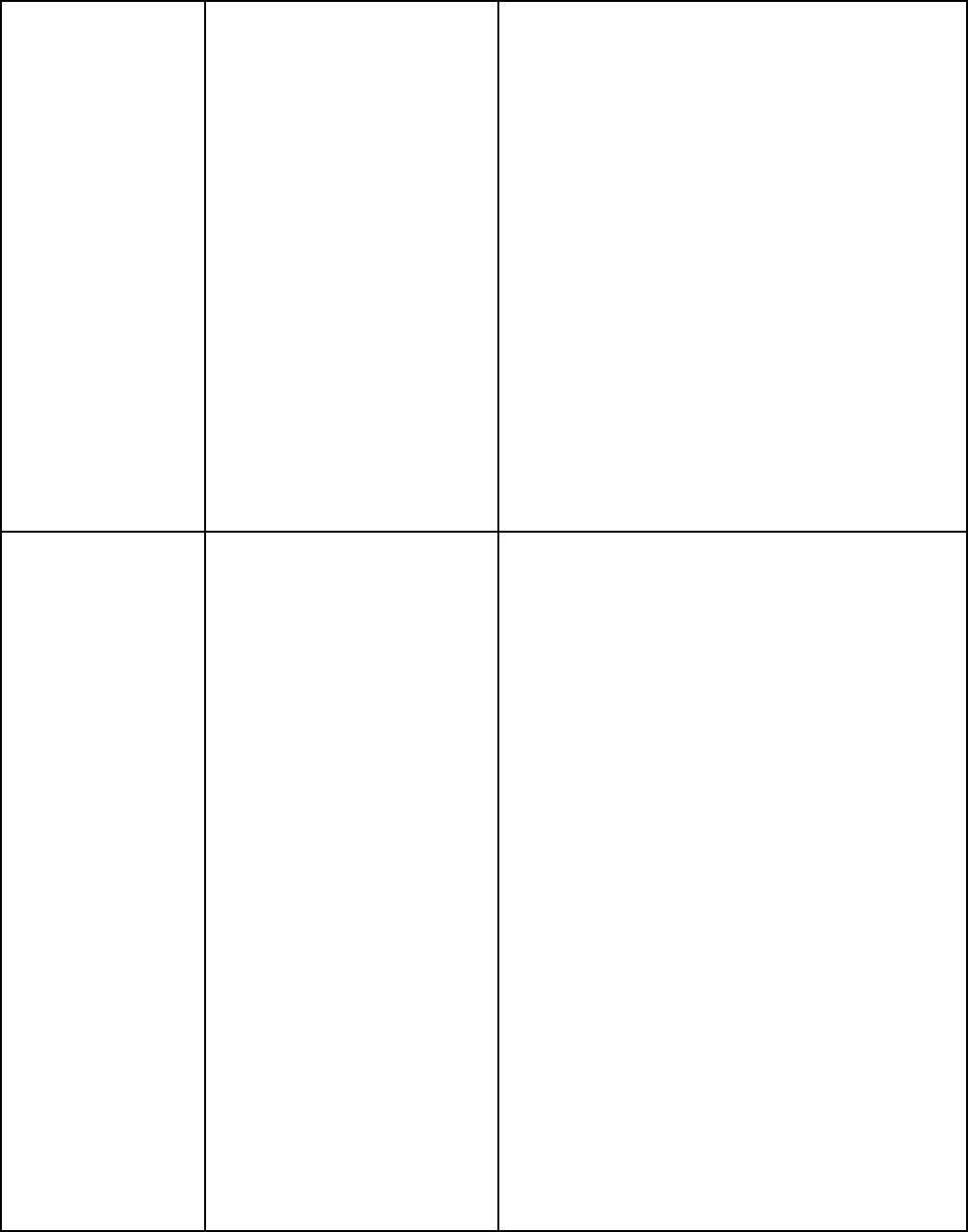
2023-2024
69
members of the health
care team (including
spoken and nonverbal
communication, such as
interpretation of facial
expressions, affect and
body language).
● Required
communication
abilities, including
speech, hearing,
reading, writing,
language skills and
computer literacy.
● Communicate
professionally and
civilly to the healthcare
team including peers,
instructors, and
preceptors.
● Elicits and records information about health
history, current health state and responses to
treatment from patients or family members.
● Conveys information to patients and others
as necessary to teach, direct and counsel
individuals in an accurate, effective and
timely manner.
● Establishes and maintain effective working
relations with patients and co-workers.
● Recognizes and reports critical patient
information to other caregivers.
● Teaches (e.g., patient/family about health
care), explains procedures, gives oral reports
(e.g., reports on patient’s condition to
others), interacts with others (e.g., health
care workers), speaks on the telephone,
influences people, and directs activities of
others.
● Conveys information through writing (e.g.,
nursing documentation).
Cognitive/
Conceptual/
Quantitative Abilities
● Ability to read and
understand written
documents in English
and solve problems
involving measurement,
calculation, reasoning,
analysis and synthesis.
● Ability to gather data,
to develop a plan of
action, establish
priorities, monitor, and
evaluate treatment plans
and modalities.
● Ability to comprehend
three-dimensional and
spatial relationships.
● Ability to react
effectively in an
emergency situation.
● Demonstrate critical
thinking.
● Analytical thinking.
● Calculates appropriate medication dosage
given specific patient parameters.
● Analyzes and synthesizes data and develops
an appropriate plan of care.
● Collects data, prioritizes needs and
anticipates reactions.
● Comprehends spatial relationships adequate
to properly administer injections, starts
intravenous lines or assesses wounds of
varying depths.
● Recognizes an emergency situation and
responds effectively to safeguard the patient
and other caregivers.
● Transfers knowledge from one situation to
another.
● Accurately processes information on
medication labels, and physicians’ orders,
safely monitors equipment calibrations,
printed documents, flow sheets, graphic
sheets, medication administration records,
other medical records for patient safety and
understands current policies and procedures.
● Identifies cause-effect relationships,
plans/controls activities for others,
synthesizes knowledge and skills, sequences
information
● Transfers knowledge from one situation to
another, processes information, evaluates
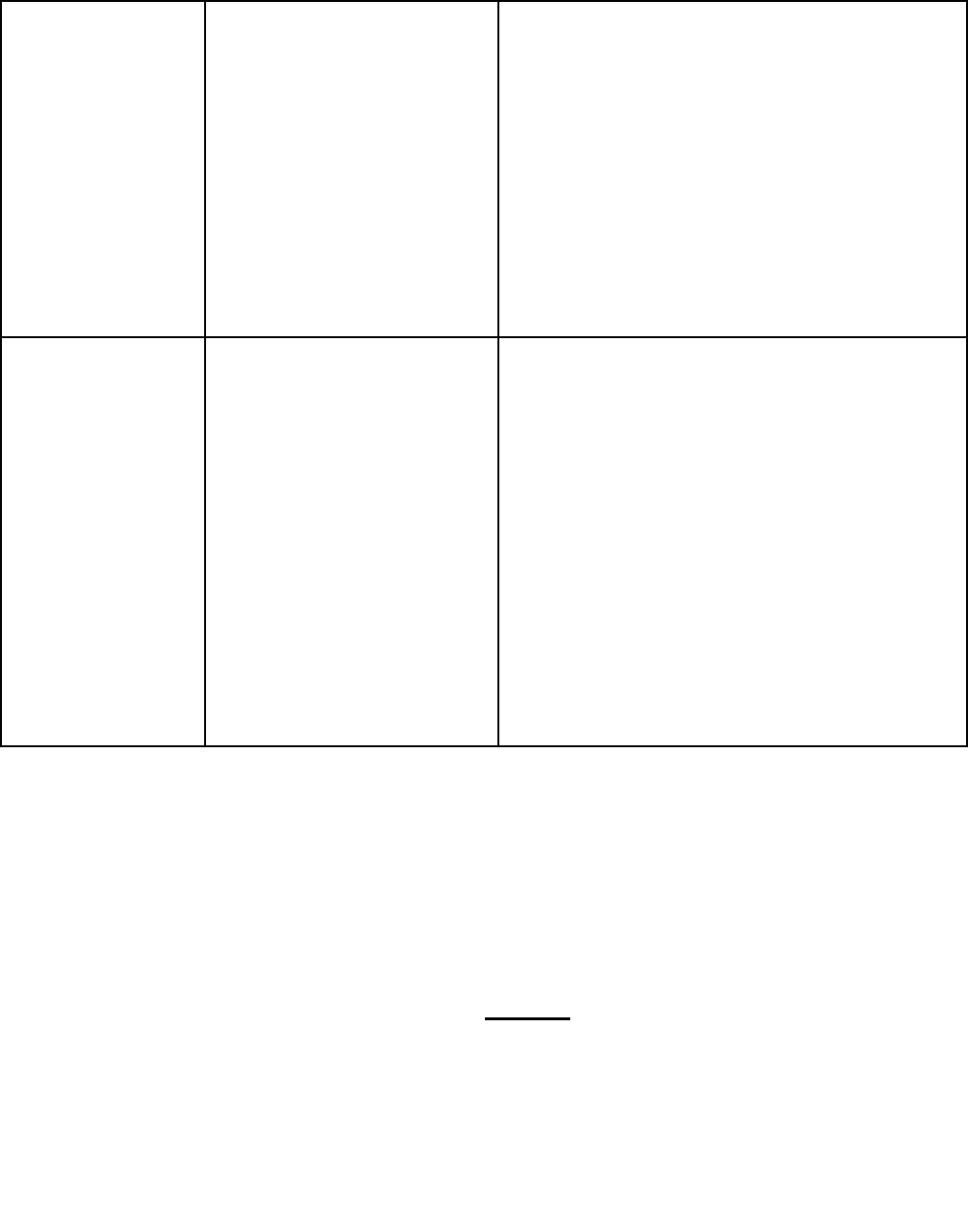
2023-2024
70
outcomes, problem solves, prioritizes tasks,
uses long term memory, uses short term
memory
● Reads and understands columns of writing,
reads digital displays, reads graphic
printouts, calibrates equipment, converts
numbers to and/or from metric system, reads
graphs, tells time, measures time, counts
rates, uses measuring tools, reads
measurement marks, adds, subtracts,
multiplies, divides whole numbers,
computes fractions, uses a calculator, writes
number in records.
Punctuality/ work
habits
● Ability to adhere to Ivy
Tech policies,
procedures and
requirements as
described in the School
of Nursing Student
Handbook, and course
syllabus.
● Ability to complete
classroom, lab, and
clinical assignments
and submit assignments
at the required time.
● Ability to adhere to
classroom and clinical
schedules.
● Attends class and clinical assignments
punctually.
● Reads, understands and adheres to all
policies related to classroom, lab, and
clinical experiences.
● Contacts the instructor in advance of any
absence or late arrival.
● Understands and completes classroom, lab,
and clinical assignments by due date and
time.
Social Networking, Cell Phone and Class Recording Guidelines
Social Networking Guidelines:
Social media are powerful communication tools that can have a significant impact on the reputations of
those who use them. This includes not only individuals but the organizations they represent. You must
be mindful that anything you post on a social media site may be seen by anyone. Therefore,
inappropriate postings about other students, faculty, college policies, action or decisions could be the
basis for disciplinary action including termination from the program. Furthermore, the discussion of
patient information through any of these venues is a violation of patient confidentiality and HIPAA.
You have rights afforded by state and federal law, but be aware that not everything you say or post
online is protected. False, defamatory, harassing or intimidating postings are not protected free speech.
In addition, information you post to any social networking site may be used against you by the Indiana
State Board of Nursing, the Attorney General’s office, or any court of law if issues arise.
The College recognizes many students chose to participate on social networking sites. Students are
reminded to use caution when posting on sites. Future employers and supervisors may have access to
these internet pages, comments and photographs which may be perceived as derogatory thus impacting

2023-2024
71
employment opportunities. Students are reminded NOT to post photographs from clinical and
laboratory settings as this is considered a breach of confidentiality. Comments that may be construed as
negative/derogatory concerning the College and/or clinical site experiences, operations or patients may
negatively impact student status and any reference to these is strictly prohibited.
Cell Phone and Class Recording Guidelines:
Students may choose to record lectures IF prior permission is obtained from the course instructor.
Recorded conversations may lack the clarity of the “live” event and information may not have the same
context and portions of the conversations may not be captured on the tape due to technical difficulties.
Students are reminded that recorded lectures are a tool best used in conjunction with other study and
preparations methods. Recording of lectures is intended for personal use only. Students may NOT
record lecture for electronic distribution/posting. Any violations may lead to disciplinary action.
● Students may only use cell phones or other electronic devices IF their instructor has provided
prior approval.
Additional Guidelines and Expectations:
● Students shall not use online social networking to harass, threaten or discriminate against other
students, faculty, staff, patients, clinical facilities and/or operations or any member of the public.
● Text, photos, emails or videos that are demeaning or insulting to others may not be used and/or
posted.
● Some clinical affiliation agencies prohibit the use of cell phones and other electronic devices.
● Personal information about students, faculty, staff, patients, clinical sites and/or operations may
NOT be shared on networking sites, cell phones, or through other electronic media without
written permission from all parties involved.
● Computers and cell phones are not to be used during class or clinical time for social networking,
texting, emailing or other recreational use.
● All students are required to view the National Council of State Boards of
Nursing video on “Social Media Guidelines for Nurses” located at
https://www.ncsbn.org/347.htm
● Students are expected to follow and remain in compliance with the nursing
“Guidelines for Professional Conduct”
Students should be aware that information posted on any social media or website that violates College
Policies or Guidelines for Professional Conduct outlined in this handbook, may result in disciplinary
action up to and including termination from the program. Furthermore, such violations can place the
student at risk for civil and criminal penalties.
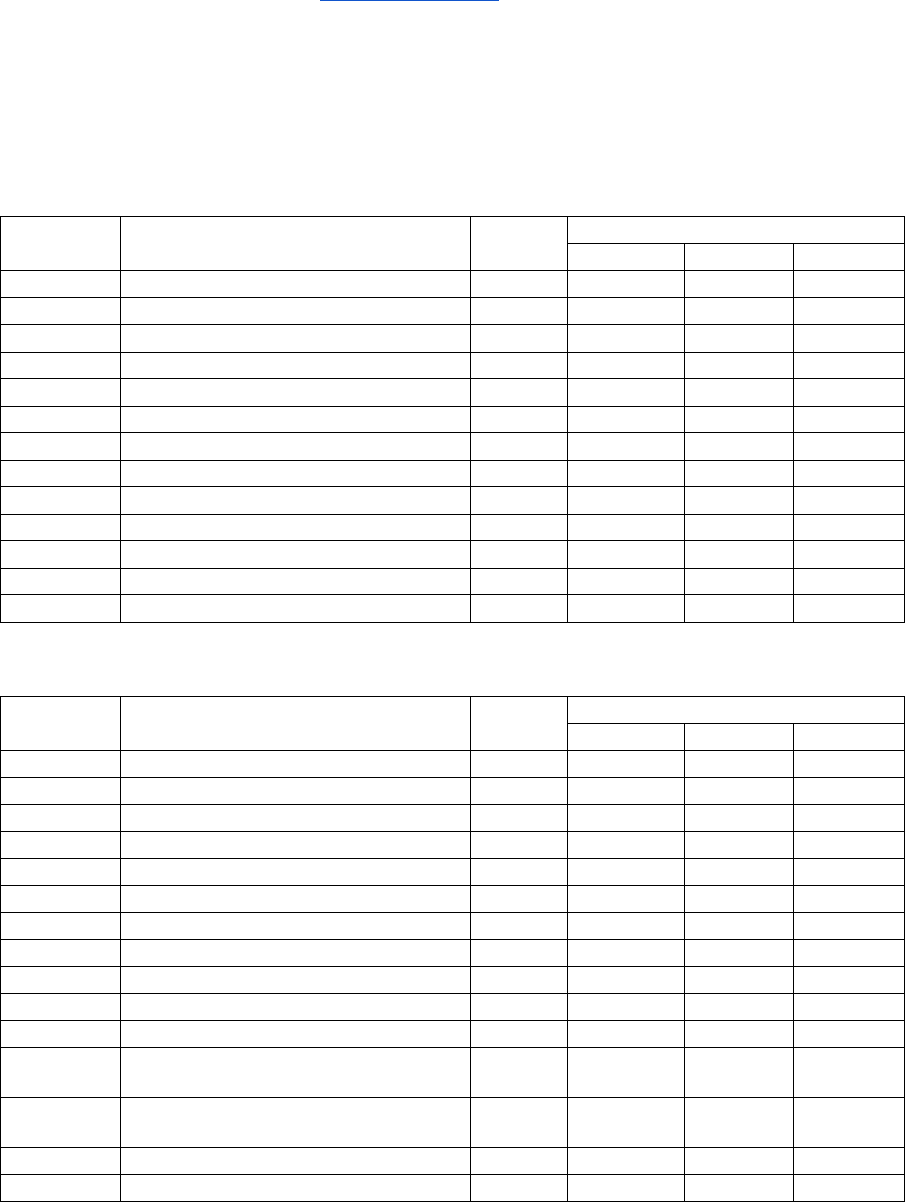
2023-2024
72
Program Curricula
Students are encouraged to review the Program Curricula to review the courses they will take in their
program.
Nursing Course Contact Hours
Lecture: 1 credit = 1 contact hr. Lab: 1 credit = 2 contact hrs. Clinical: 1 credit = 3 contact hrs.
Practical Nursing Courses: Credit & Contact Hours
Course
No.
Course Name
Credits
Total Contact Hours
Lecture
Lab
Clinical
NRSG 100
Fundamentals of Nursing
3
48
NRSG 102
Medical Surgical Nursing I
3
48
NRSG 105
Medical Surgical Nursing I Clinical
2
96
NRSG 106
Pharmacology for Nursing
3
48
NRSG 110
Medical Surgical Nursing II
3
48
NRSG 111
Medical Surgical Nursing II Clinical
2
96
NRSG 112
Maternal Child Nursing
3
48
NRSG 113
Maternal Child Nursing Clinical
2
96
NRSG 115
Nursing Lab
3
96
NRSG 116
Geriatric/Complex MS III PN
4
64
NRSG 117
Geriatric/Complex MS III PN Clinical
2
96
NRSG 128
Practice Issues for PN
2
16
32
Total Nursing Course Contact Hours
32
320
128
384
ASN Traditional Track Courses: Credit & Contact Hours
Course
No.
Course Name
Credits
Total Contact Hours
Lecture
Lab
Clinical
NRSG 100
Fundamentals of Nursing
3
48
NRSG 102
Medical Surgical Nursing I
3
48
NRSG 105
Medical Surgical Nursing I Clinical
2
96
NRSG 106
Pharmacology for Nursing
3
48
NRSG 110
Medical Surgical Nursing II
3
48
NRSG 111
Medical Surgical Nursing II Clinical
2
96
NRSG 115
Nursing Lab
3
96
NRSG 126
Mental Health Nursing
2
32
NRSG 127
Mental Health Nursing Clinical
1
48
NRSG 200
Complex MS for ASN
3
48
NRSG 201
Complex MS for ASN Clinical
4
192
NRSG 206
Nursing Care Childbearing Childrearing
Families
4
64
NRSG 207
Nursing Care Childbearing Childrearing
Families Clinical
2
96
NRSG 208
Practice Issues for ASN
2
16
32
Total Nursing Course Contact Hours
37
352
128
528
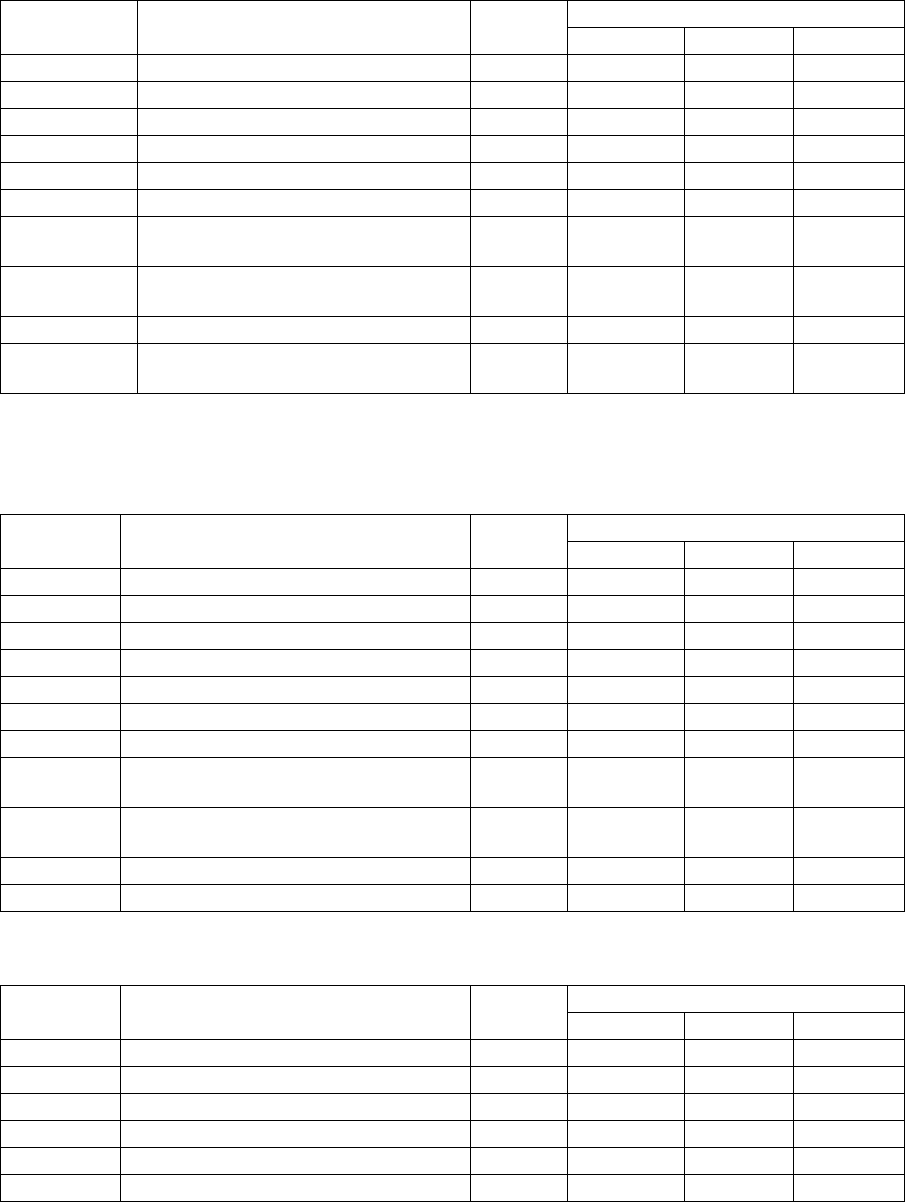
2023-2024
73
LPN to ASN Transitional Track Courses: Credit & Contact Hours
Course
No.
Course Name
Credits
Total Contact Hours/Semester
Lecture
Lab
Clinical
*NRSG 122
Introduction to ASN Transition
5
80
NRSG 125
LPN to ASN Transition Lab
1
4
24
NRSG 126
Mental Health Nursing
2
32
NRSG 127
Mental Health Nursing Clinical
1
48
NRSG 200
Complex MS for ASN
3
48
NRSG 201
Complex MS for ASN Clinical
4
192
NRSG 206
Nursing Care Childbearing
Childrearing Families
4
64
NRSG 207
Nursing Care Childbearing
Childrearing Families Clinical
2
96
NRSG 208
Practice Issues for ASN
2
16
32
Total Nursing Course Contact
Hours
24
244
56
336
*Not required for those who graduated from the Ivy Tech Practical Nursing program within the last two (2) years.
**Not required if separate pharmacology course was taken in the Practical Nursing program.
Medical Assistant to ASN Transitional Track Courses: Credit & Contact Hours
Course
No.
Course Name
Credits
Total Semester Hours/Semester
Lecture
Lab
Clinical
NRSG 122
Introduction to ASN Transition
5
80
NRSG 123
Transition to ASN Lab/Clinical
3
32
96
NRSG 106
Pharmacology for Nursing
3
48
NRSG 126
Mental Health Nursing
2
32
NRSG 127
Mental Health Nursing Clinical
1
48
NRSG 200
Complex MS for ASN
3
48
NRSG 201
Complex MS for ASN Clinical
4
192
NRSG 206
Nursing Care Childbearing Childrearing
Families
4
64
NRSG 207
Nursing Care Childbearing Childrearing
Families Clinical
2
96
NRSG 208
Practice Issues for ASN
2
16
32
Total Nursing Course Contact Hours
29
288
64
432
Military Medic to ASN Transitional Track Courses: Credit & Contact Hours
Course
No.
Course Name
Credits
Total Semester Hours/Semester
Lecture
Lab
Clinical
NRSG 122
Introduction to ASN Transition
5
80
NRSG 123
c Transition to ASN Lab/Clinical
3
32
96
NRSG 106
Pharmacology for Nursing
3
48
NRSG 126
Mental Health Nursing
2
32
NRSG 127
Mental Health Nursing Clinical
1
48
NRSG 200
Complex MS for ASN
3
48
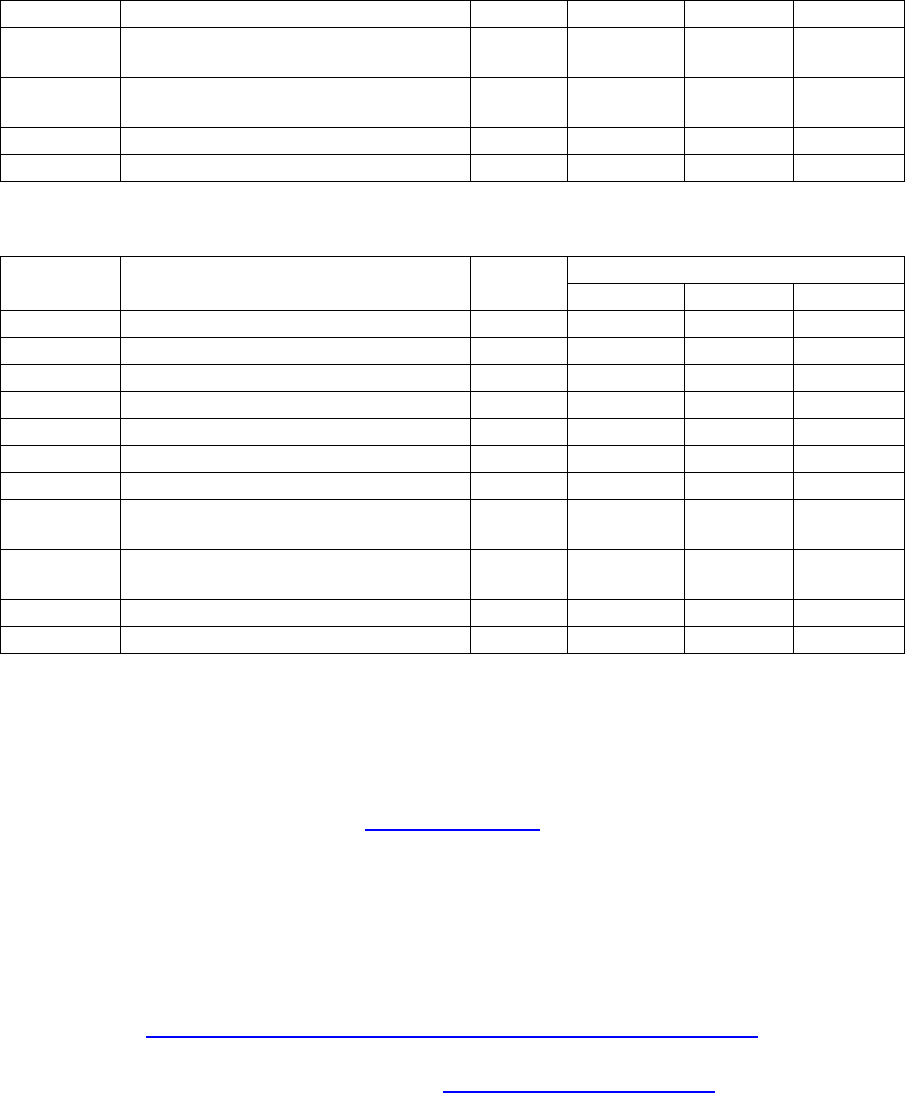
2023-2024
74
NRSG 201
Complex MS for ASN Clinical
4
192
NRSG 206
Nursing Care Childbearing Childrearing
Families
4
64
NRSG 207
Nursing Care Childbearing Childrearing
Families Clinical
2
96
NRSG 208
Practice Issues for ASN
2
16
32
Total Nursing Course Contact Hours
29
288
64
432
Paramedic to ASN Transitional Track Courses: Credit & Contact Hours
Course
No.
Course Name
Credits
Total Semester Hours/Semester
Lecture
Lab
Clinical
NRSG 122
Introduction to ASN Transition
5
80
NRSG 123
Transition to ASN Lab/Clinical
3
32
96
NRSG 106
Pharmacology for Nursing
3
48
NRSG 126
Mental Health Nursing
2
32
NRSG 127
Mental Health Nursing Clinical
1
48
NRSG 200
Complex MS for ASN
3
48
NRSG 201
Complex MS for ASN Clinical
4
192
NRSG 206
Nursing Care Childbearing Childrearing
Families
4
64
NRSG 207
Nursing Care Childbearing Childrearing
Families Clinical
2
96
NRSG 208
Practice Issues for ASN
2
16
32
Total Nursing Course Contact Hours
29
288
64
432
General Education Courses
www.ivytech.edu
Nursing Course Descriptions
http://www.ivytech.edu/academics/courses-curriculum.html
NOTE: Courses and curriculum are under continual review and revision. For the most current
information, please go to http://ivytech.edu/nursing/.
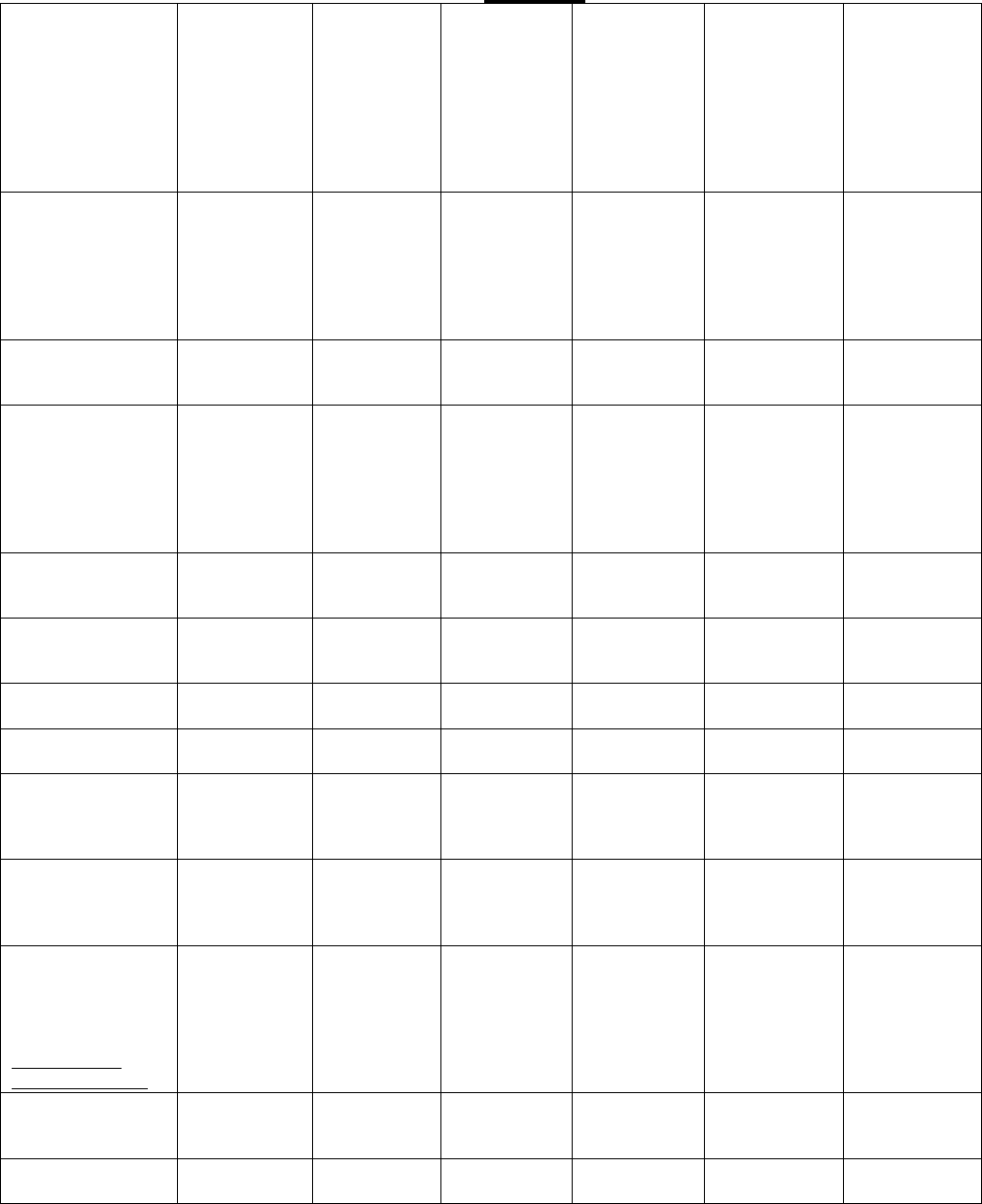
2023-2024
75
Academic Year 2023-2024 Estimated Program Costs
Item
PN Program
4 Semesters -
45 Total
Credit Hours
ASN
Traditional
Program
5 semesters -
69 Total
Credit Hours
LPN to ASN
Transition
Track
4 semesters -
56
Total Credit
Hours#
Paramedic to
ASN
Transition
Track
4 semesters -
61
Total Credit
Hours#
Medical
Assistant to
ASN
Transition
Track
4 semesters -
61
Total Credit
Hours#
Military
Medic to ASN
Transition
Track
4 semesters -
61
Total Credit
Hours#
IN-STATE Tuition
for 12 credits or
more per semester
@$2,243.25
(summer tuition $0
if full time in spring
and fall)
$6,729.75
(Includes
books and
most
ancillary
items)
$11,216.25
(Includes
books and
most
ancillary
items)
$6,729.75
(Includes
books and
most
ancillary
items)
$6,729.75
(Includes
books and
most
ancillary
items)
$6,729.75
(Includes
books and
most ancillary
items)
$6,729.75
(Includes
books and
most ancillary
items)
*IN-STATE Tuition
($149.55 per
credit hour)
$6,729.75
$10,318.95
$8,374.80
$9,122.55
$9,122.55
$9,122.55
OUT OF STATE
Tuition for 12
credits or more @
$4,388.55
(summer tuition $0
if full time in spring
and fall)
$13,165.65
(Includes
books and
most
ancillary
items)
$17,554.20
(Includes
books and
most
ancillary
items)
$13,165.65
(Includes
books and
most
ancillary
items)
$13,165.65
(Includes
books and
most
ancillary
items)
$13,165.65
(Includes
books and
most ancillary
items)
$13,165.65
(Includes
books and
most ancillary
items)
*OUT OF STATE
Tuition ($292.57
per credit hour)
$13,165.65
$19,302.62
$16,383.92
$17.846.77
$17.846.77
$17.846.77
Books (estimate
for entire
program)
$3,000
$4,000
$4,000
$4,000
$4,000
$4,000
Technology Fee
($75 per semester)
$300
$375
$300
$300
$300
$300
ATI Basic Package
(non-refundable)
$575
$690
$690
$690
$690
$690
NRSG 128 Course
Fee-ATI NCLEX
Live Review
(non-refundable)
$362
NA
NA
NA
NA
NA
NRSG 208 Course
Fee-ATI NCLEX
Live Review
(non-refundable)
NA
$362
$362
$362
$362
$362
Nursing Fee ($125
per semester
following
admission to and
throughout
enrollment in
nursing program)
$375
(x 3 nursing
course
semesters -
estimate
only)
$500
(x 4 nursing
course
semesters -
estimate
only)
$375
(x 3 nursing
course
semesters -
estimate
only)
$375
(x 3 nursing
course
semesters -
estimate
only)
$375
(x 3 nursing
course
semesters -
estimate only)
$375
(x 3 nursing
course
semesters -
estimate only)
Physical Exam,
Immunizations, &
Fit Testing
Varies
Varies
Varies
Varies
Varies
Varies
CPR (BLS)
Certification for
Varies
Varies
Varies
Varies
Varies
Varies

2023-2024
76
the Health Care
Provider
Background Check
& Drug Screen
$96
$96
$96
$96
$96
$96
Background Check
& Drug Screen
Annual Recheck
$70
$70
$70
$70
$70
$70
Clinical Document
Manager/Clinical
Placement
Manager
$70
(estimate)
$140
(estimate)
$70
(estimate)
$70
(estimate)
$70 (estimate)
$70 (estimate)
Uniforms & Other
Supplies
$300
$300
$300
$300
$300
$300
*IN-STATE
Total Estimated
Program Costs (if
full time each
semester with
Ivy+ tuition)
$11,807.75+
$17,74925+
$12,992.75+
$12,992.75+
$12,992.75+
$12,992.75+
*OUT OF STATE
Total Estimated
Program Costs (If
Full time each
semester with
Ivy+ Tuition)
$15,313.65
$24,475.75+
$15,699.05+
$15,699.05+
$15,699.05+
$15,699.05+
#ASN Transition Tracks include an additional 19 credit hours of verified credit (at no charge) awarded after successful completion of NRSG 122
and NRSG 123 or NRSG 125.
Expected Nursing License & Application Fees
GRADUATE LPN or RN License
Fees
NCLEX exam fee ($200)
Indiana State Board of
Nursing (ISBN) background
check fee ($39.45)
ISBN License Application Fee
($50-$75)
$289.45-$314.45
NOTE: The $50
License
Application Fee is
required to be
submitted to the
ISBN in early
February for any
May graduates.
$289.45-$314.45
NOTE: The $50
License
Application Fee is
required to be
submitted to the
ISBN in early
February for any
May graduates.
$289.45-$314.45
NOTE: The $50
License Application
Fee is required to be
submitted to the
ISBN in early
February for any
May graduates.
$289.45-$314.45
NOTE: The $50
License
Application Fee is
required to be
submitted to the
ISBN in early
February for any
May graduates.
NOTE: Costs are estimates only and may be subject to change; costs for GRADUATE NURSING PICTURES and PINS vary. Costs
may vary depending on program progression.
*These are estimates only. Please visit https://www.ivytech.edu/tuition/ for detailed information about tuition and fees and
textbooks.
